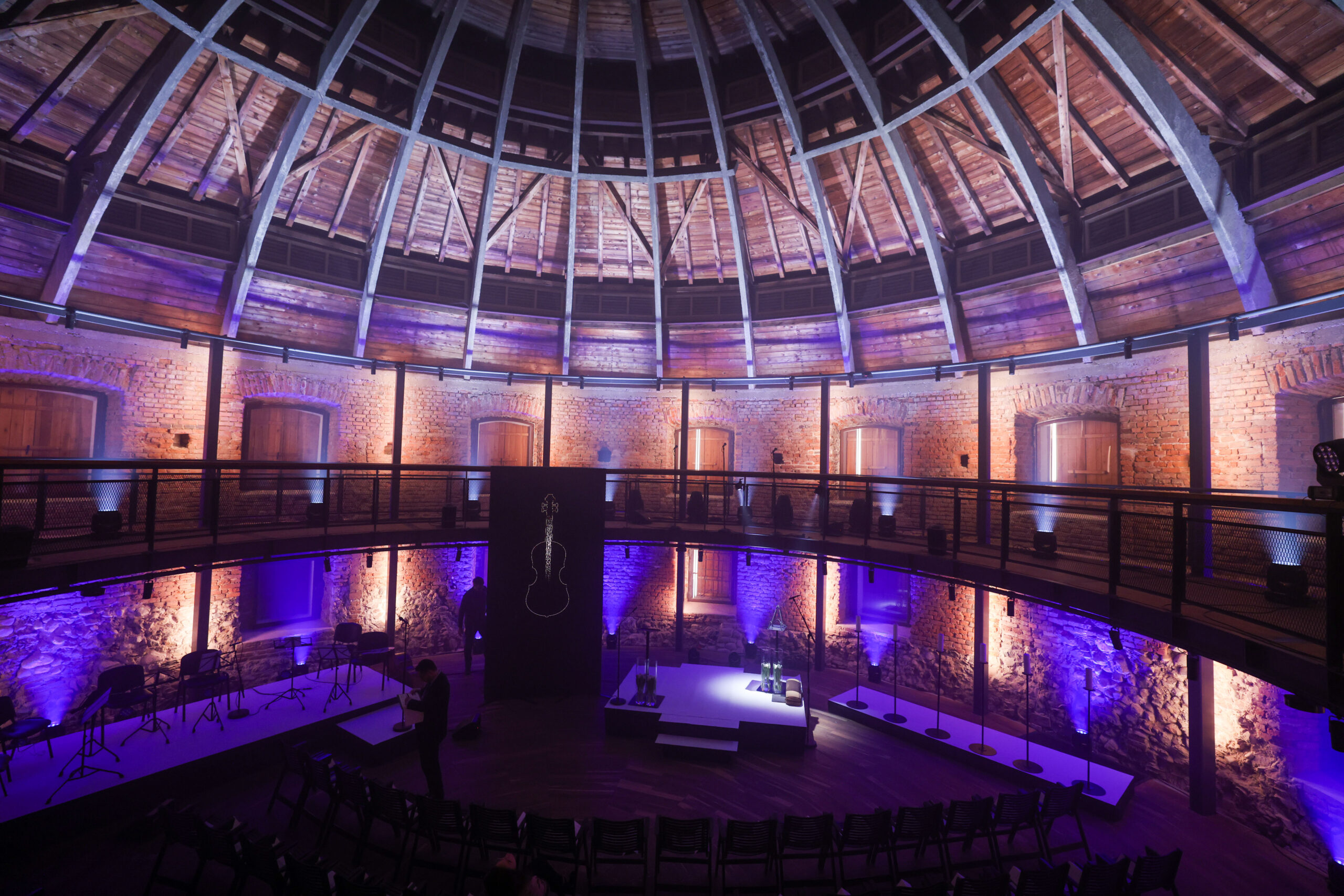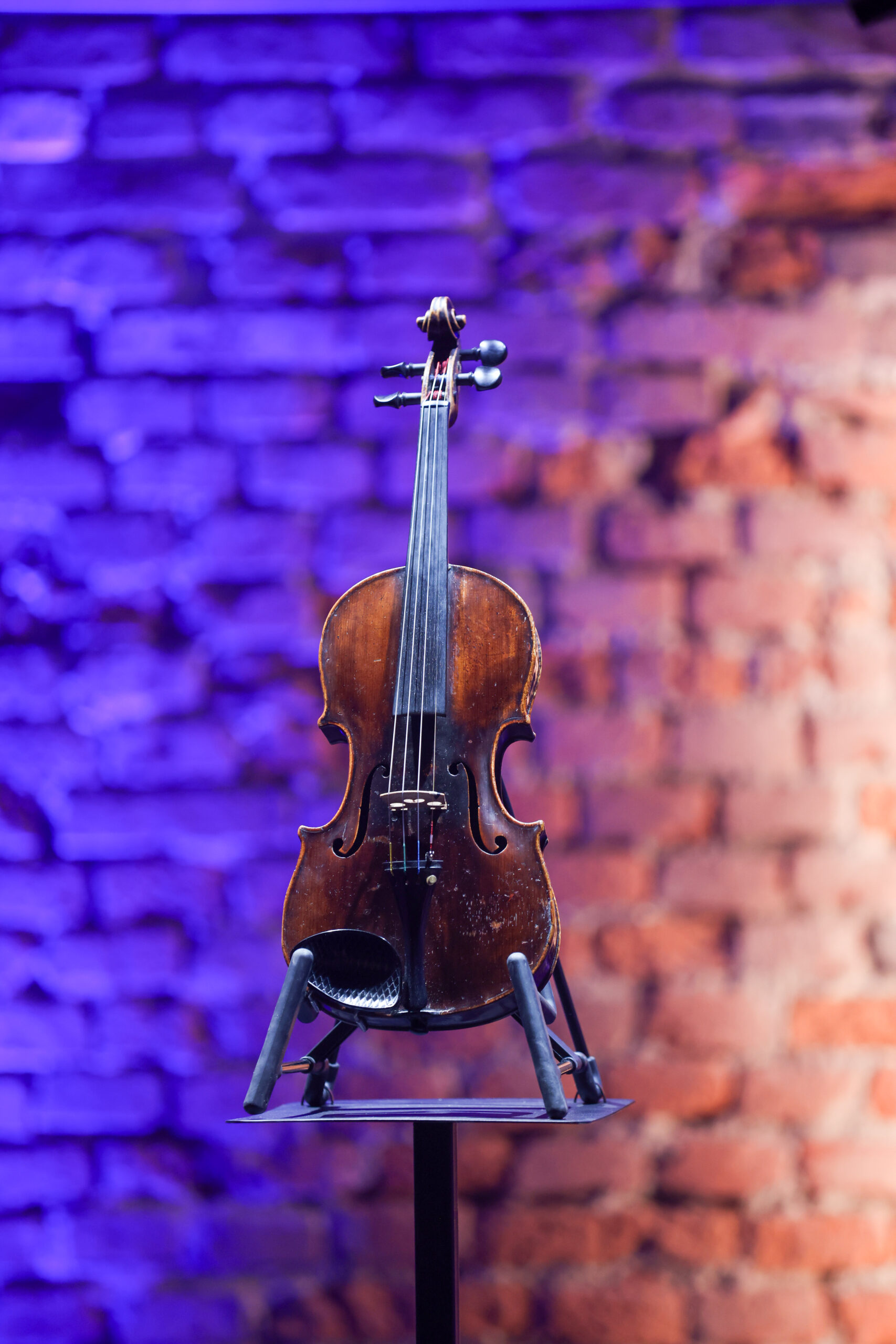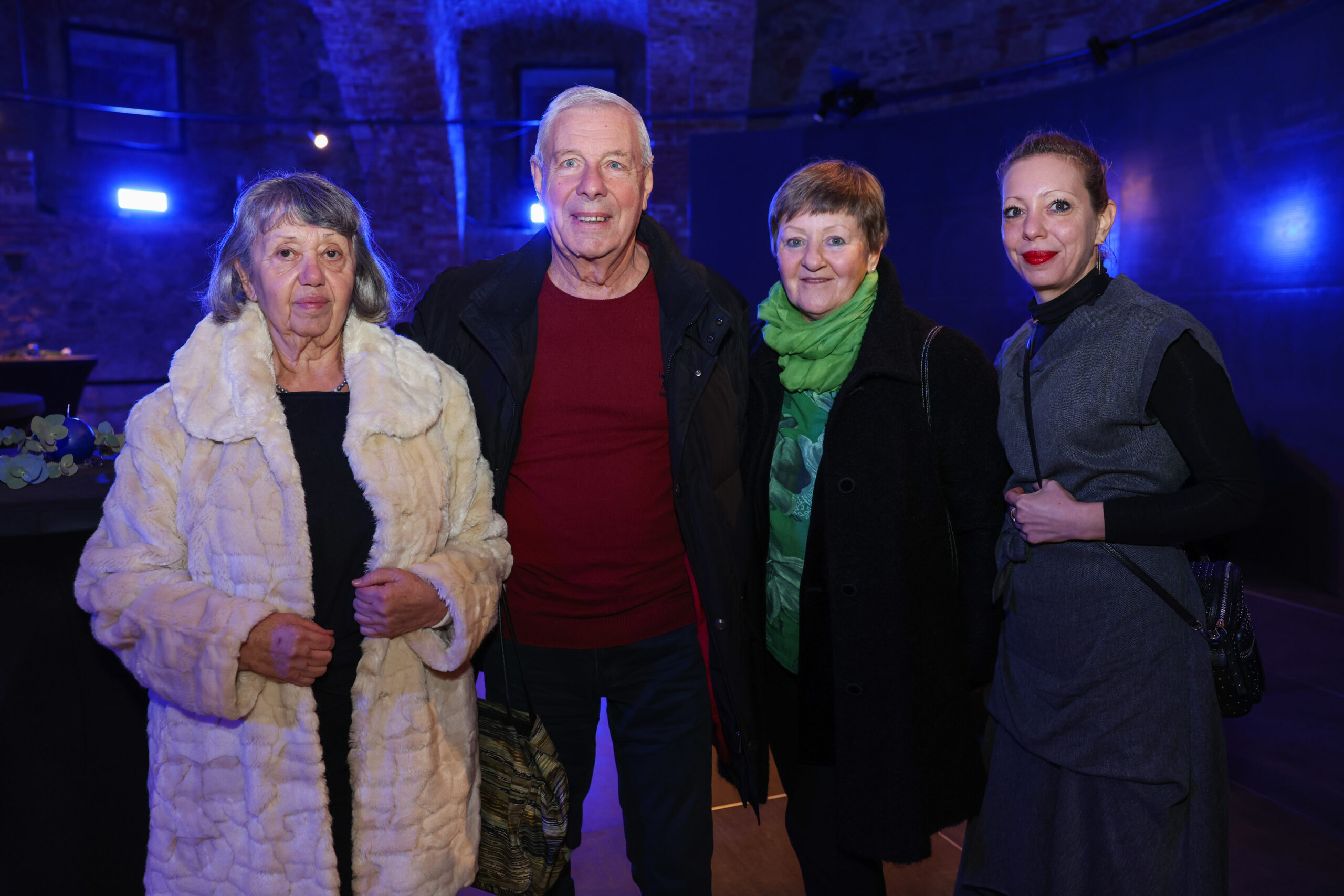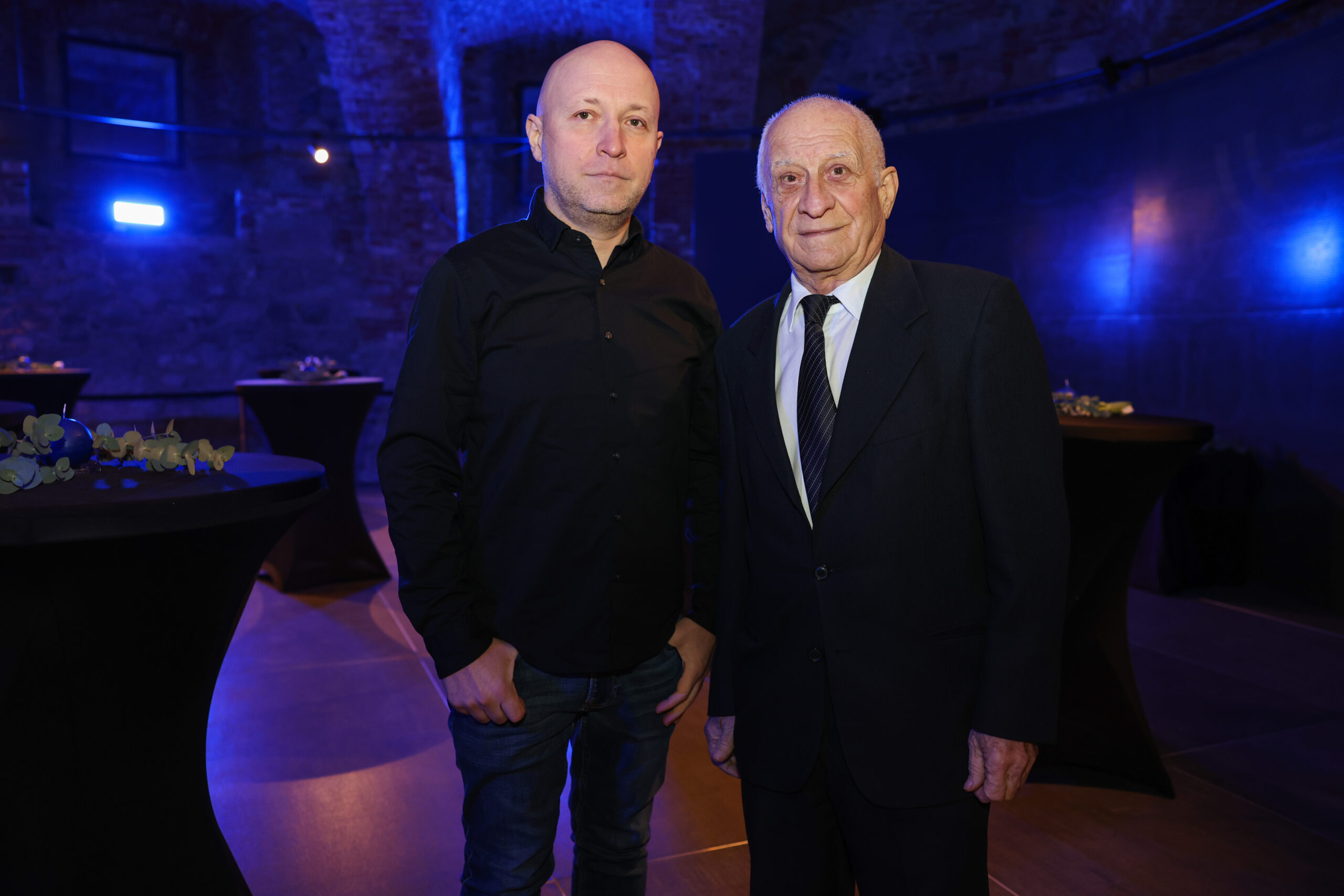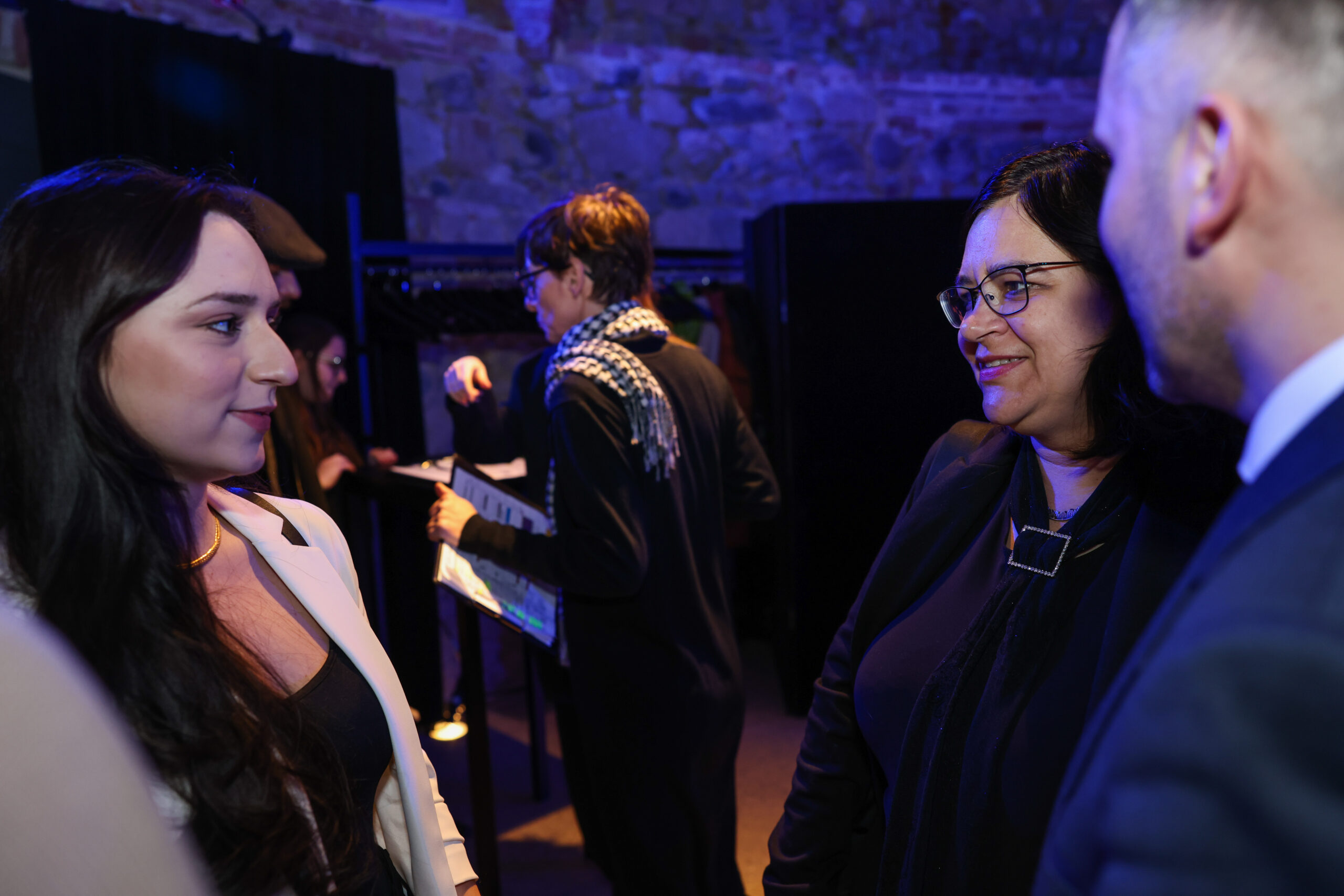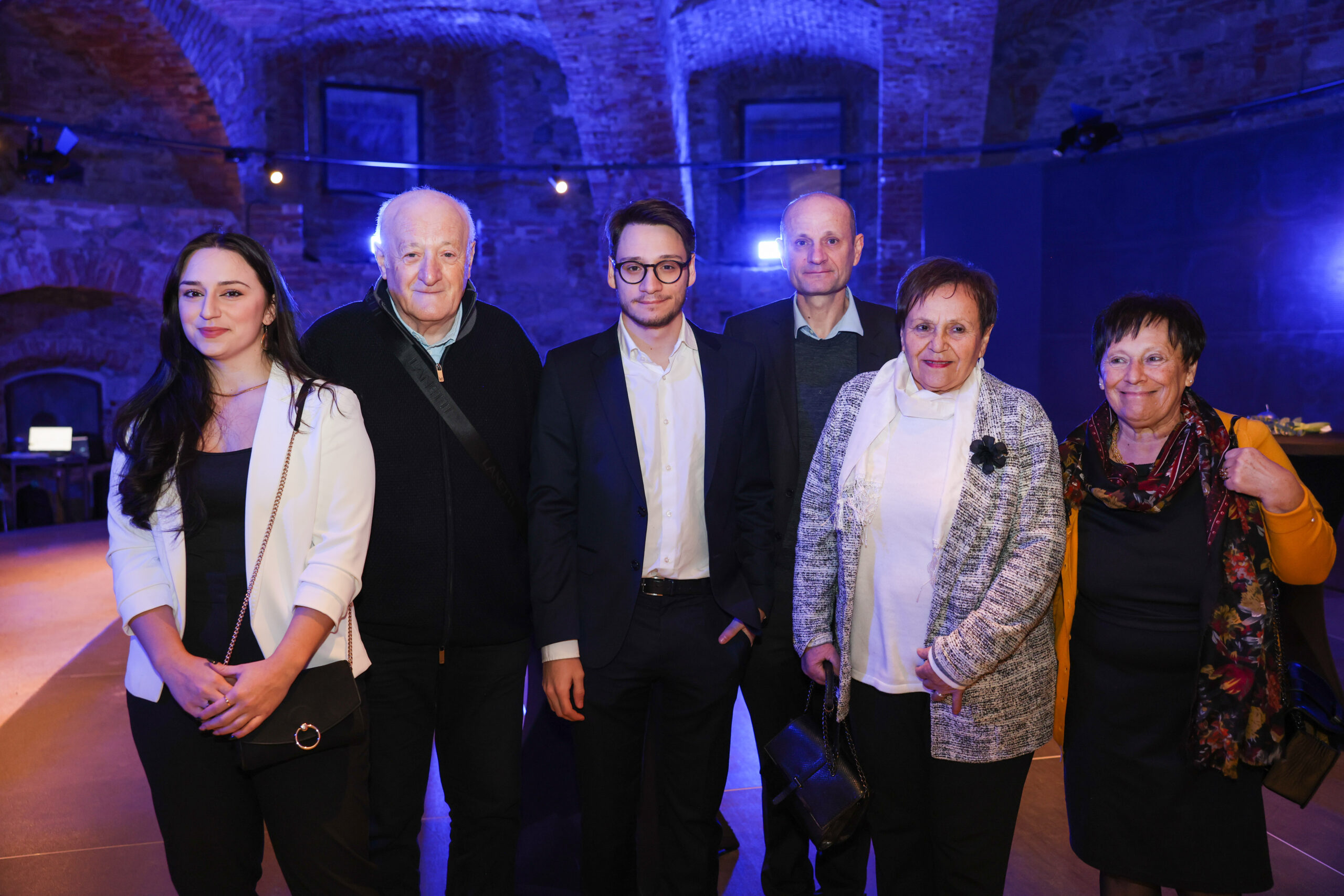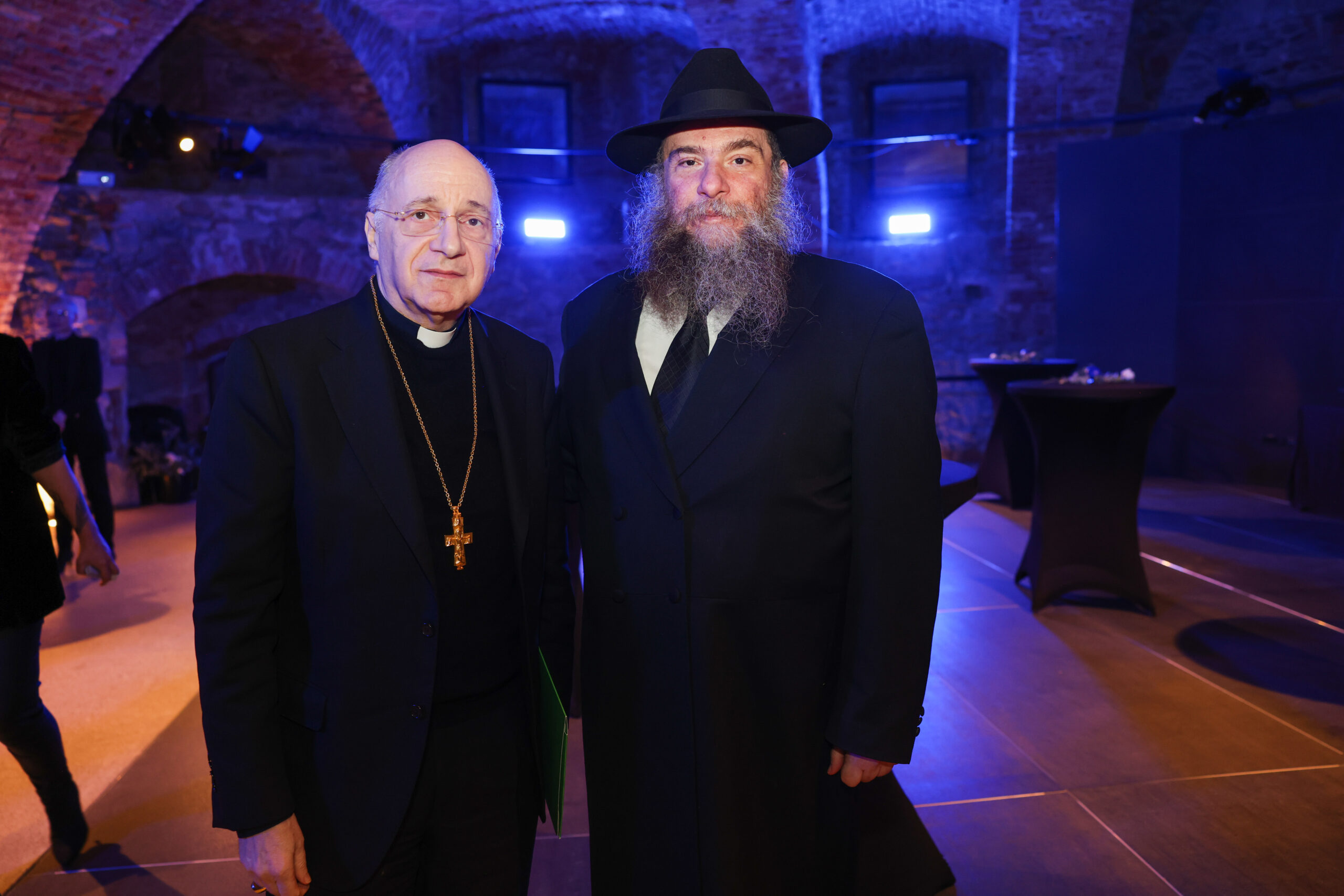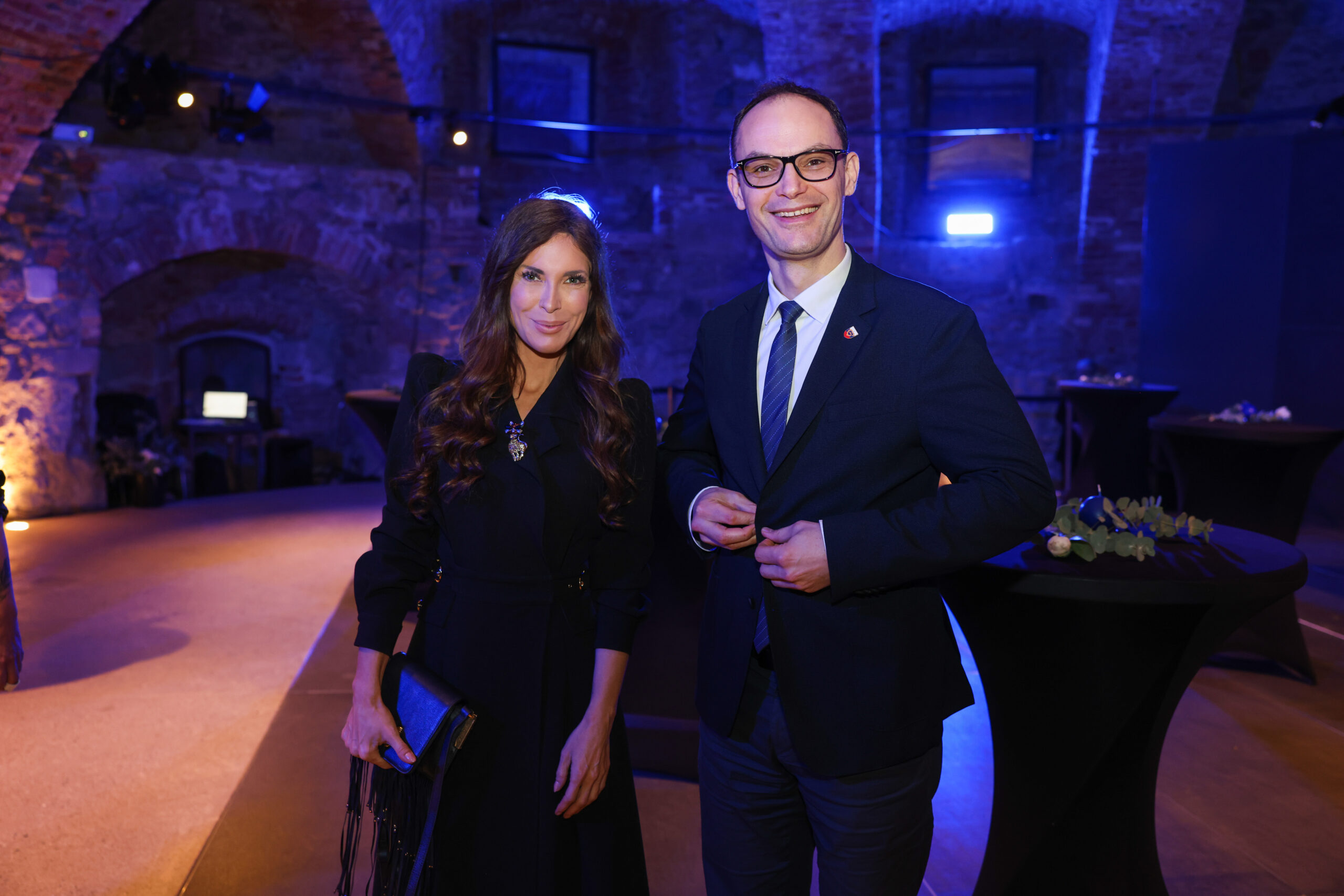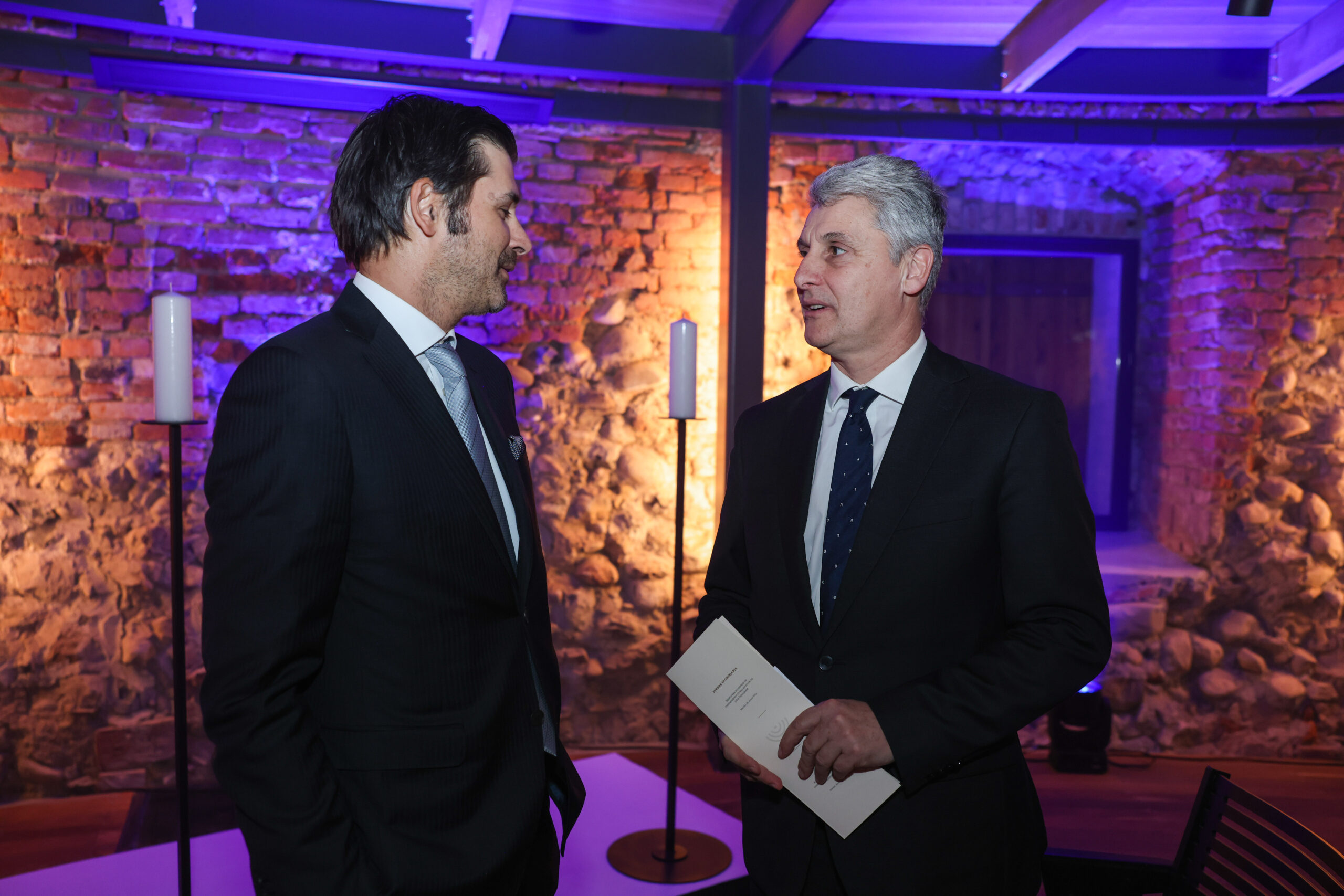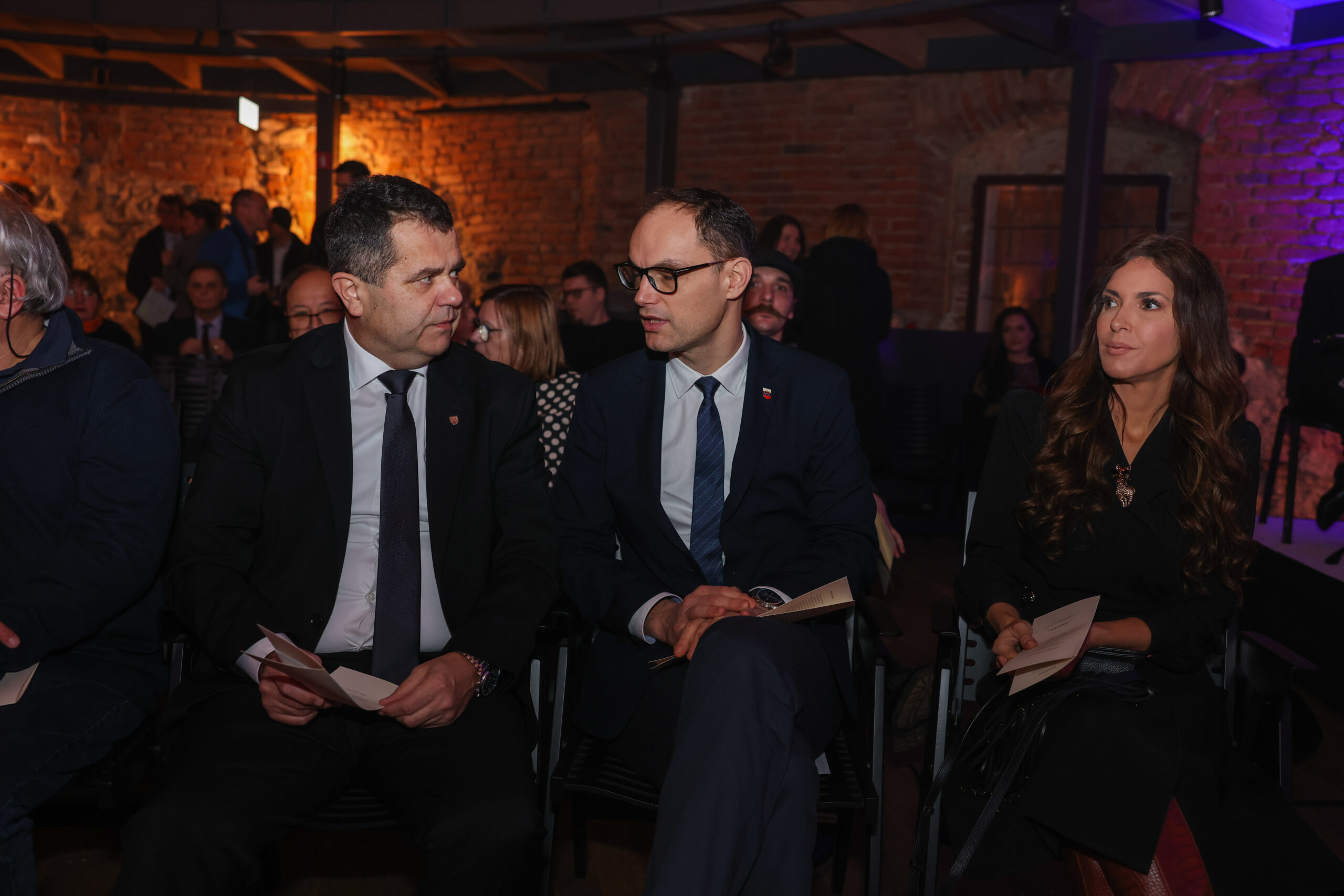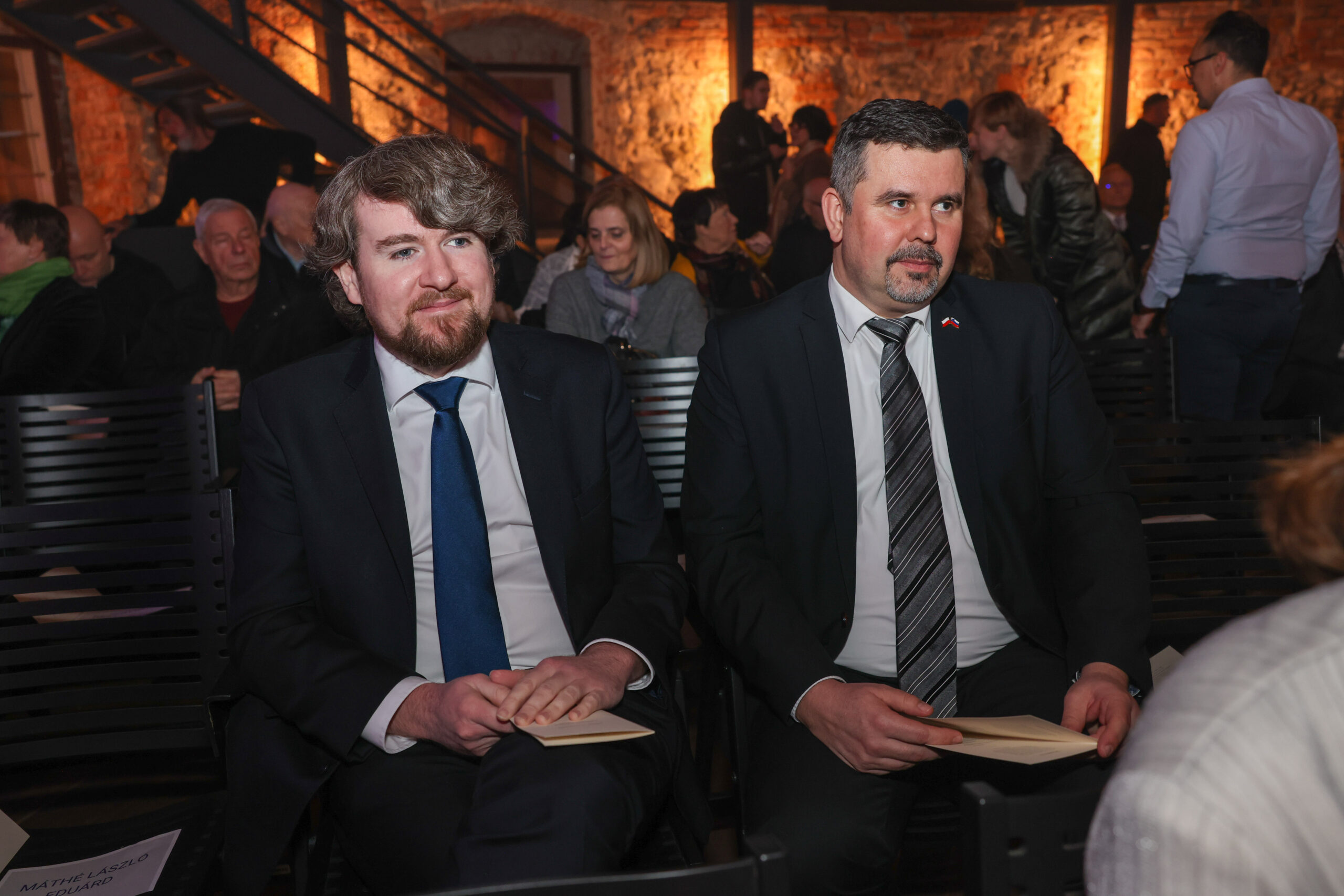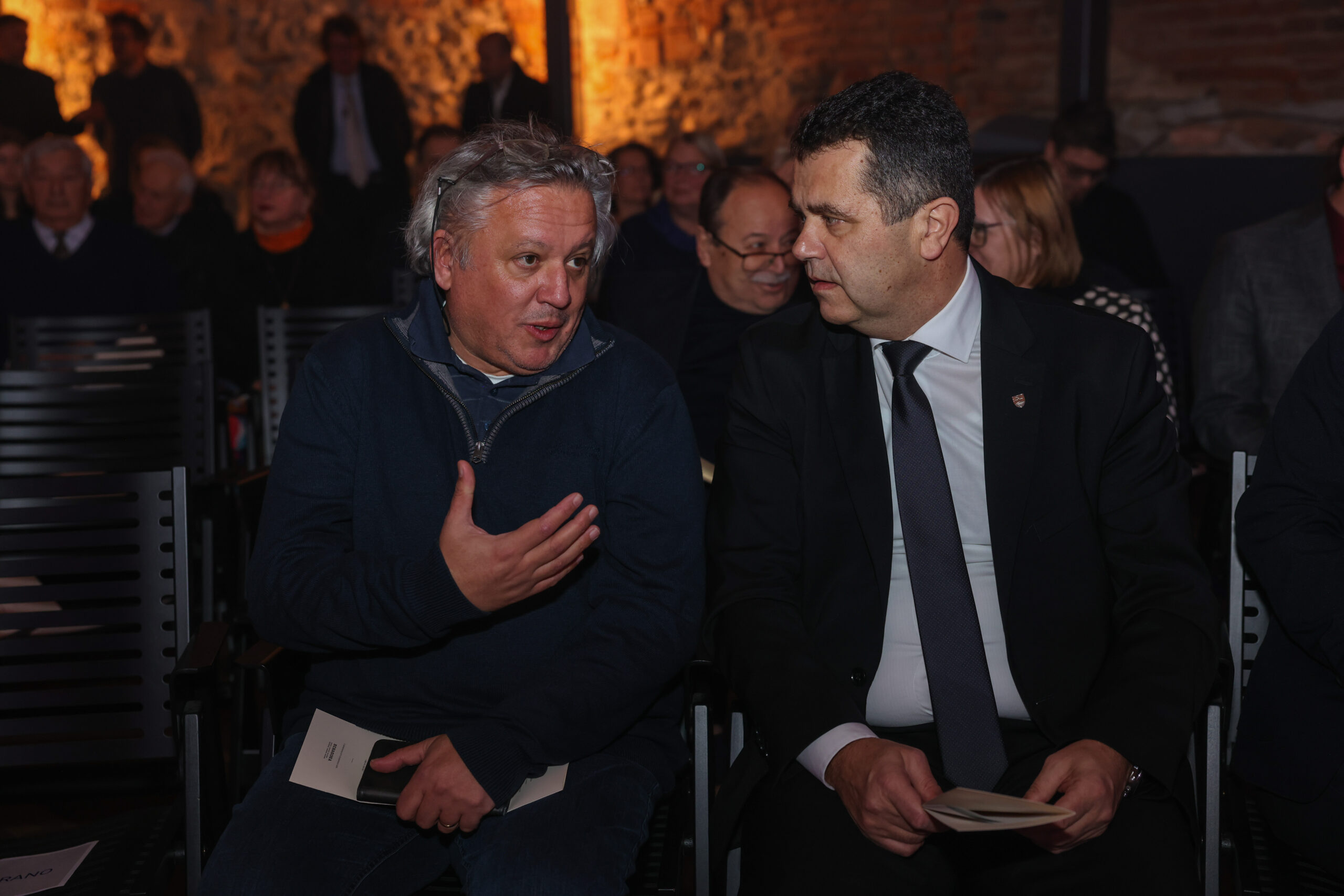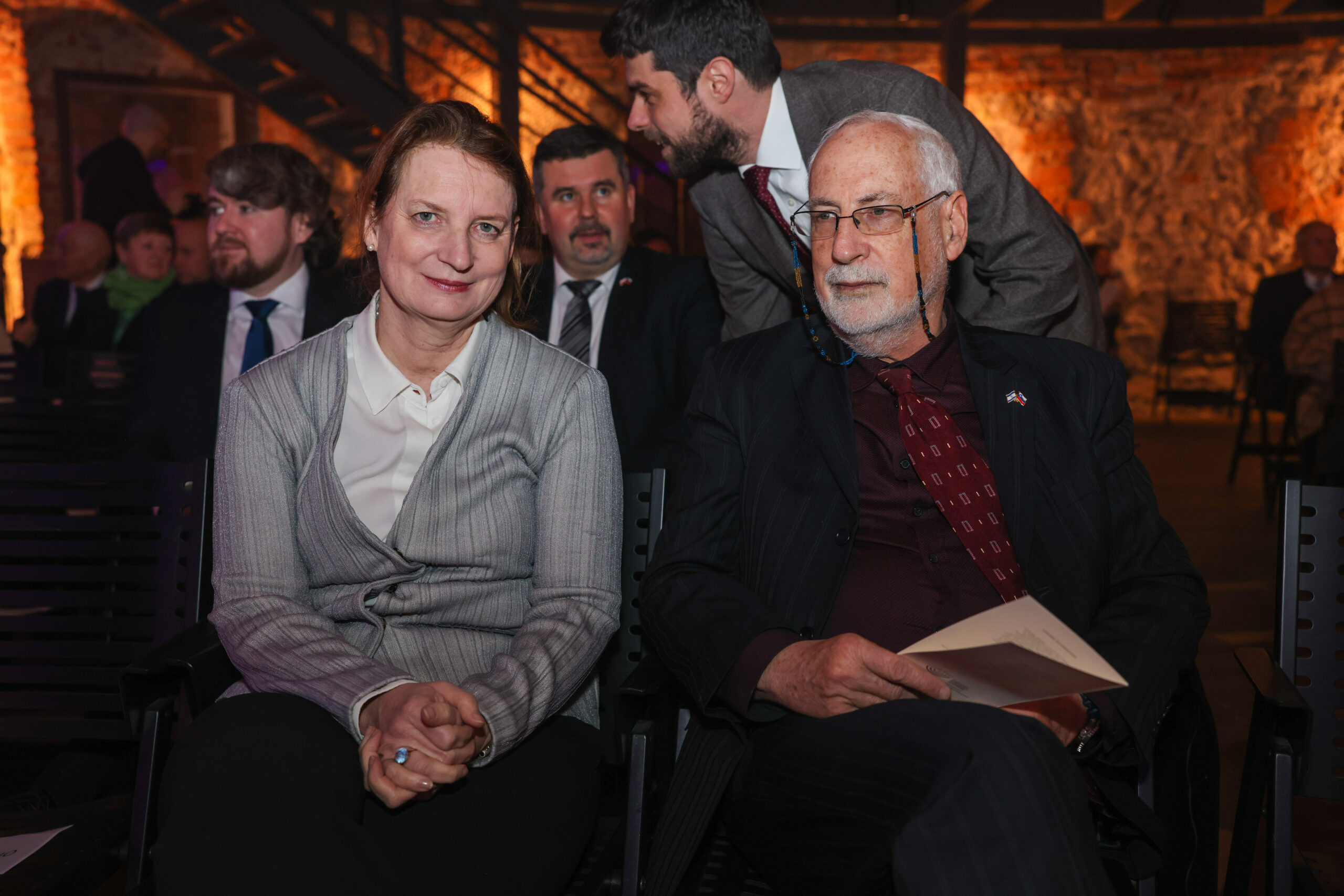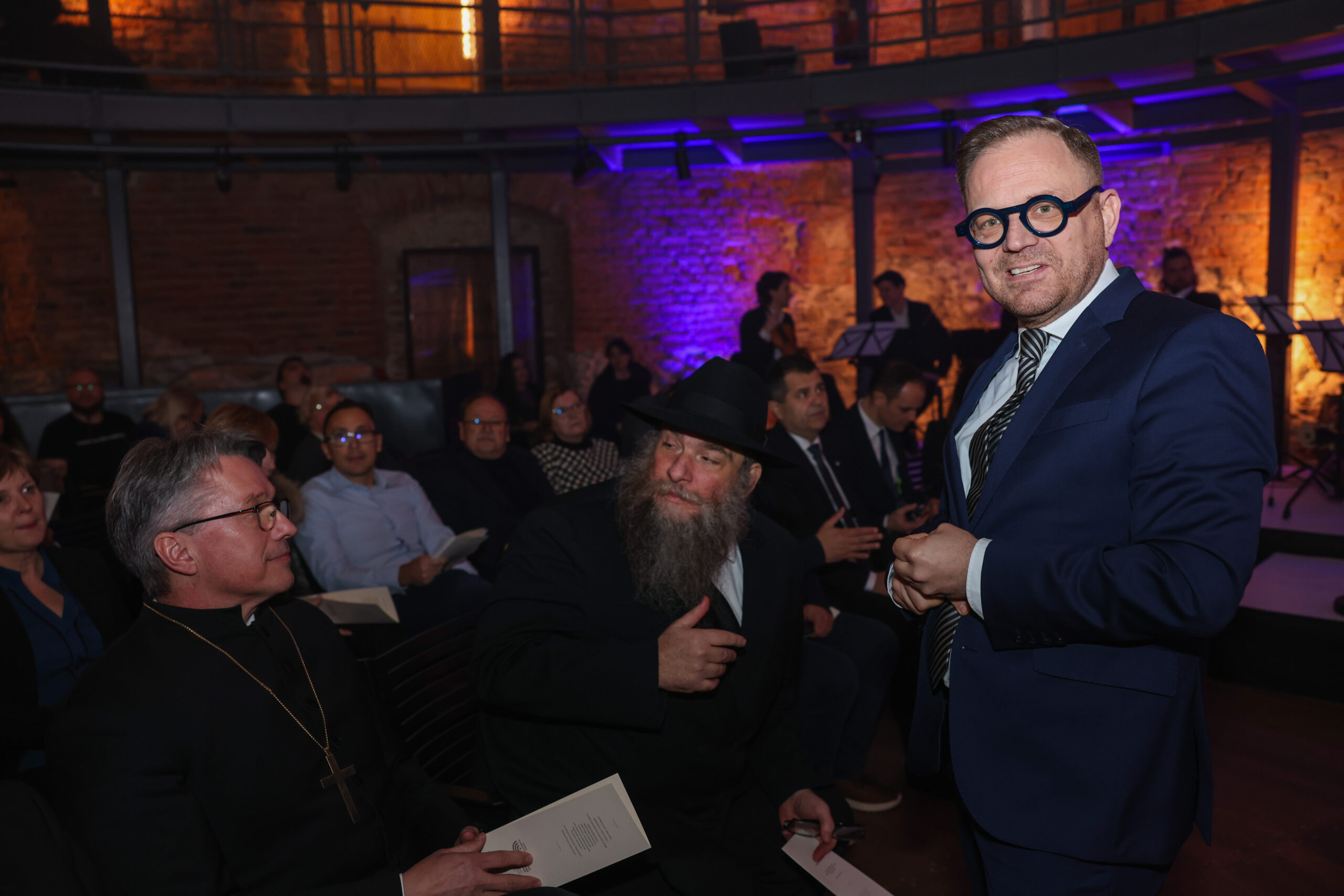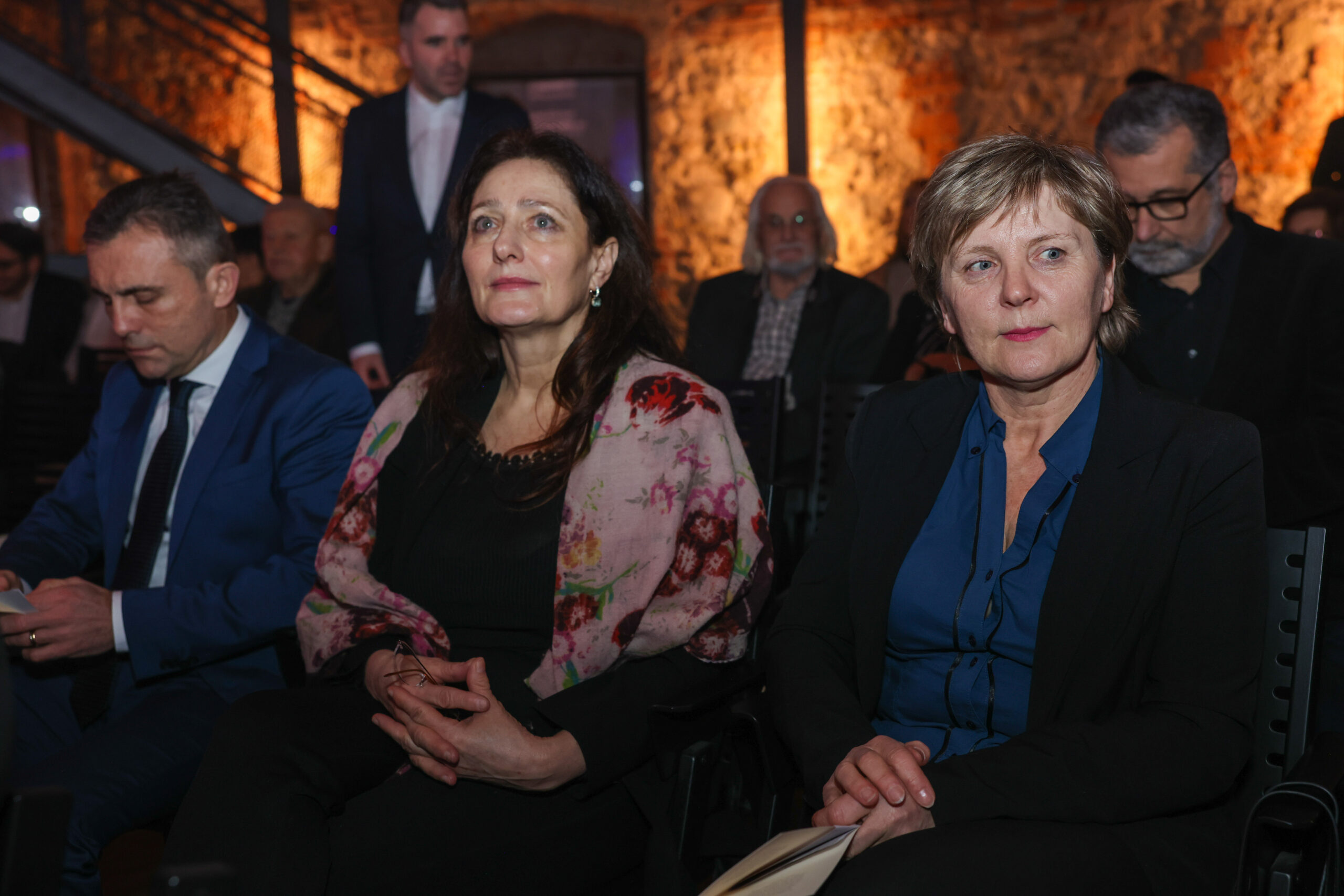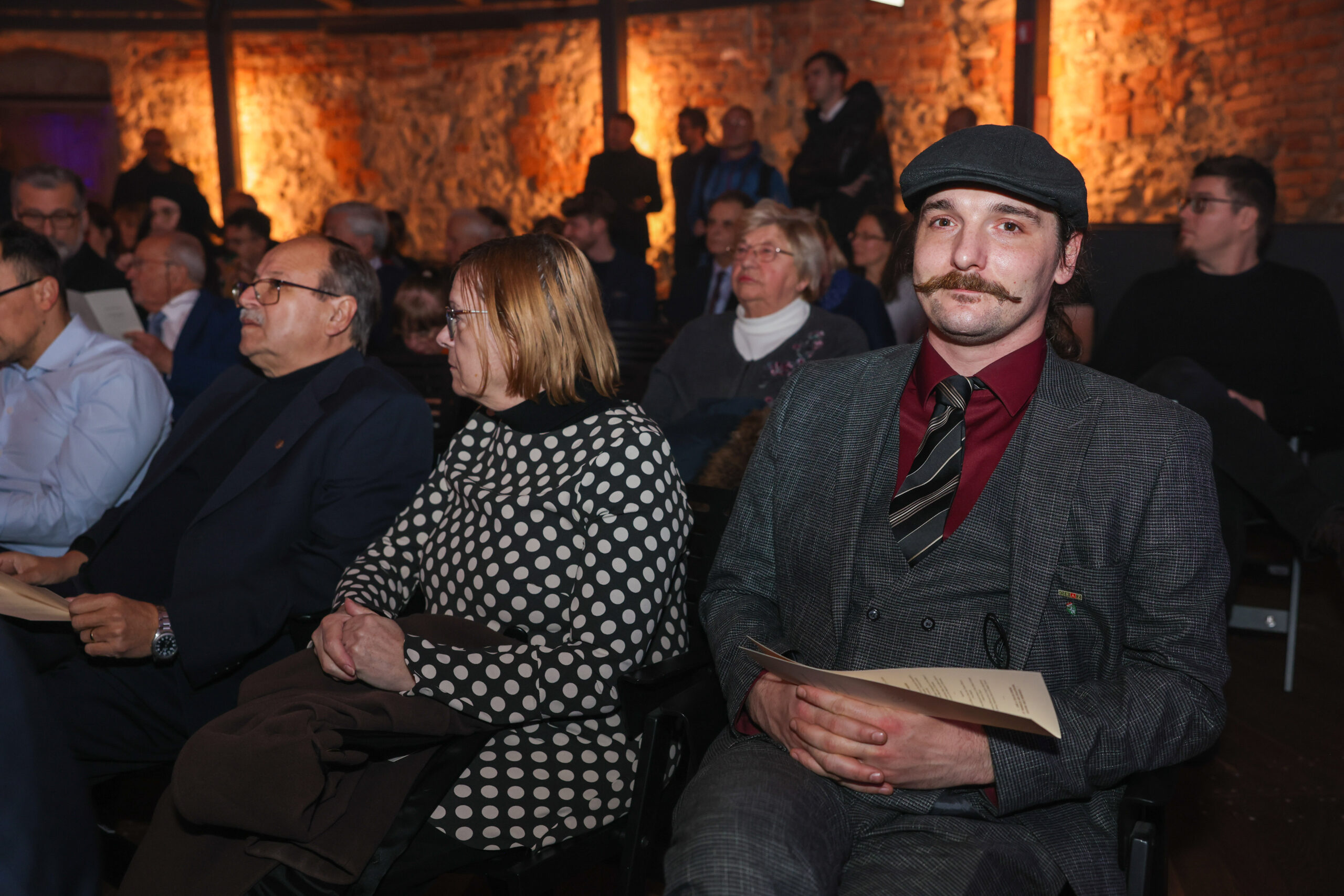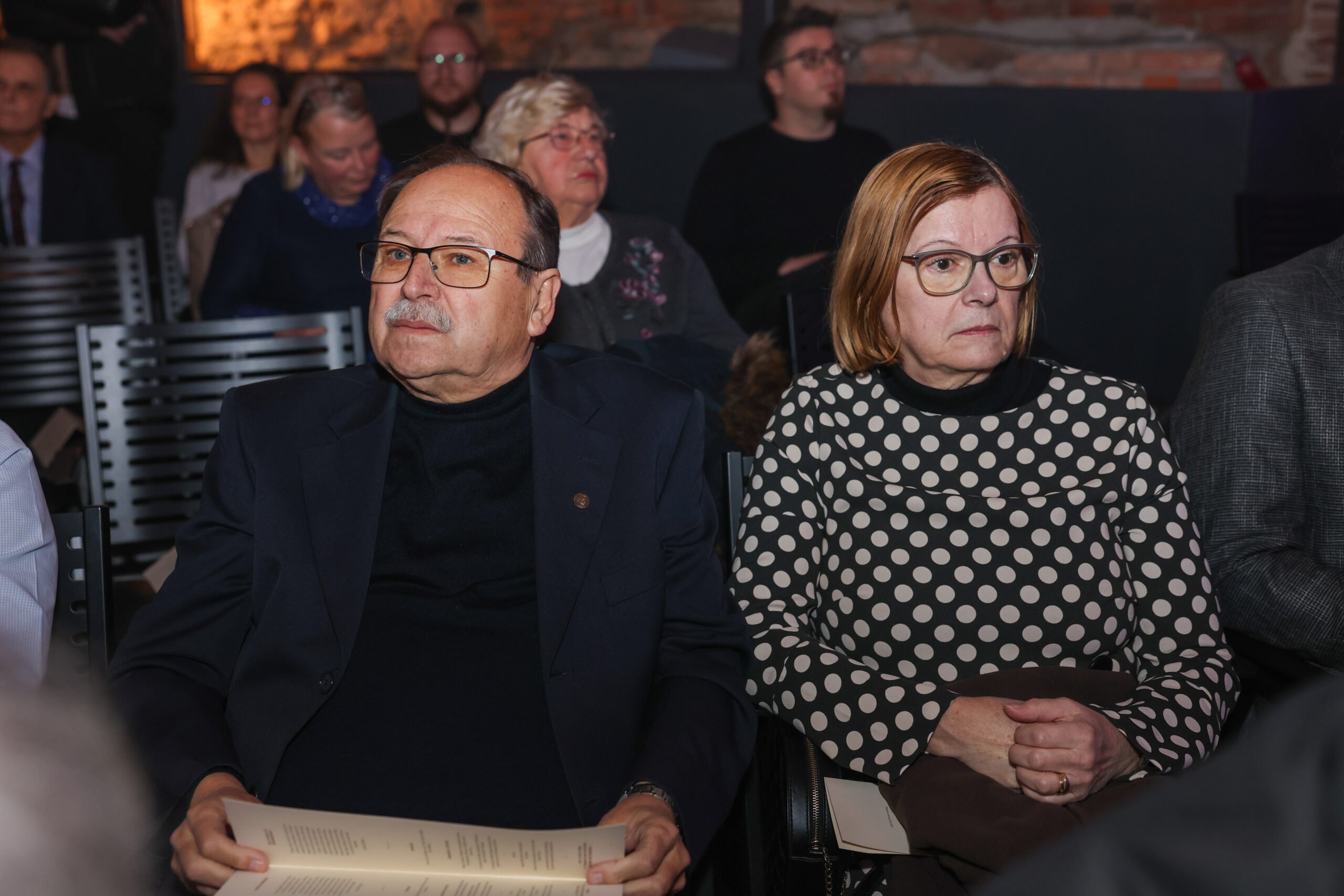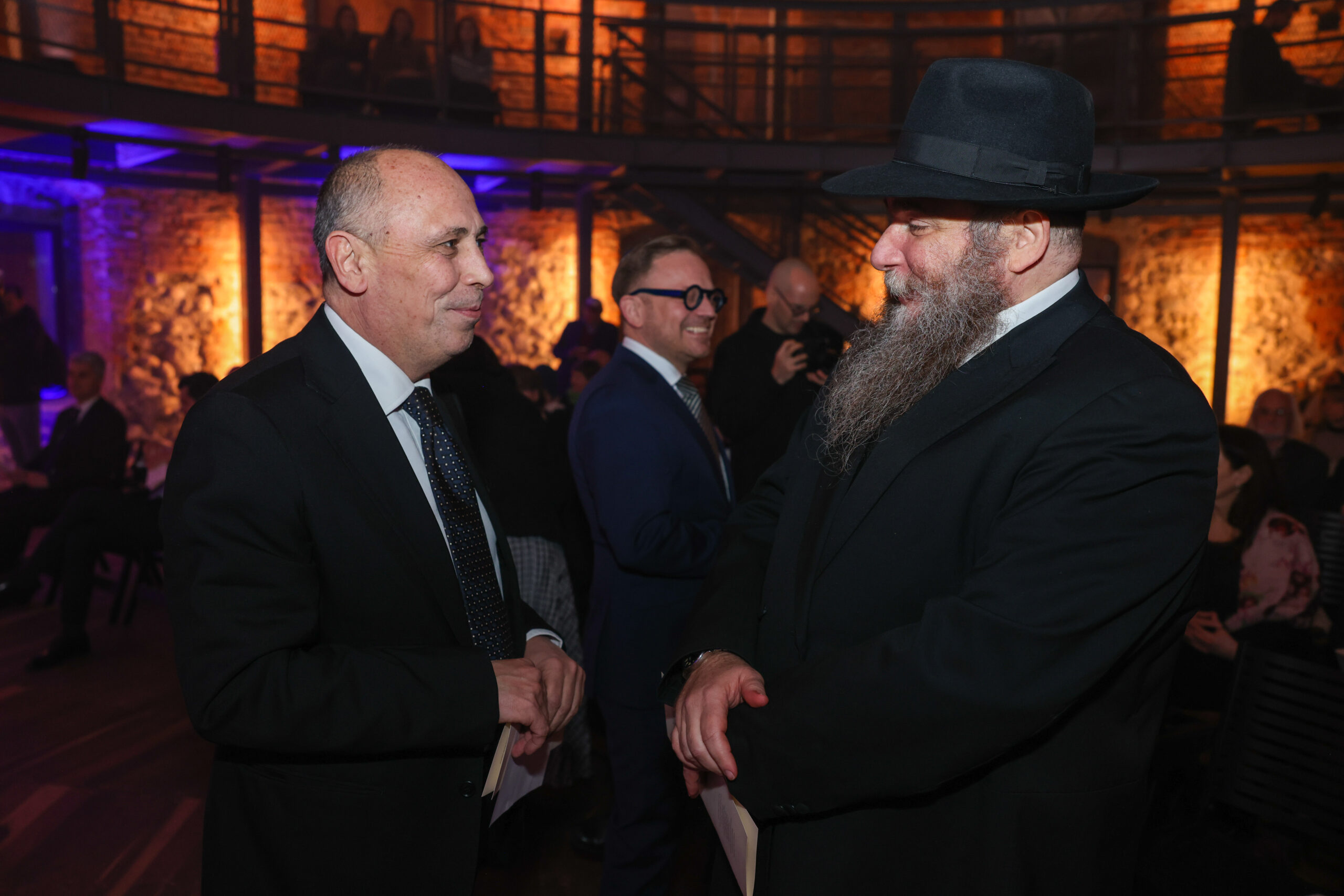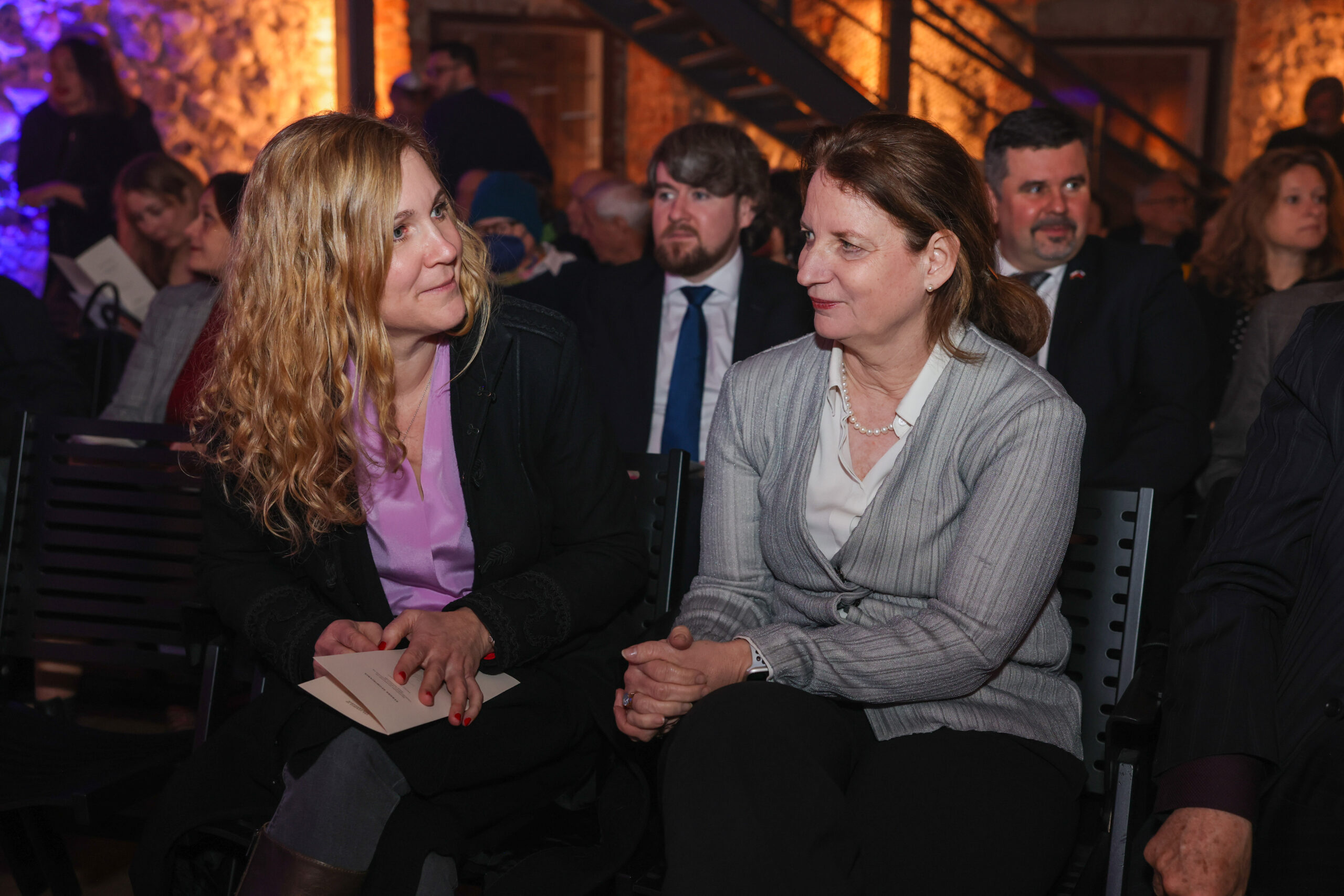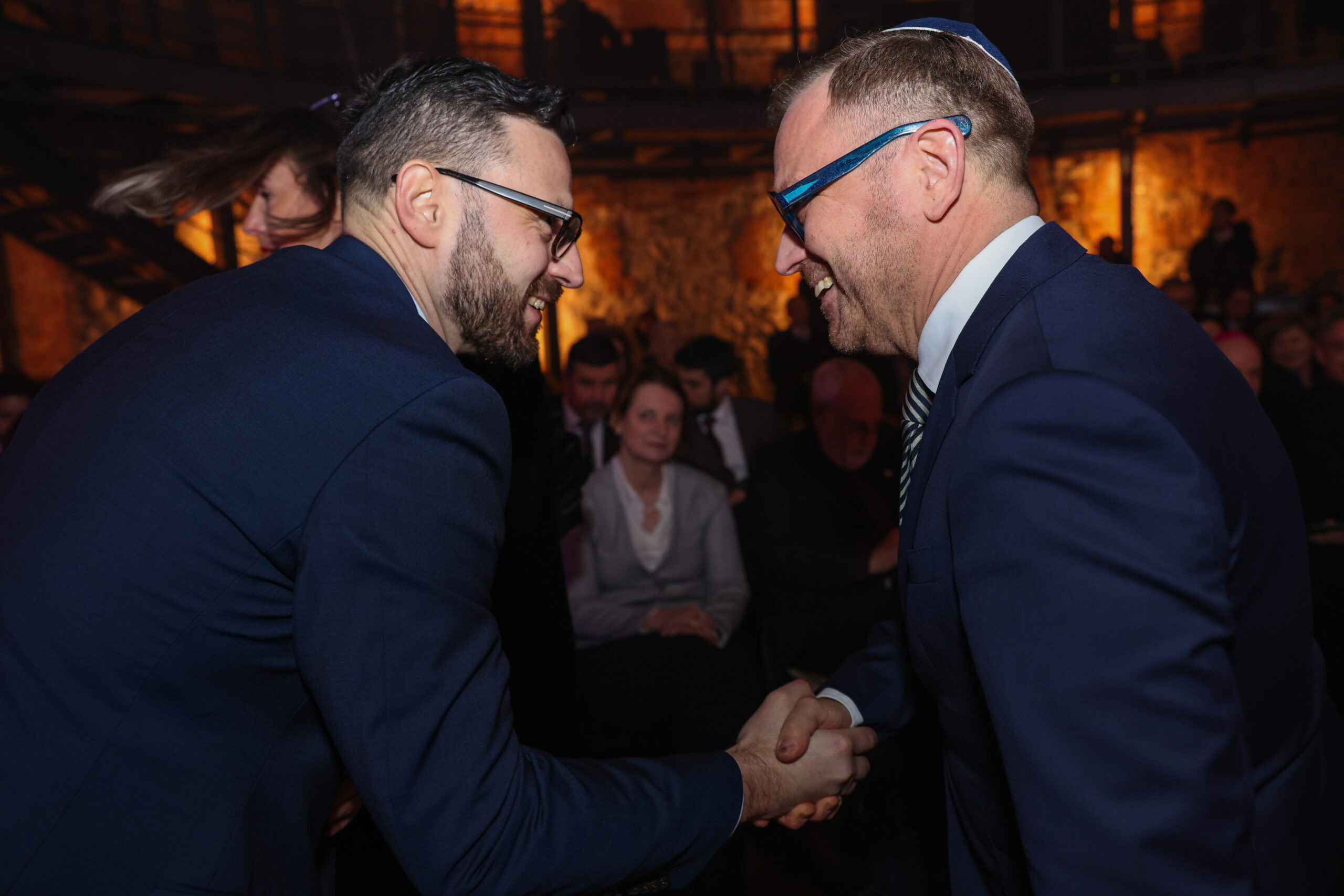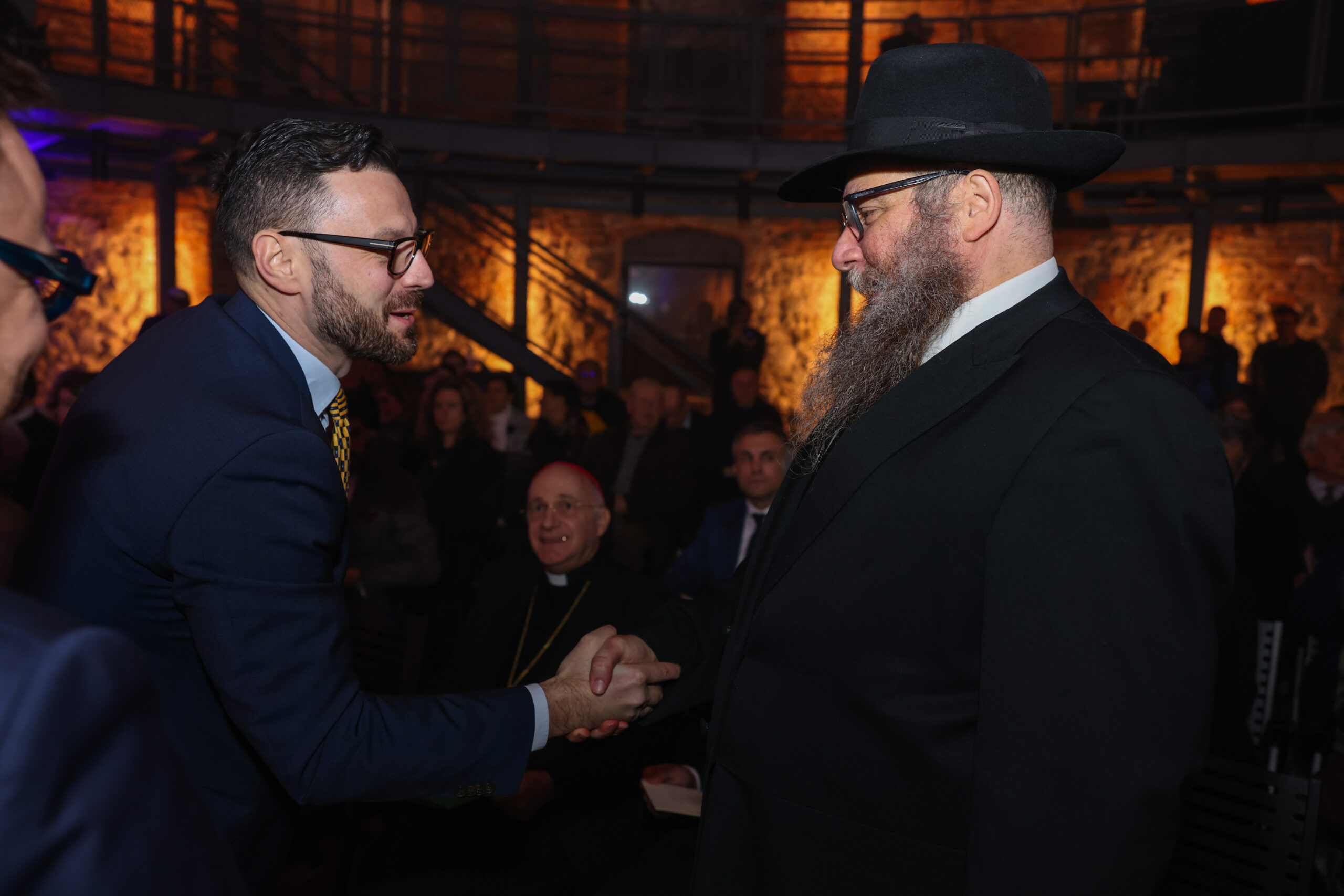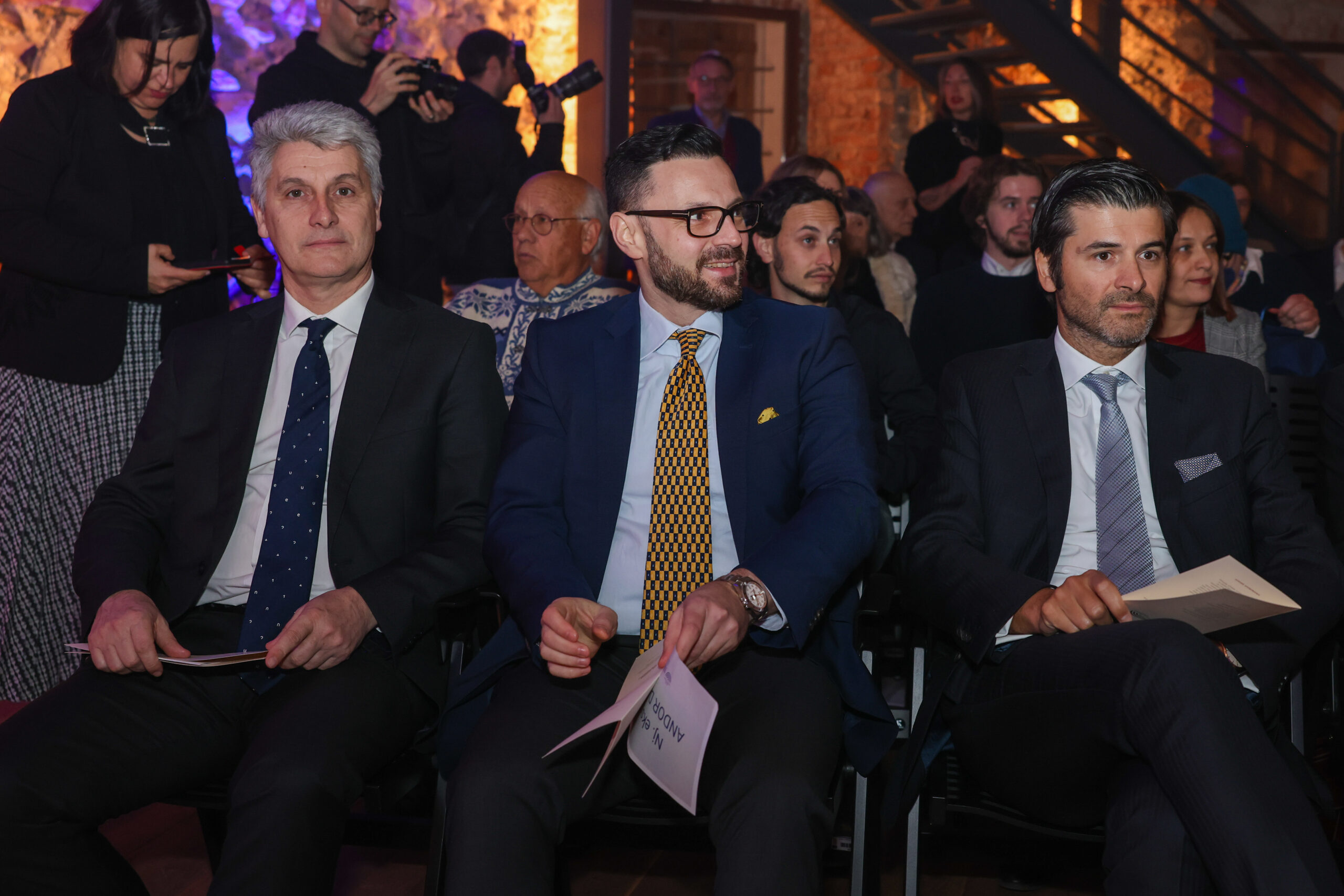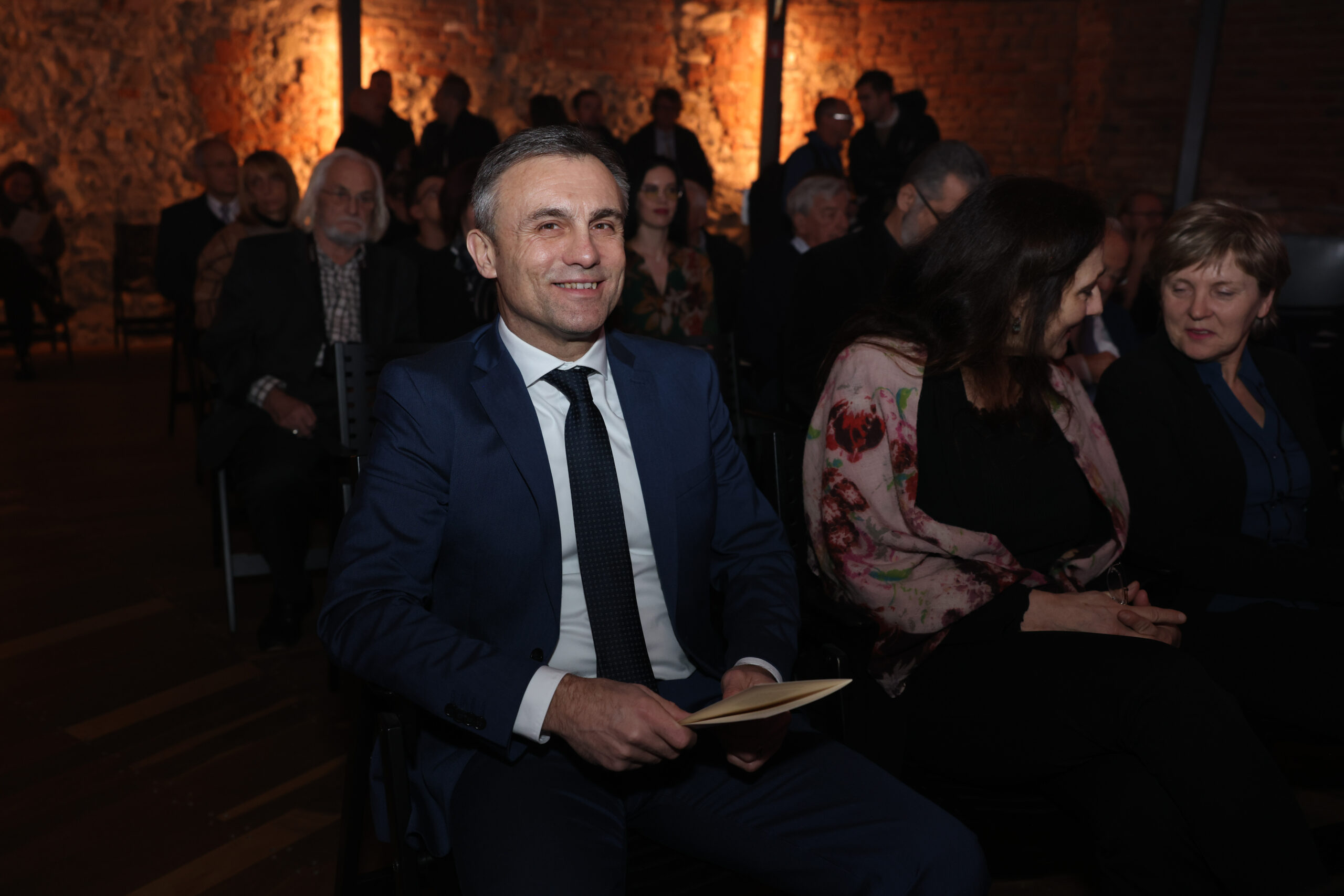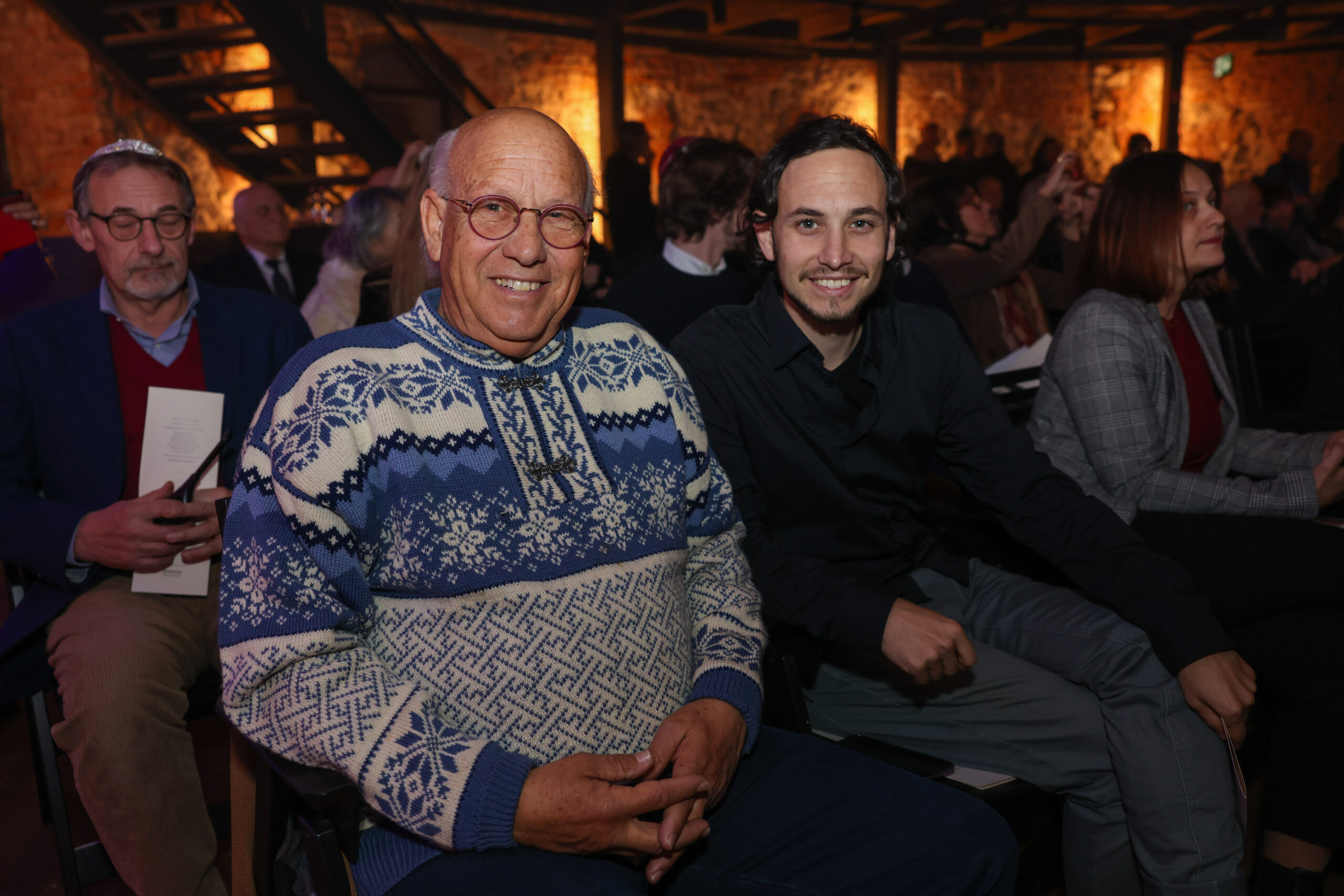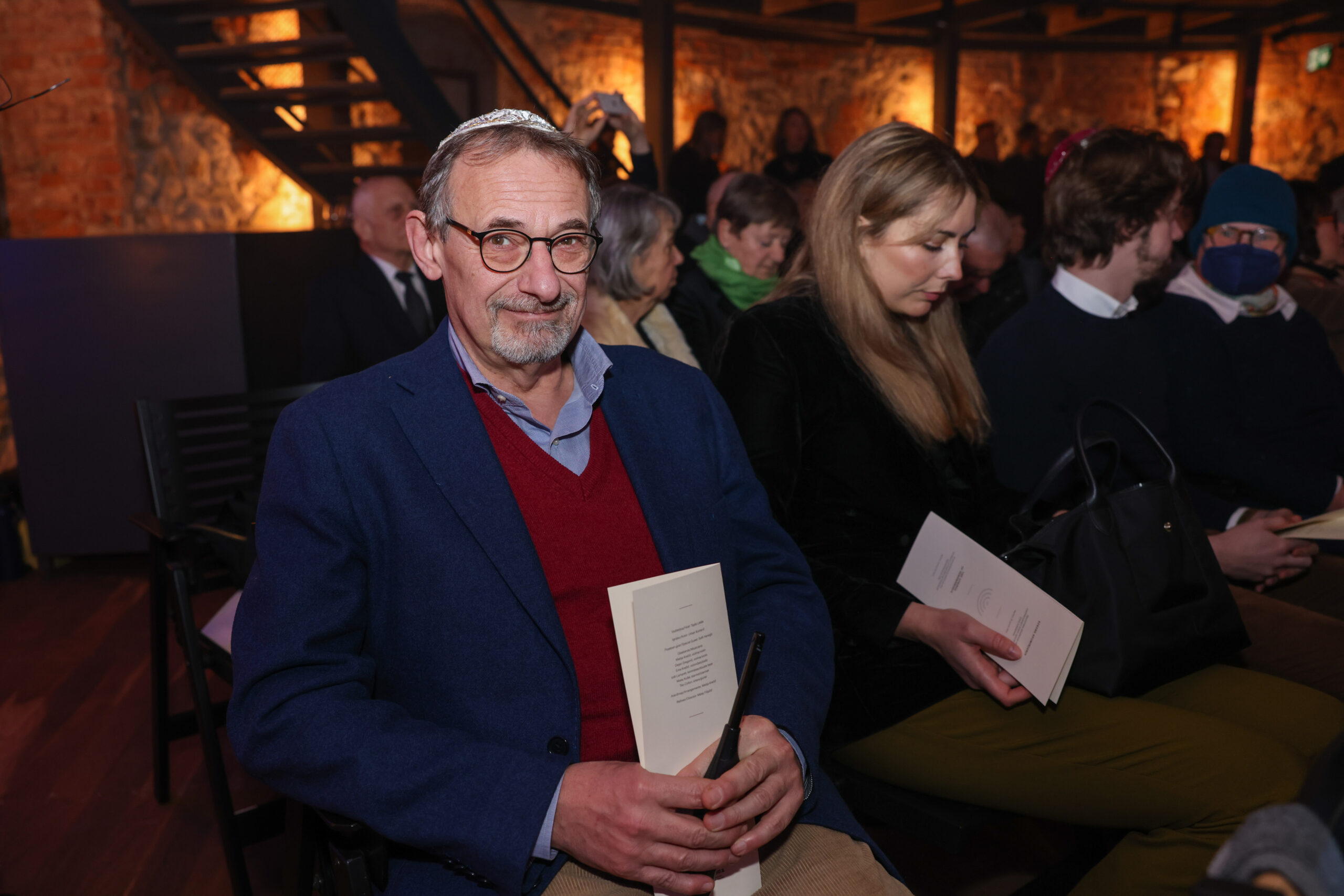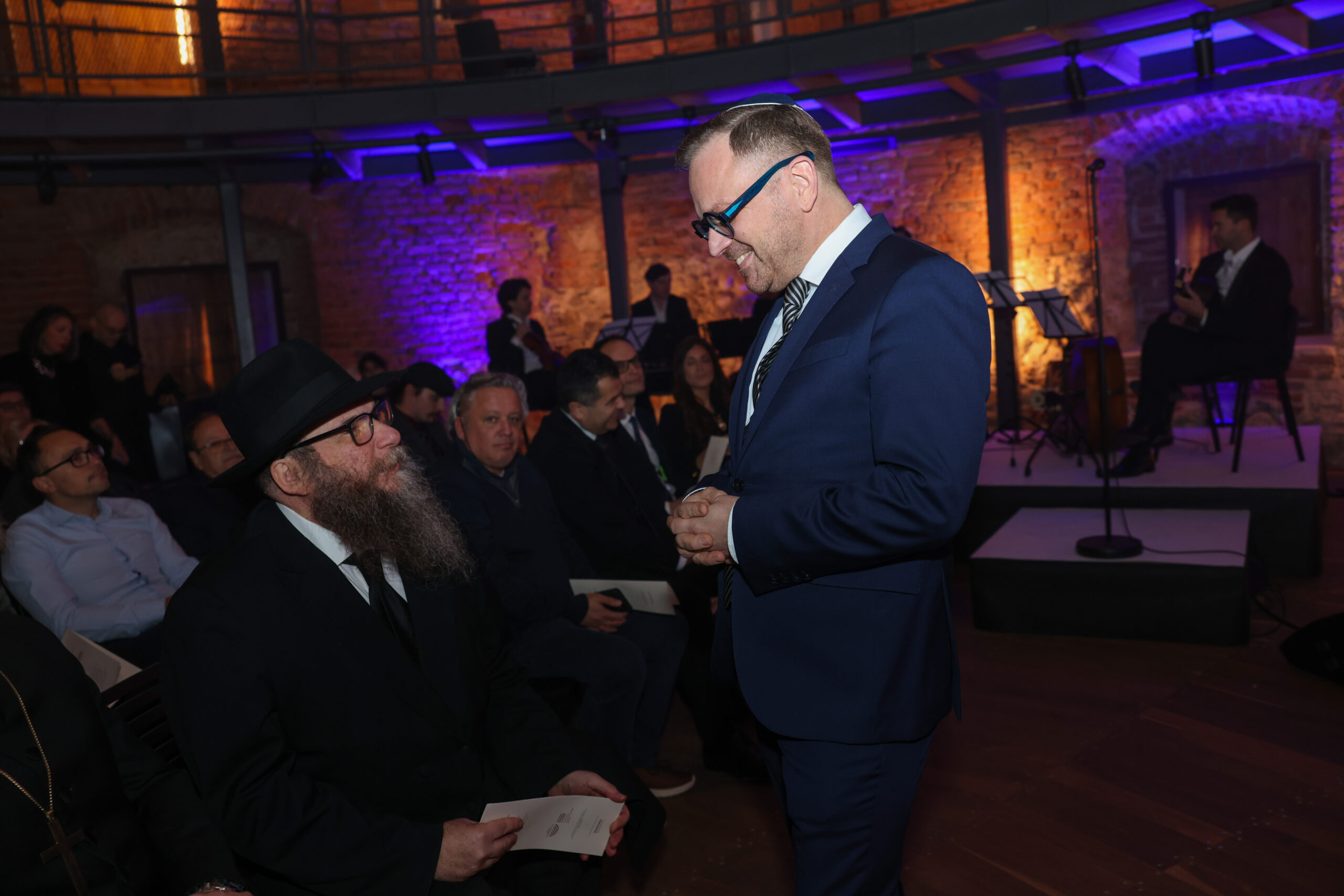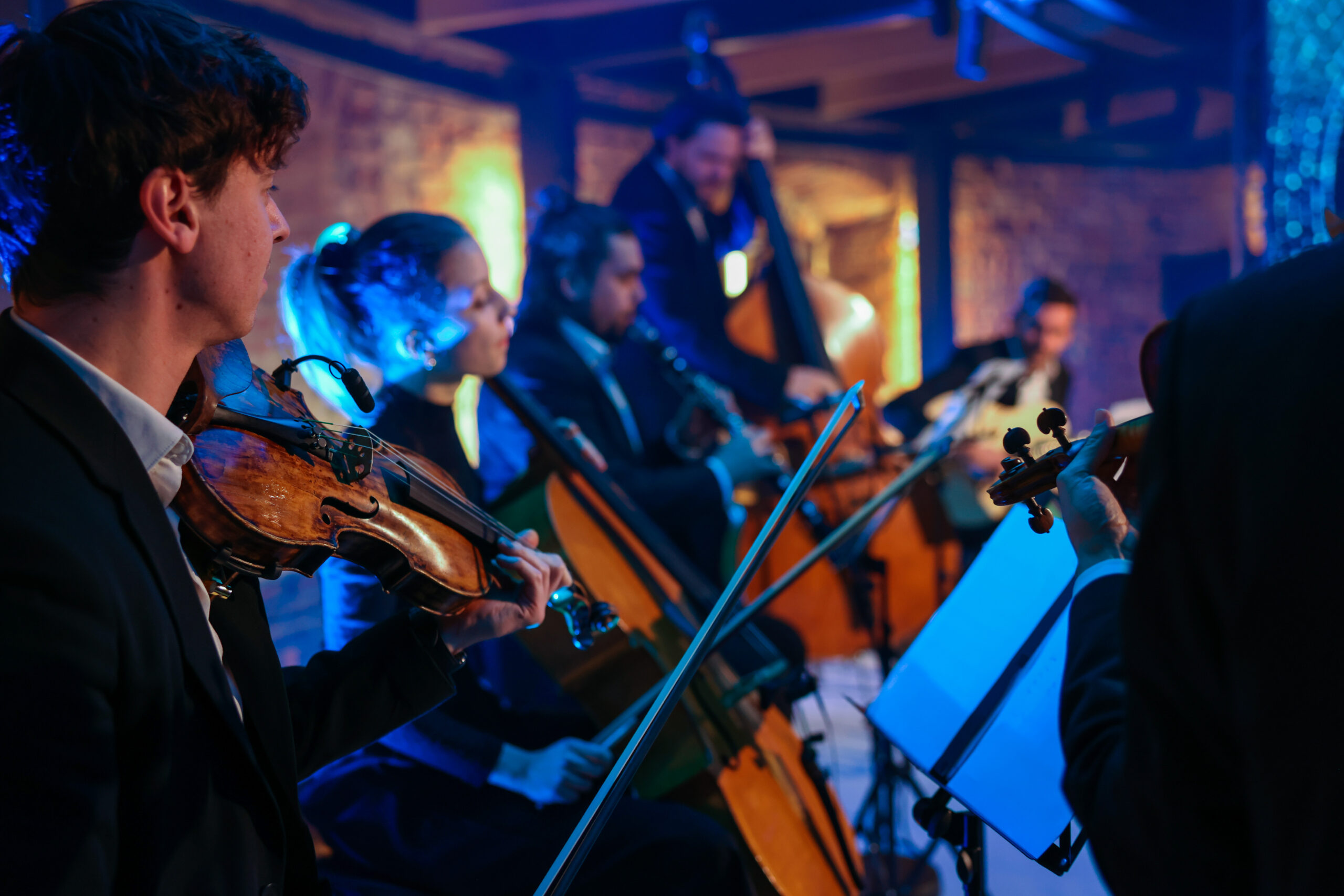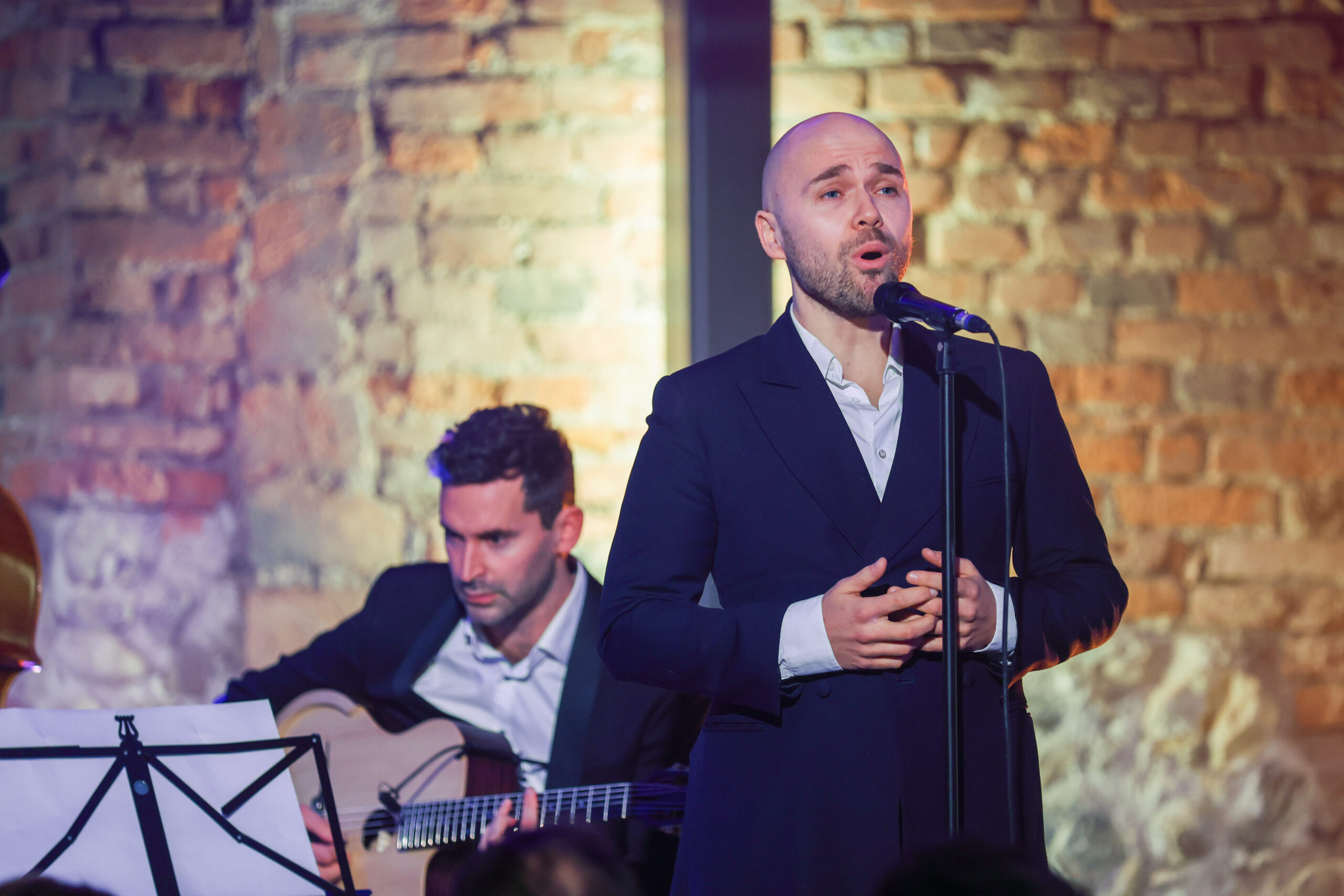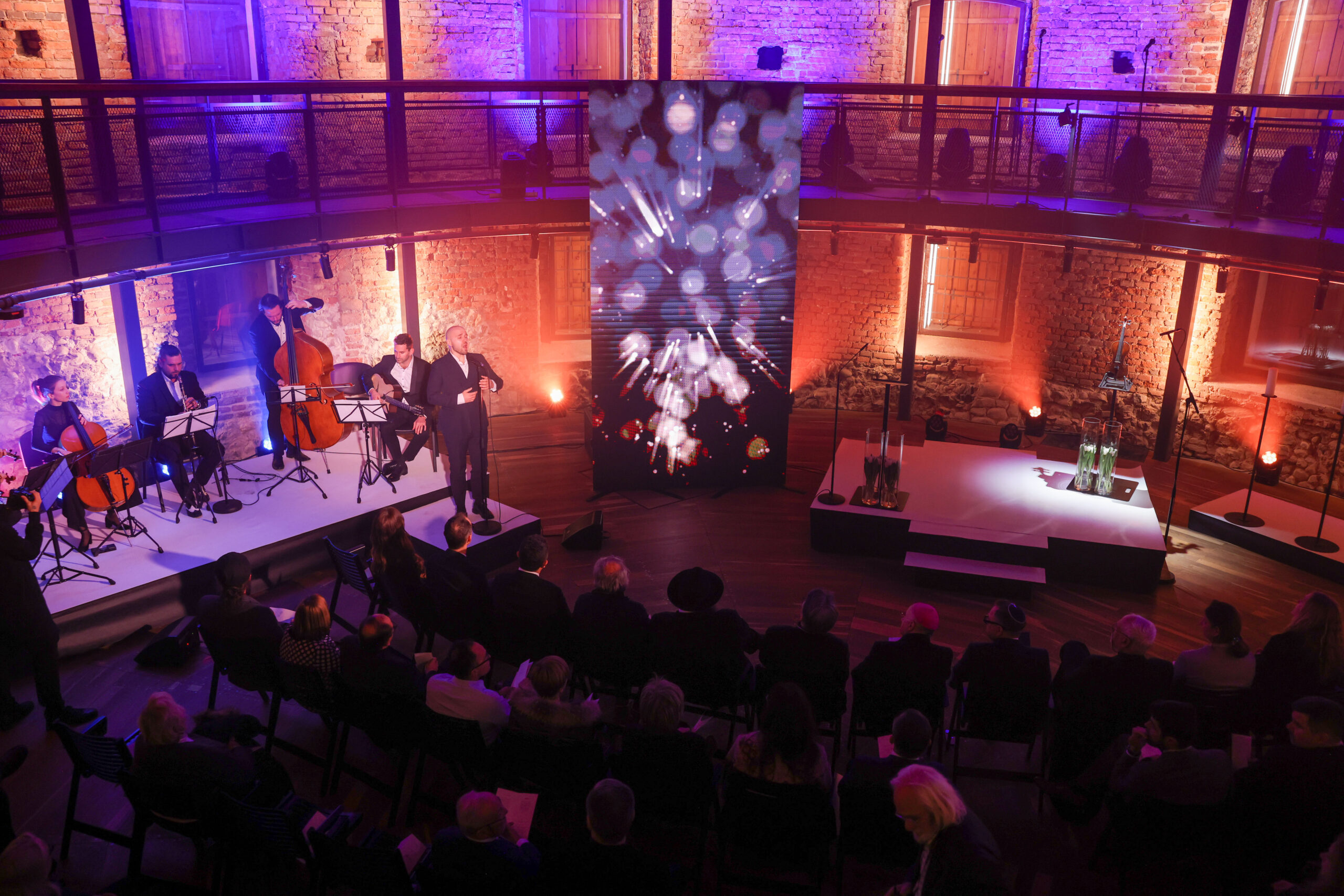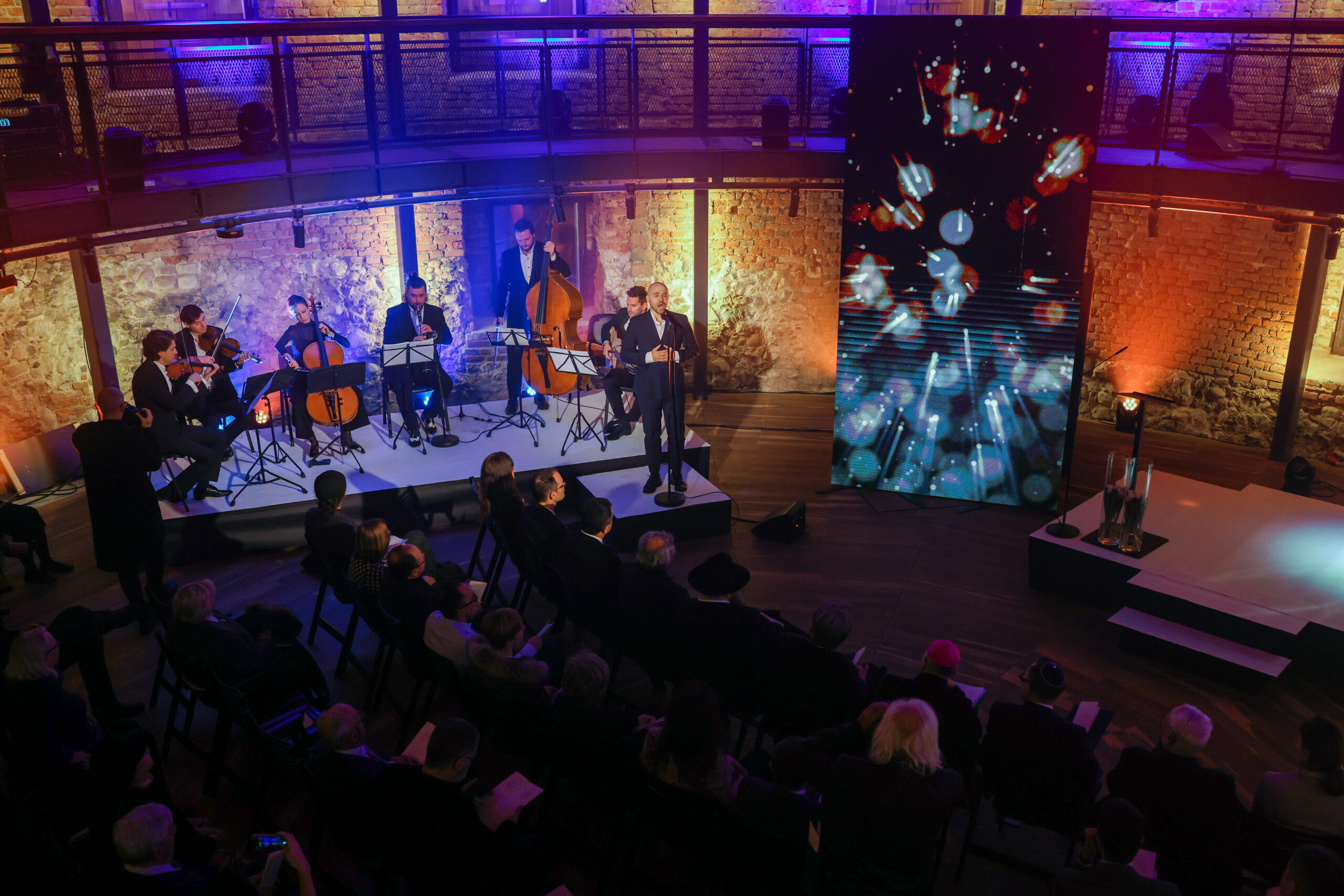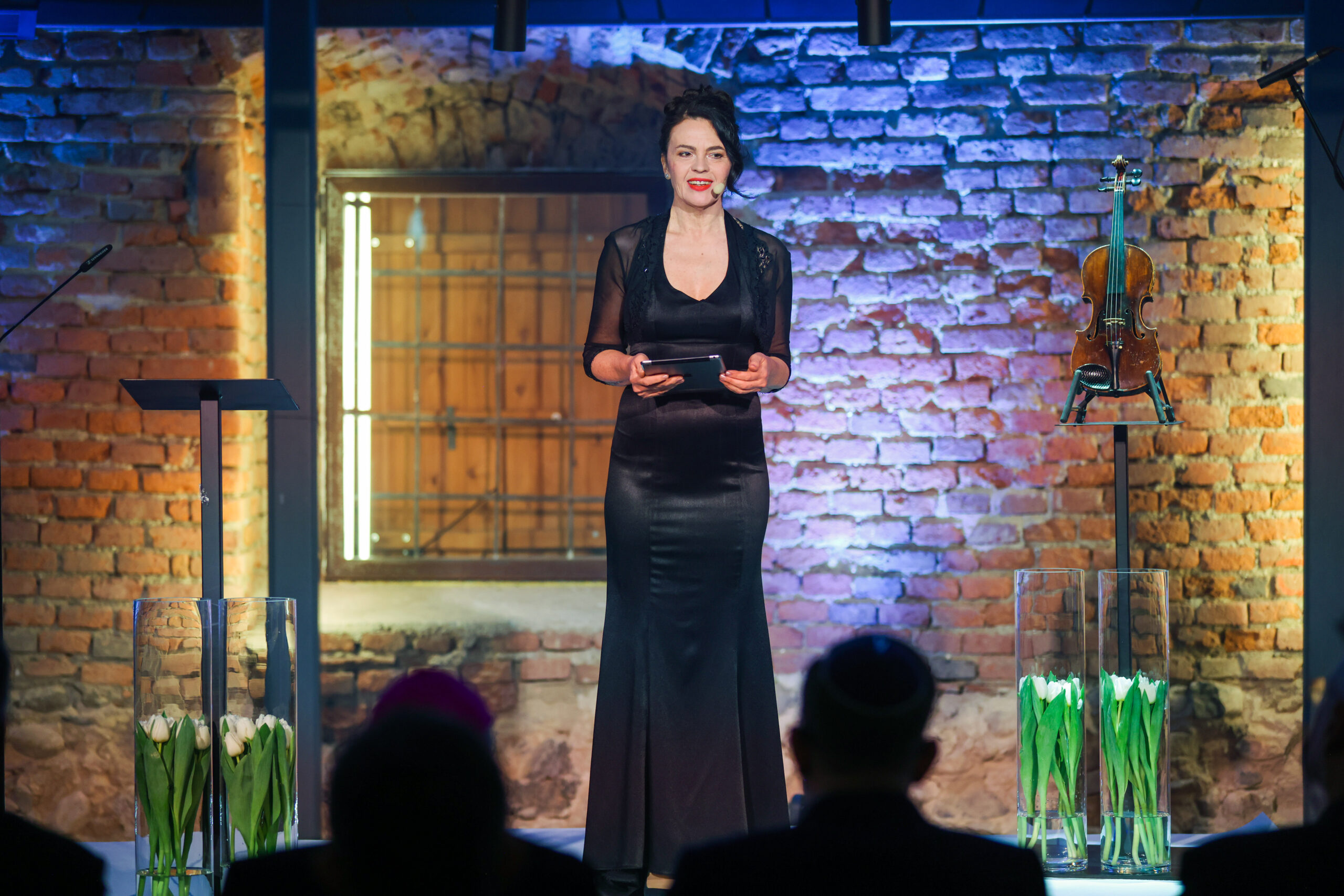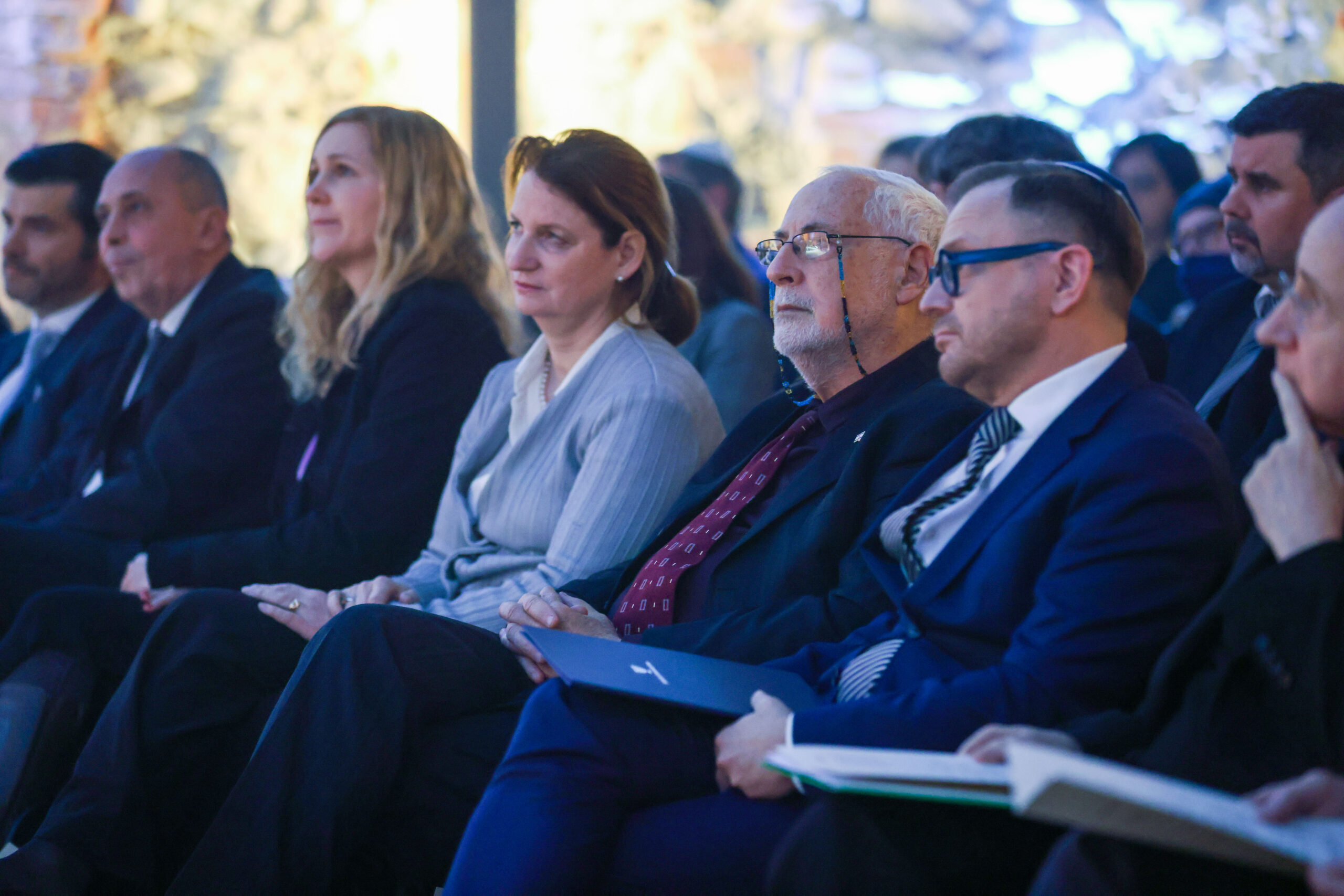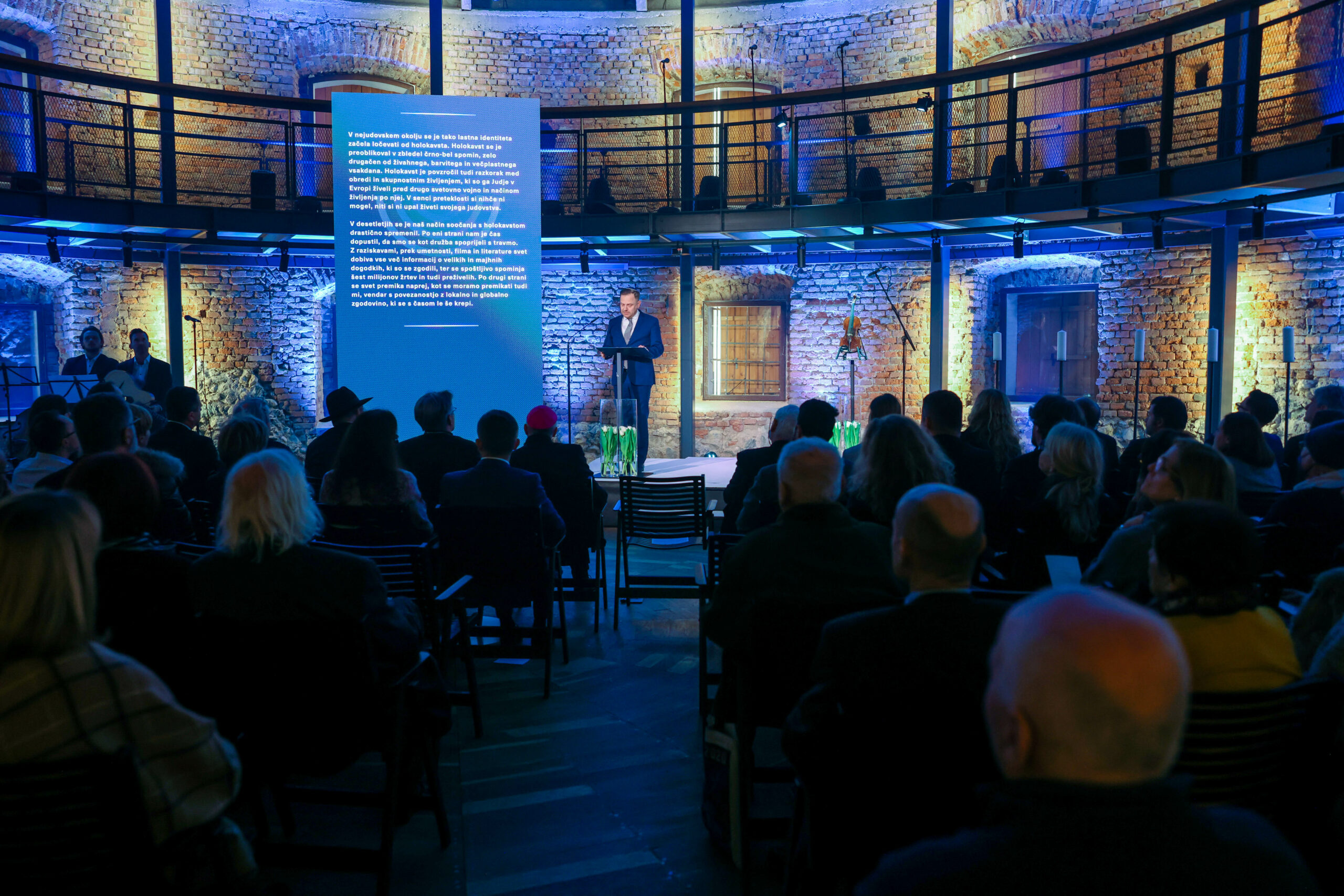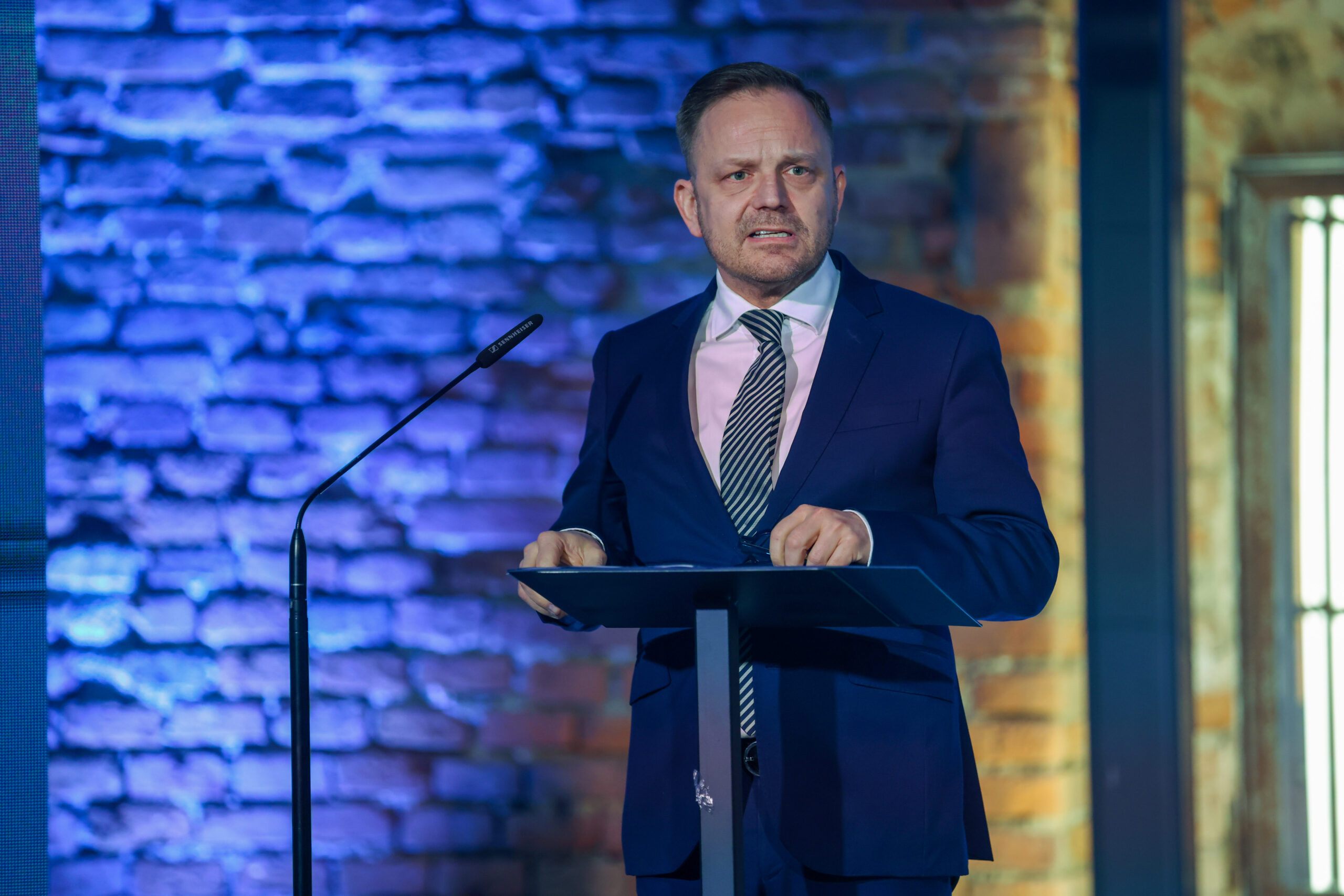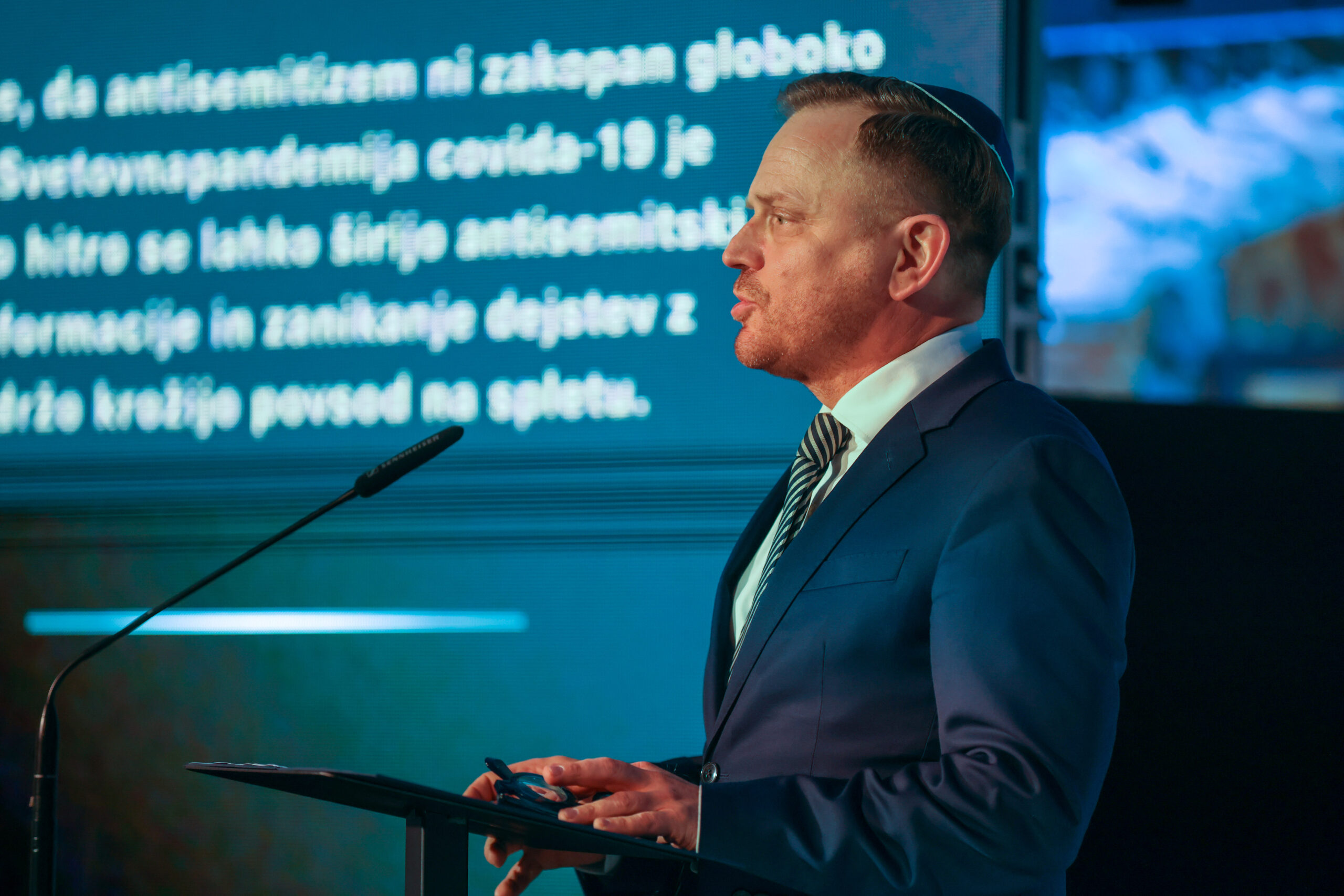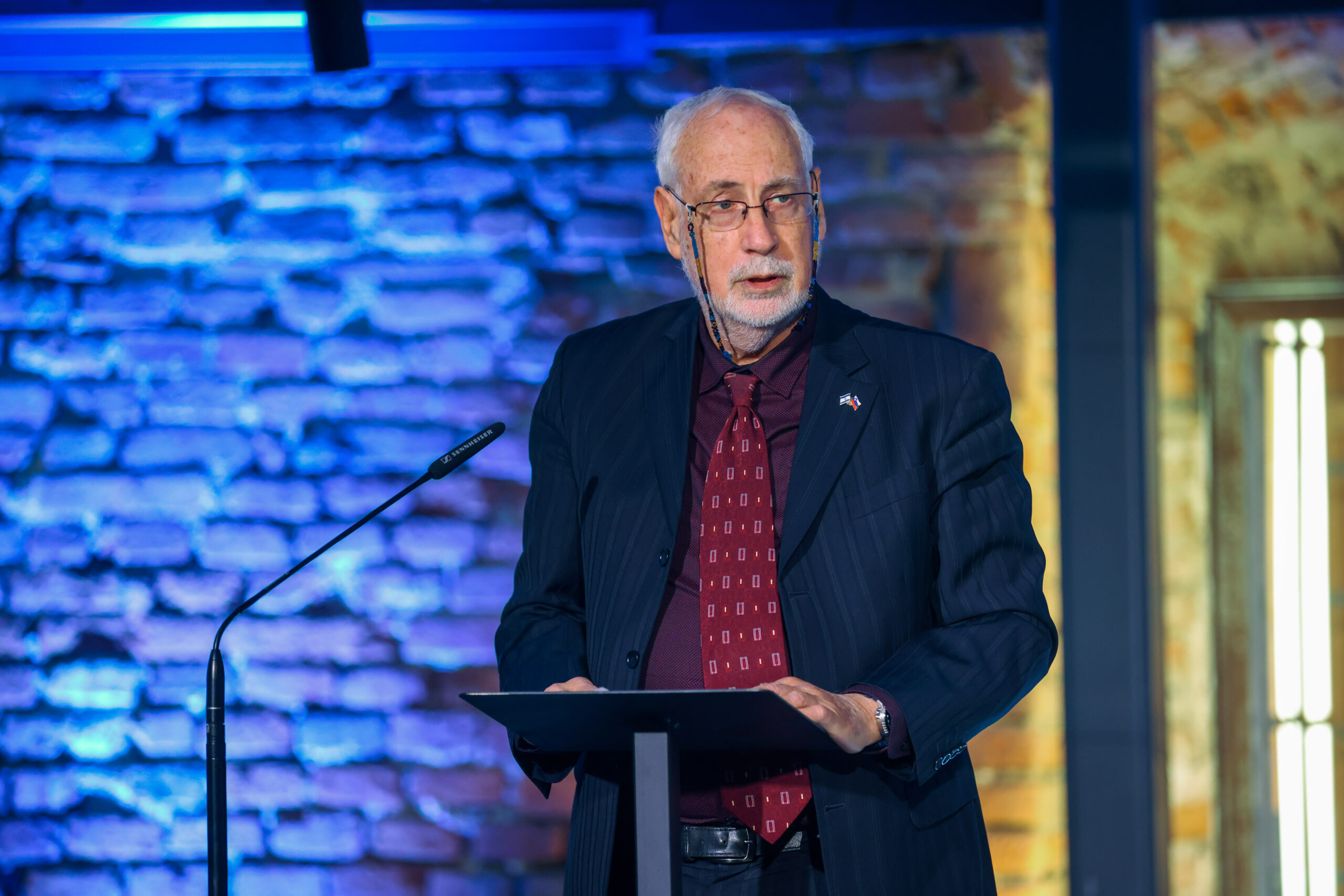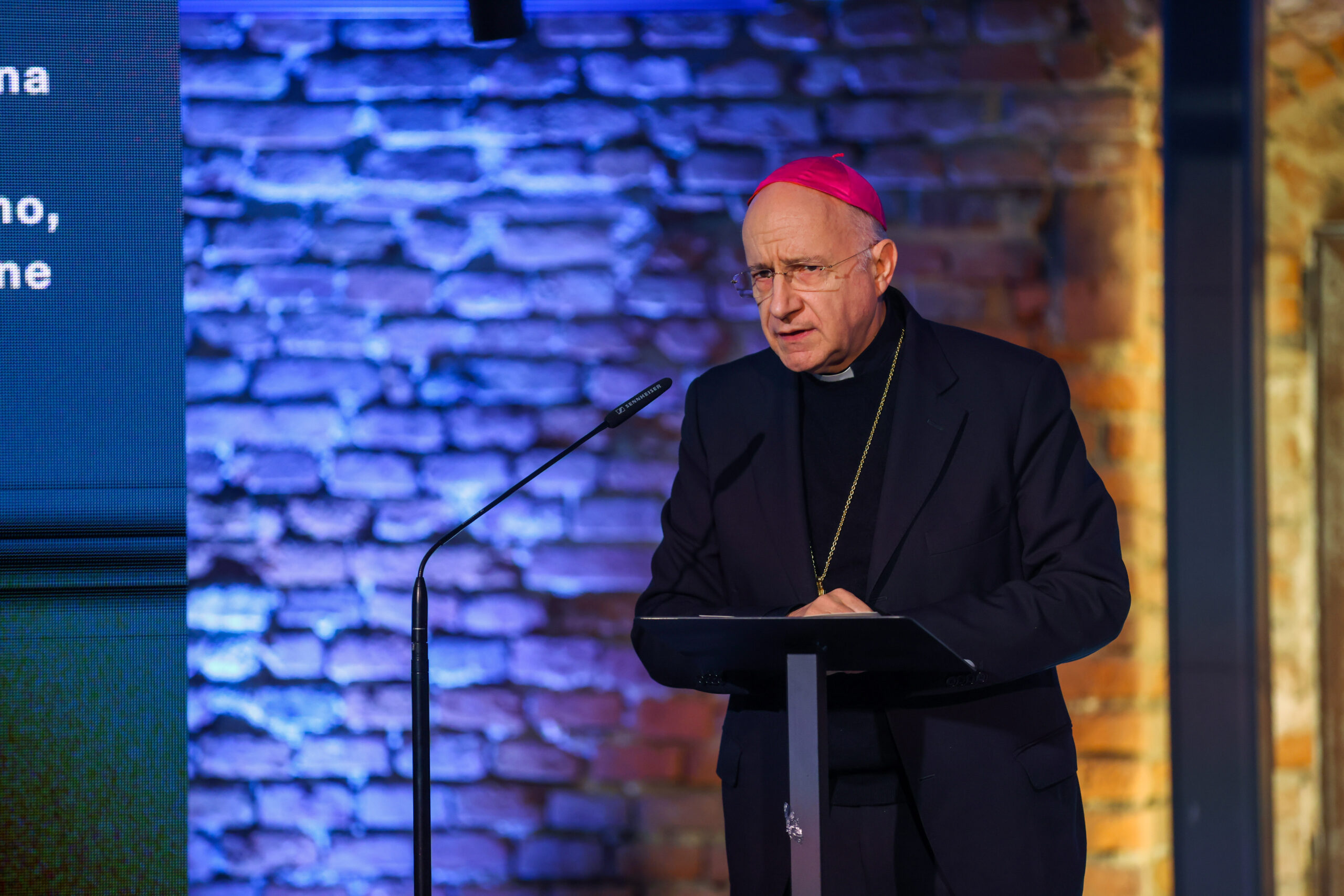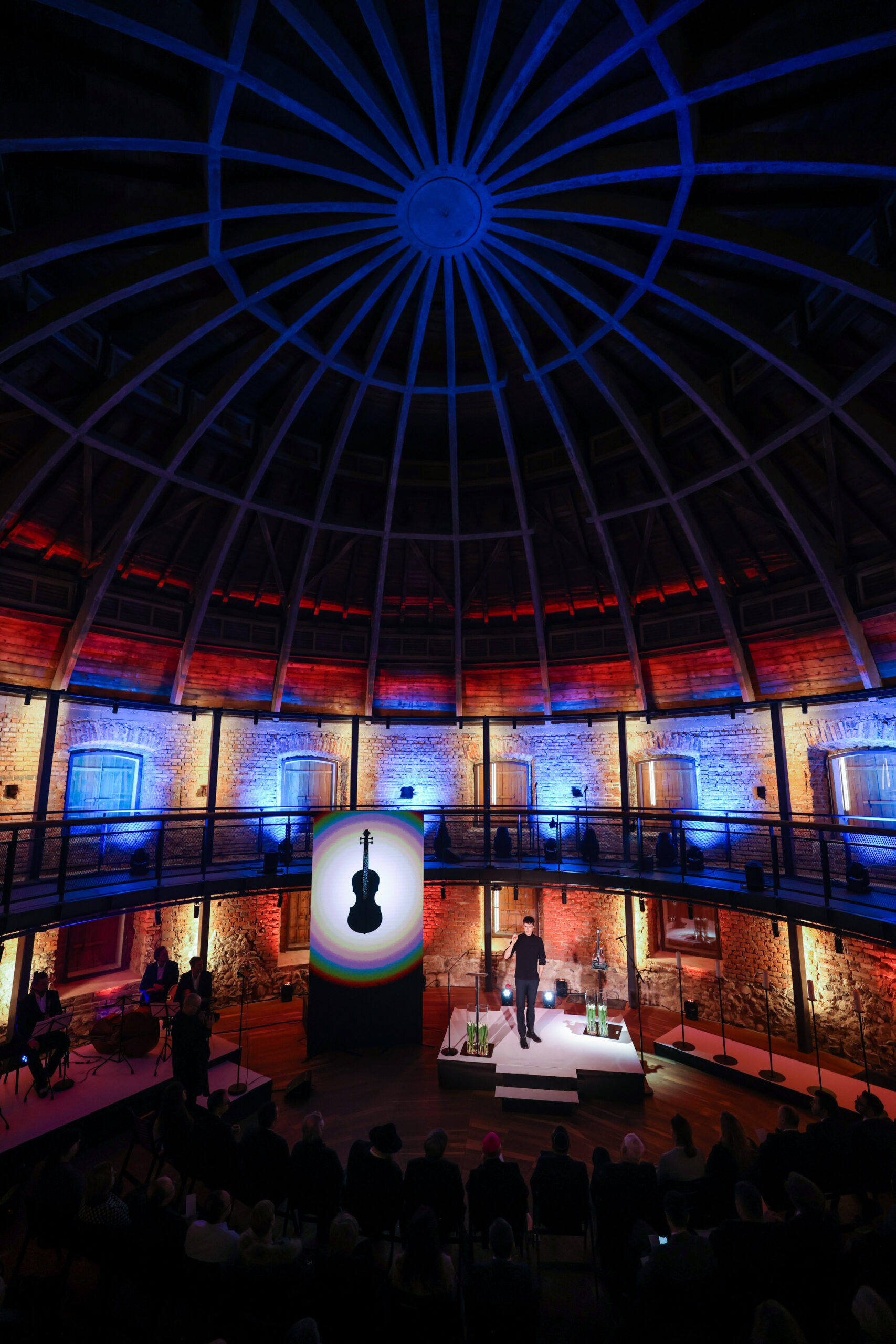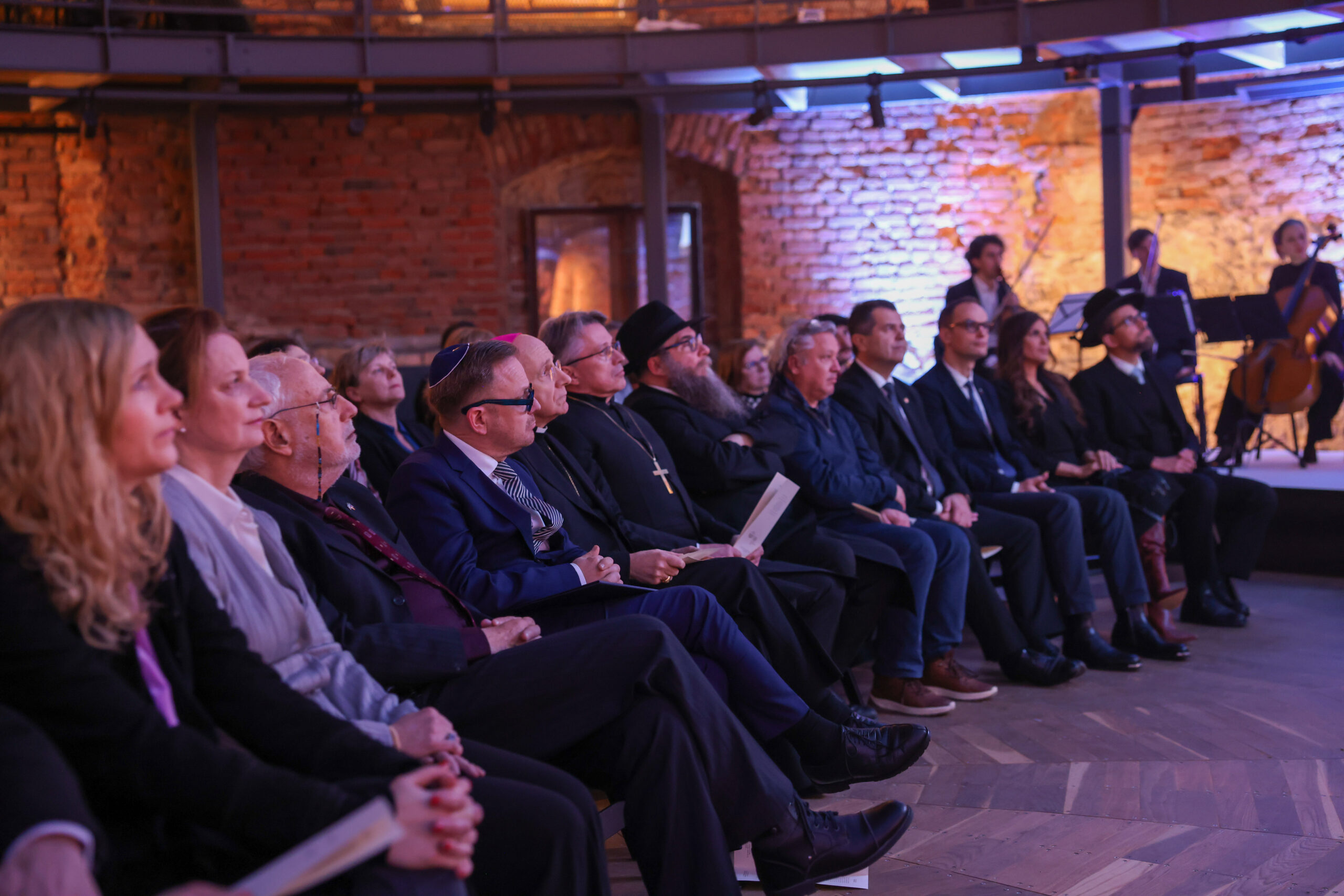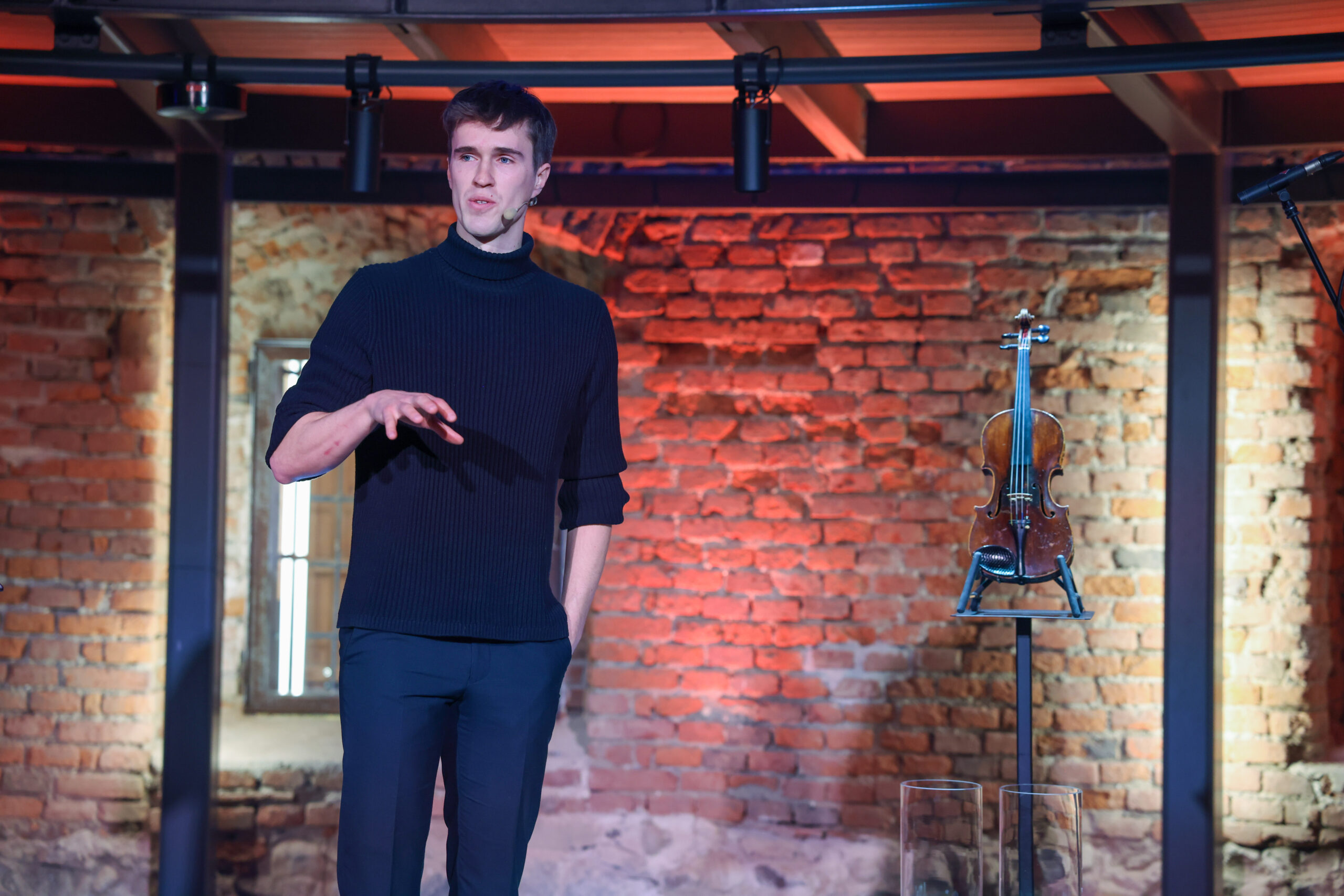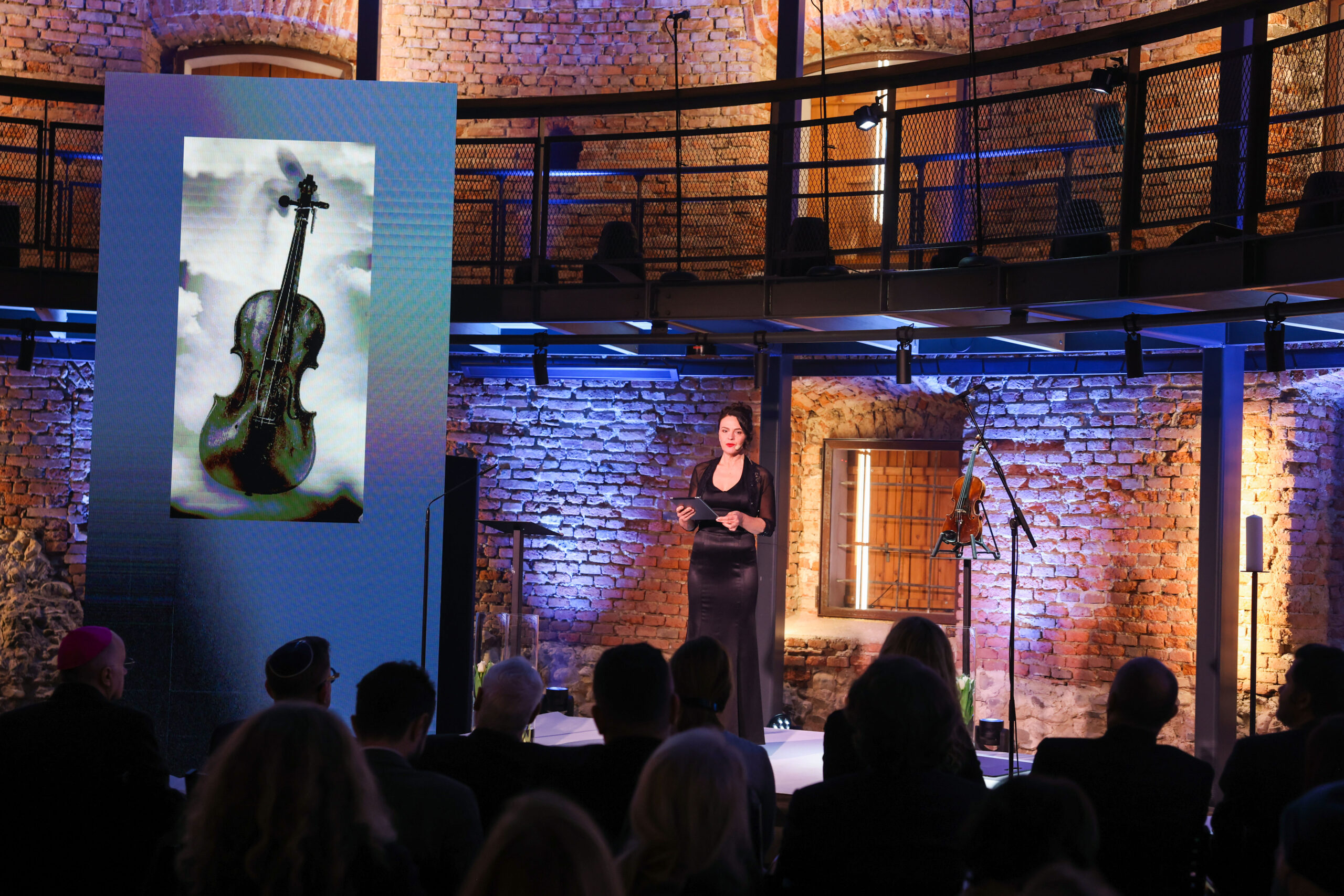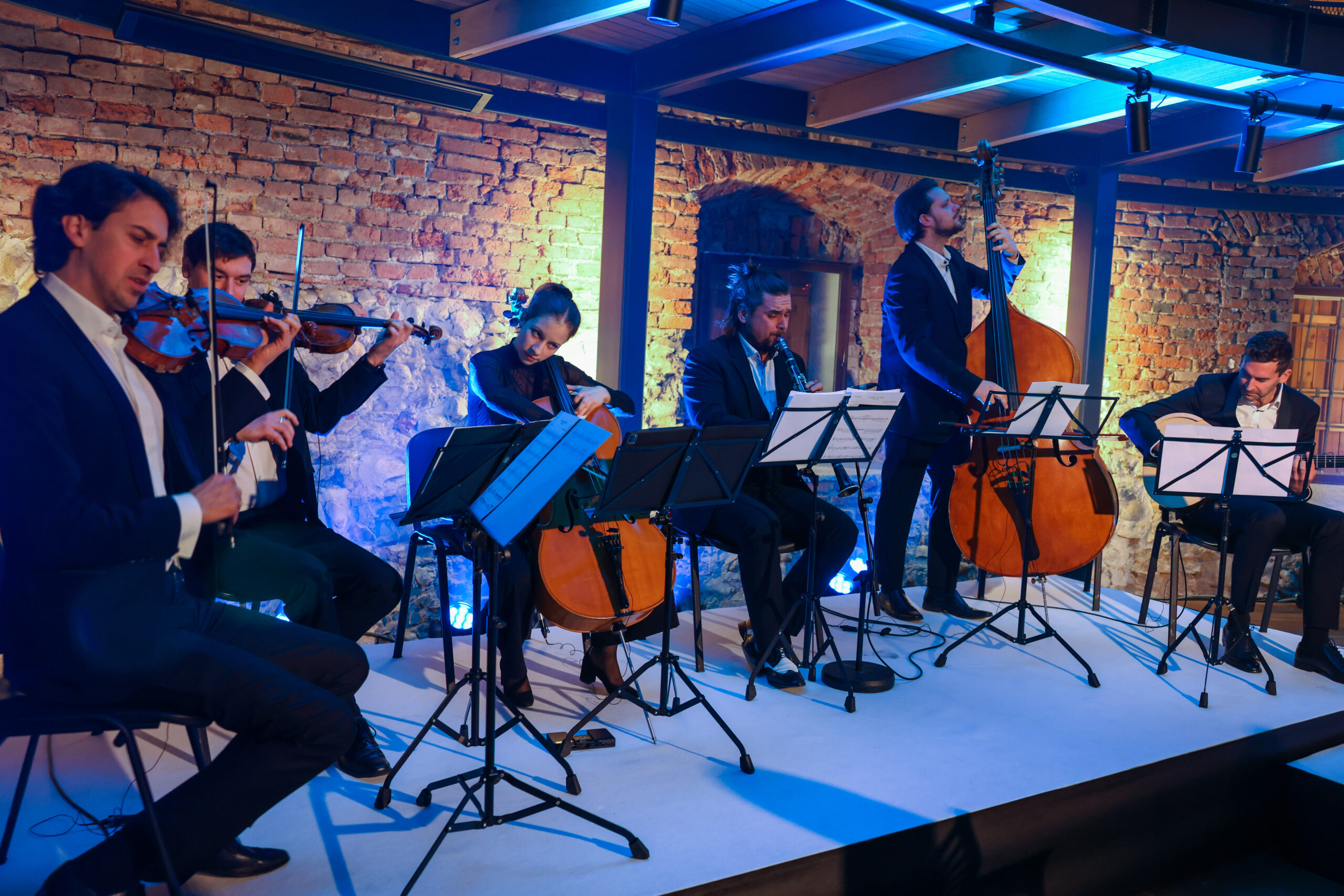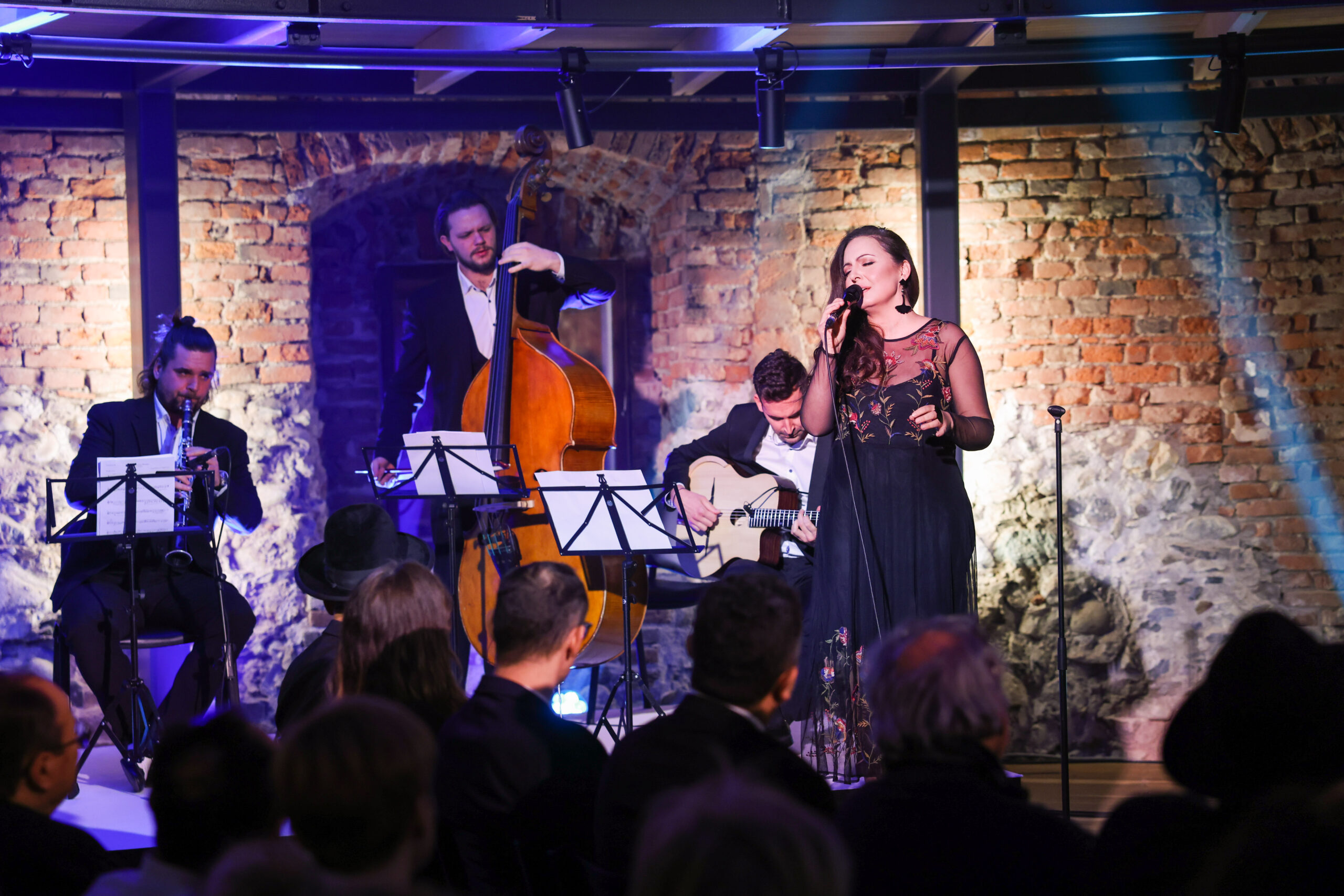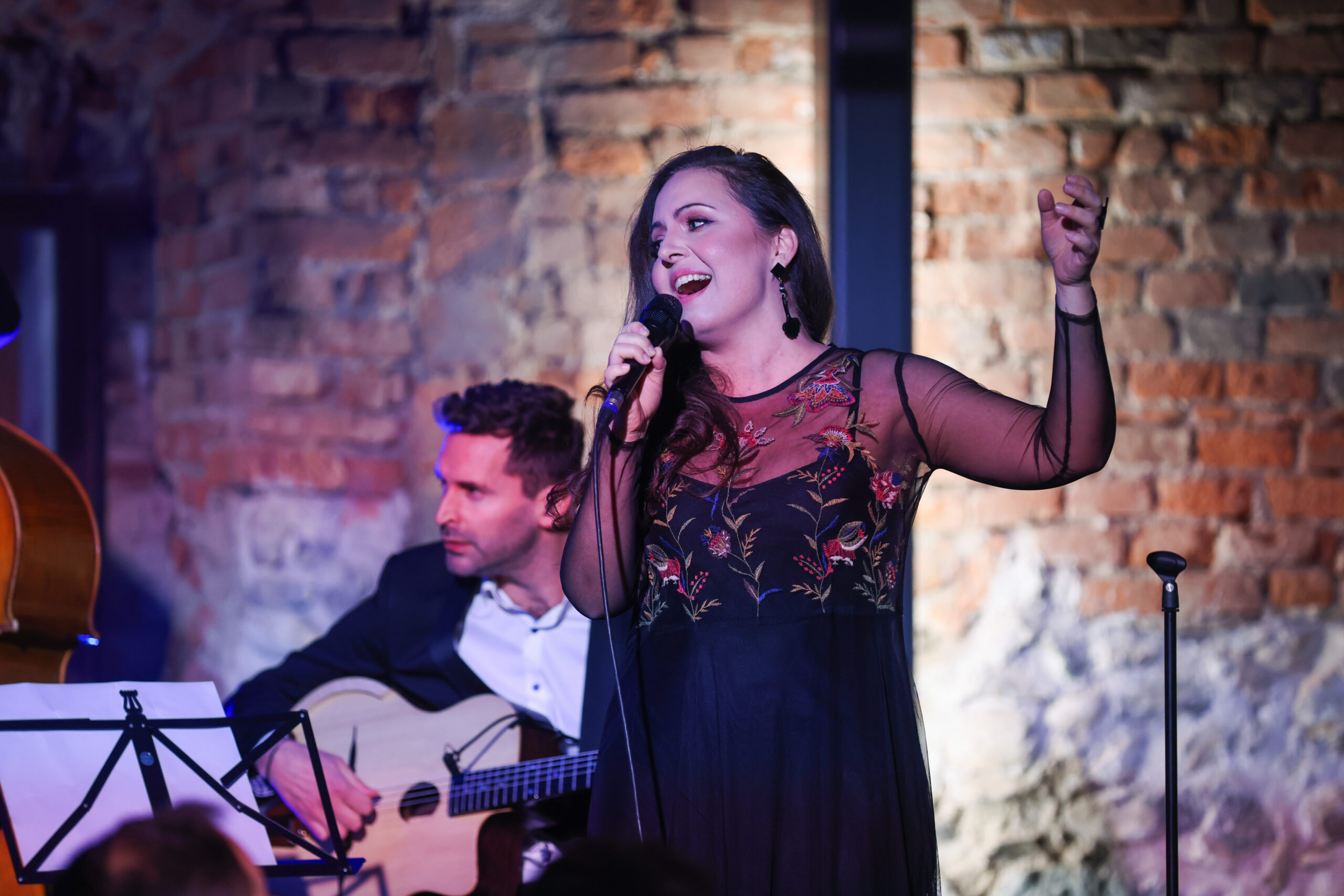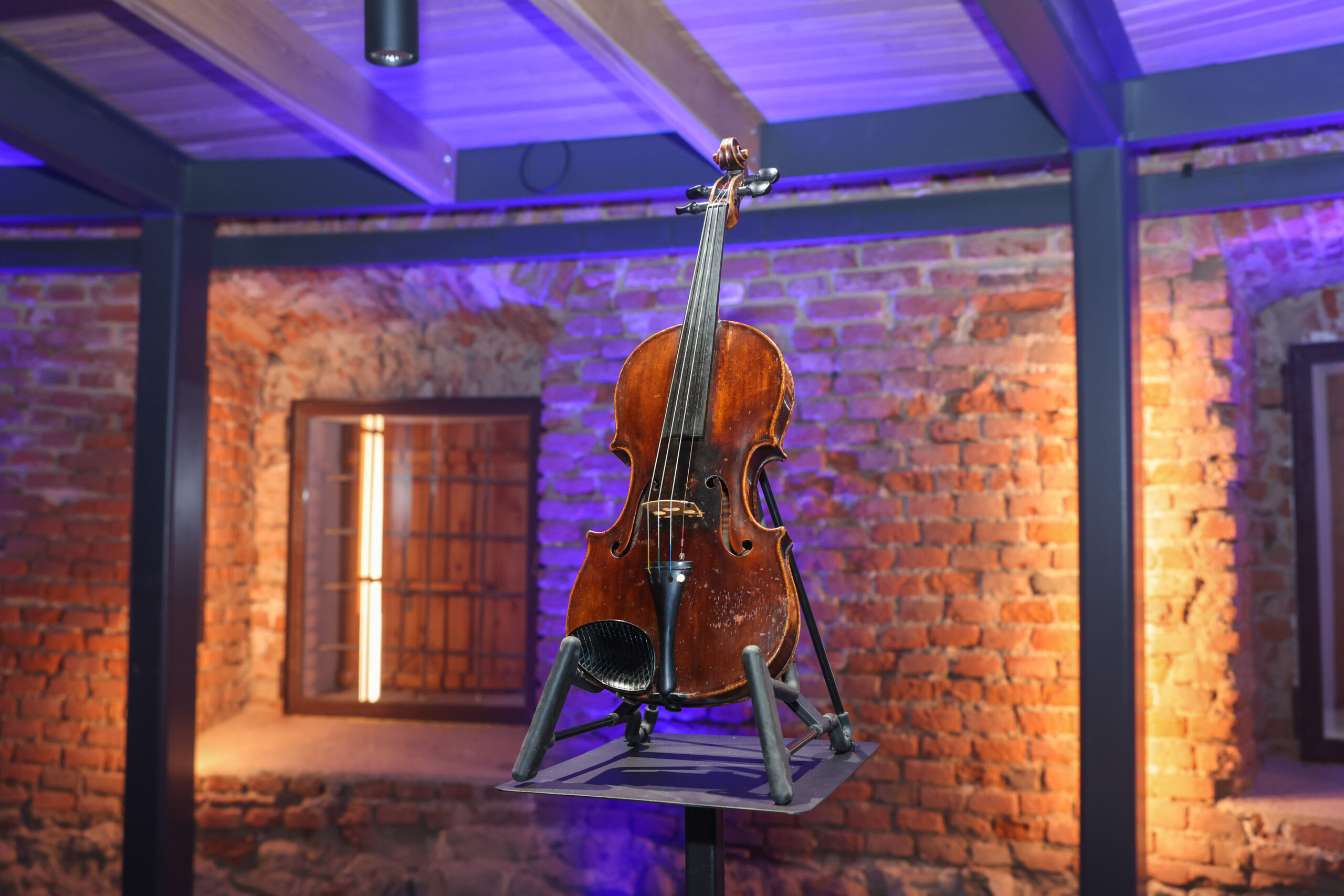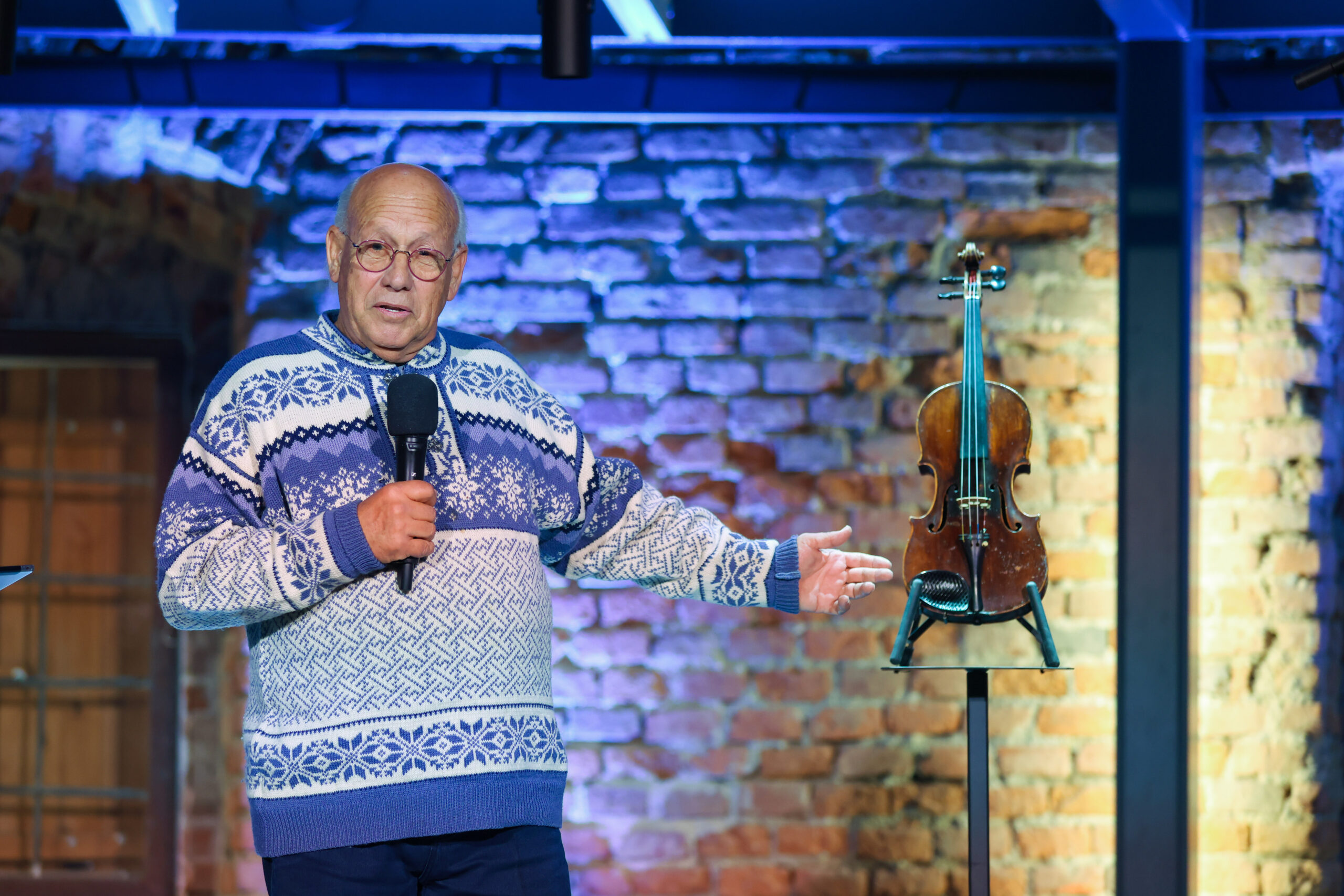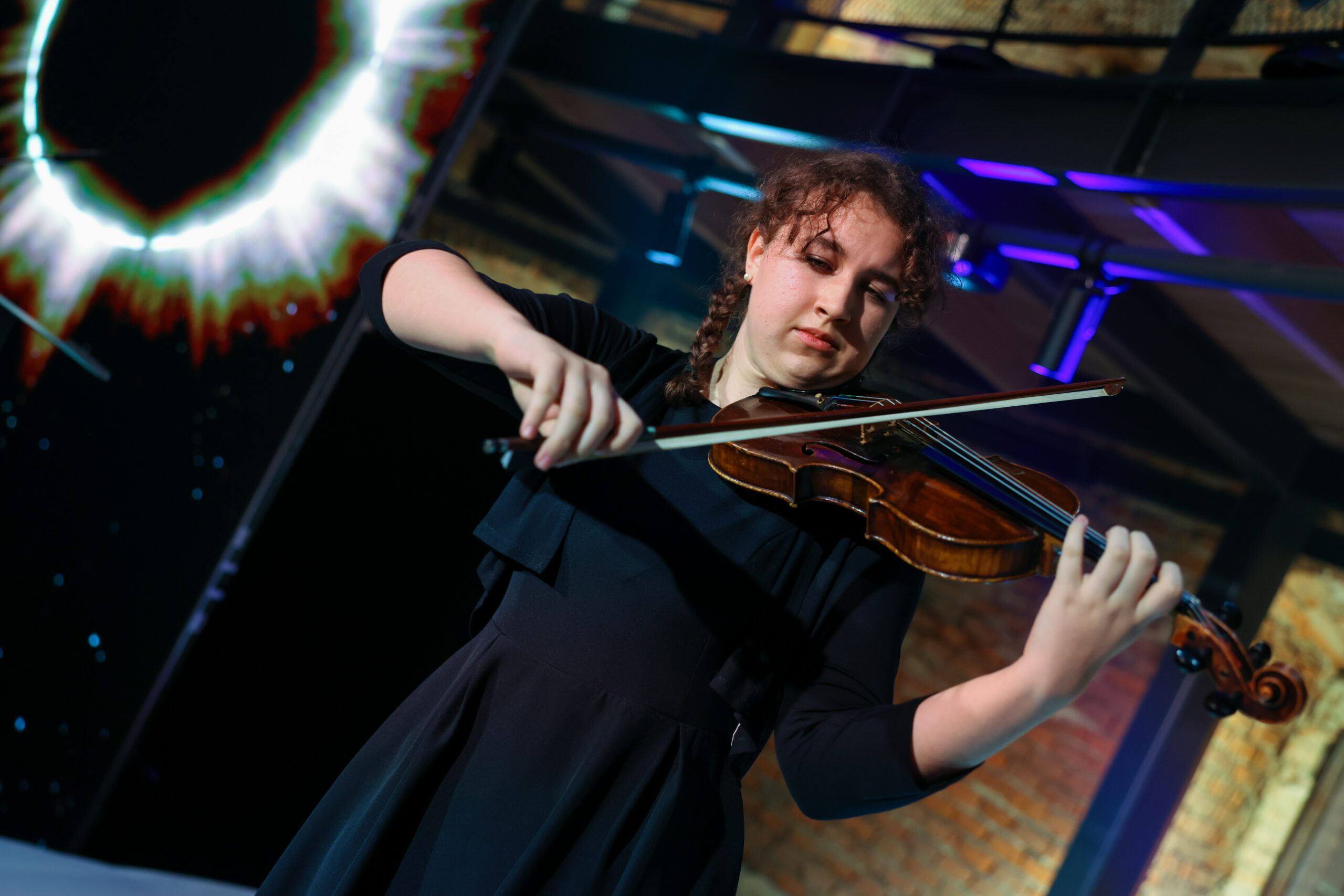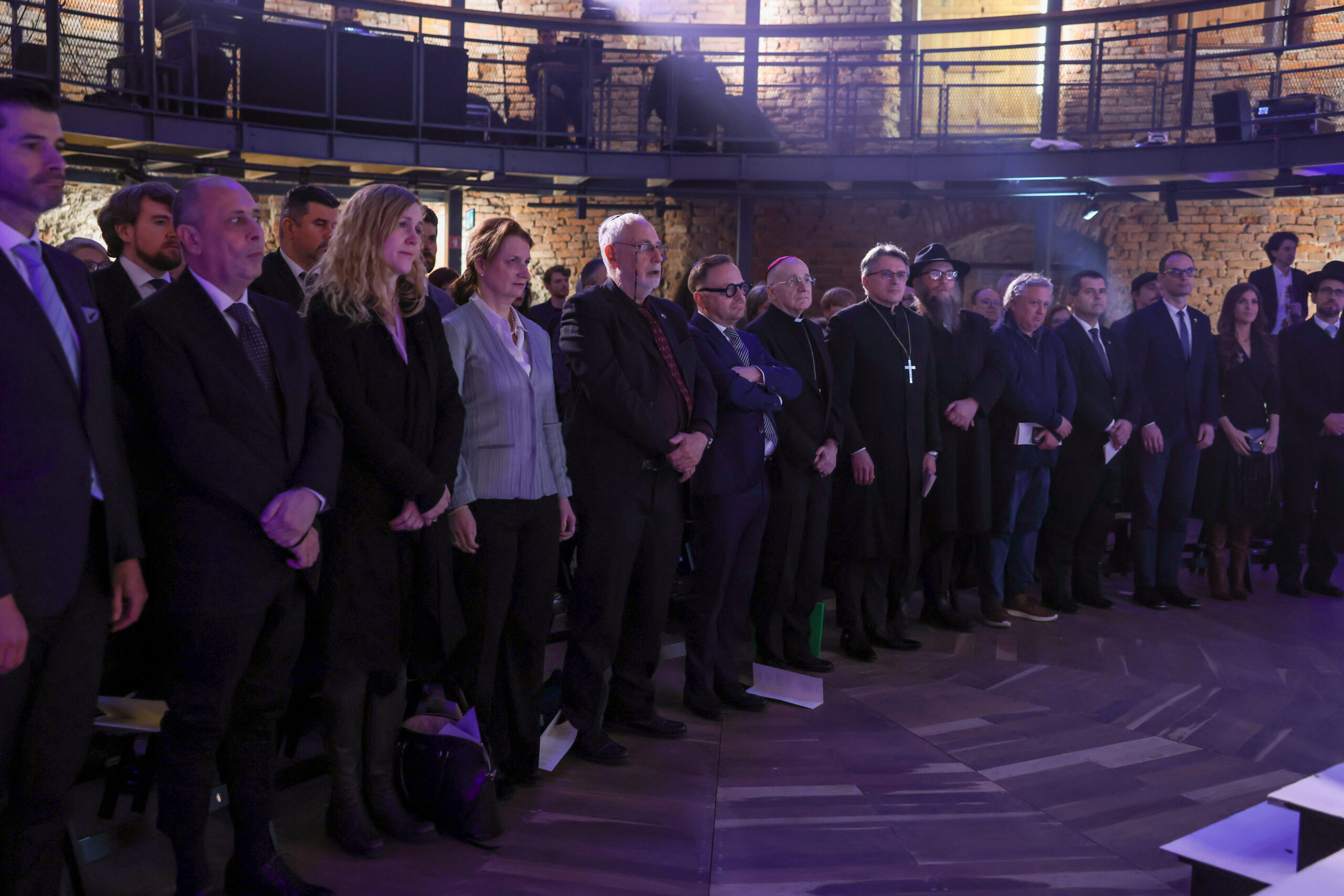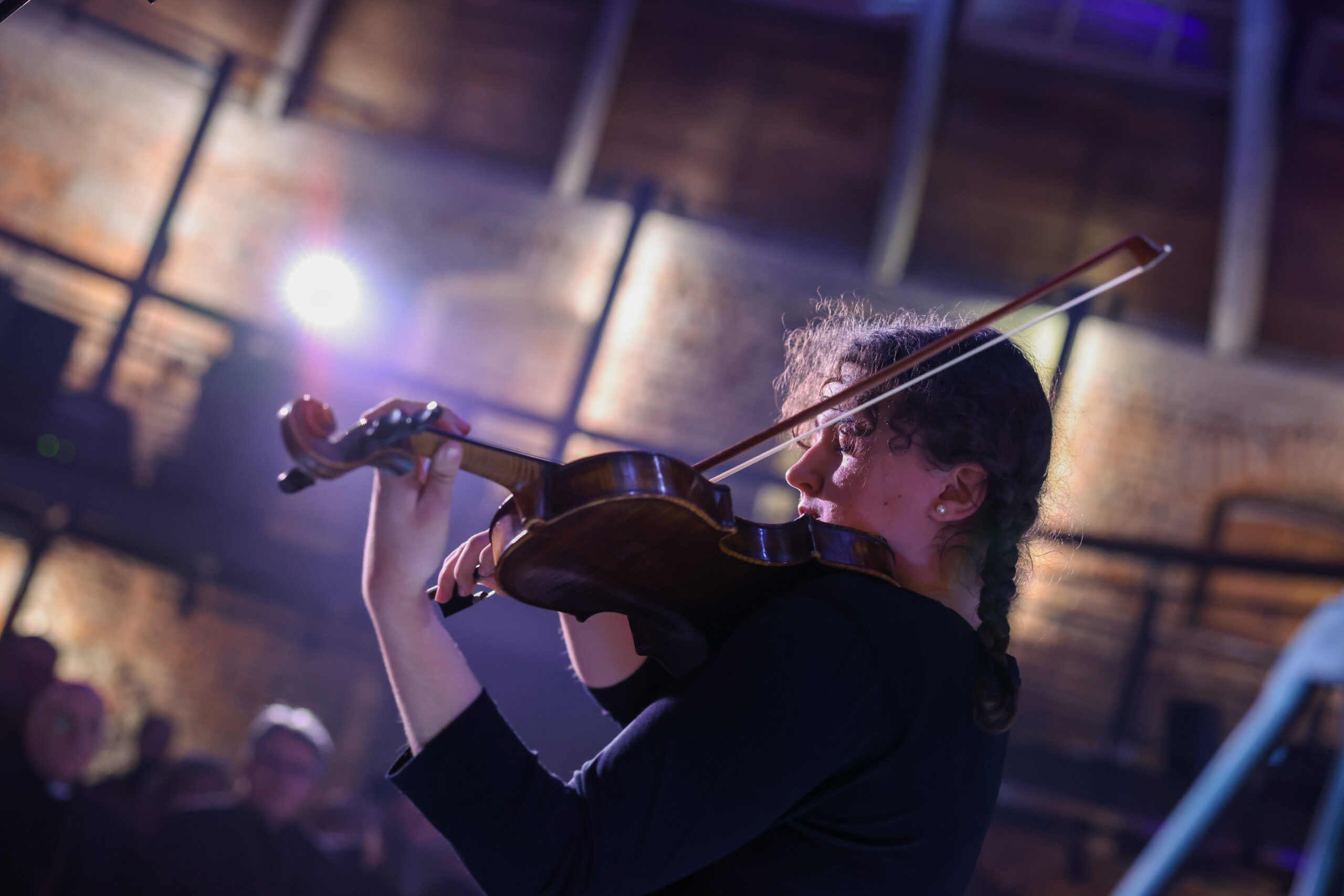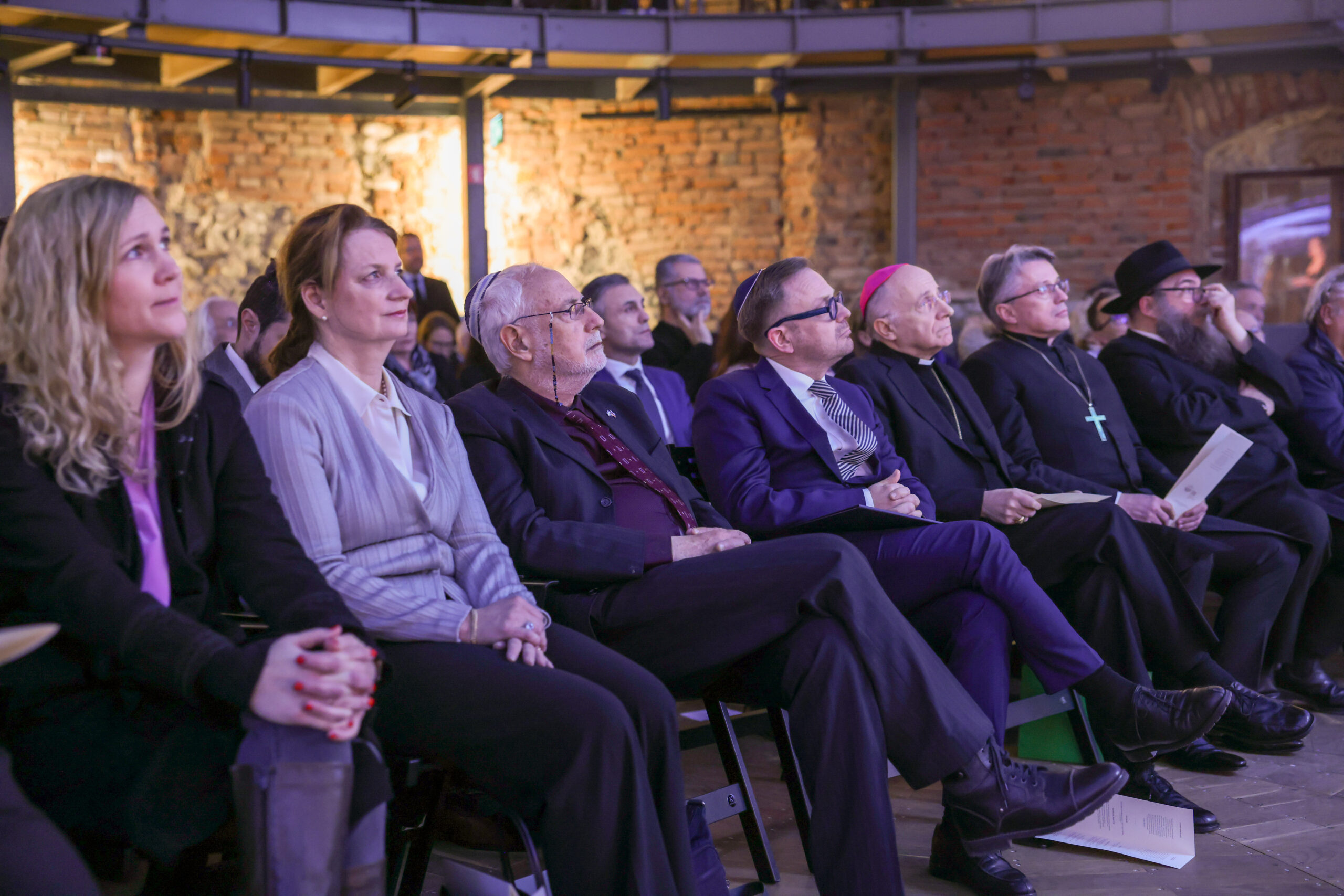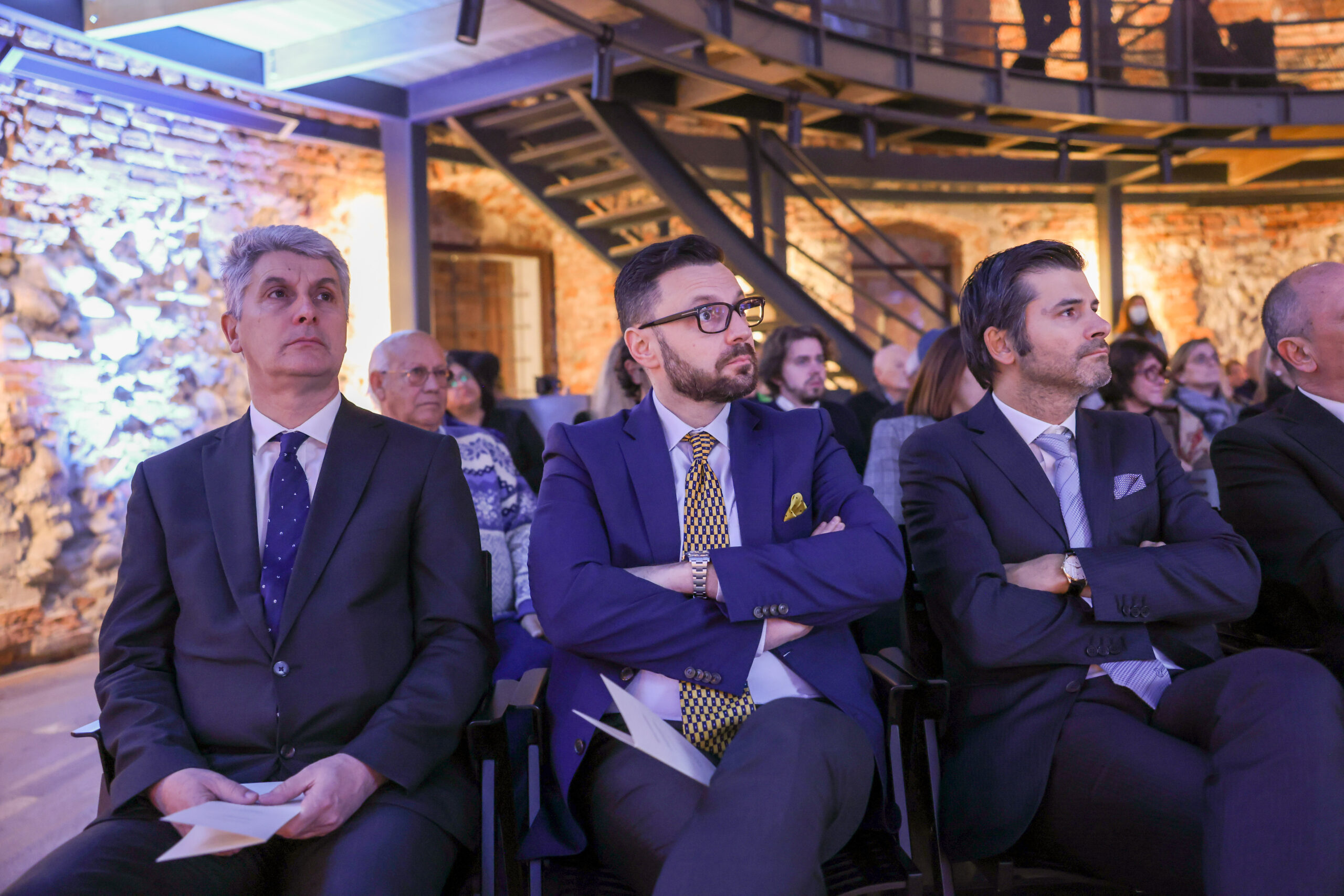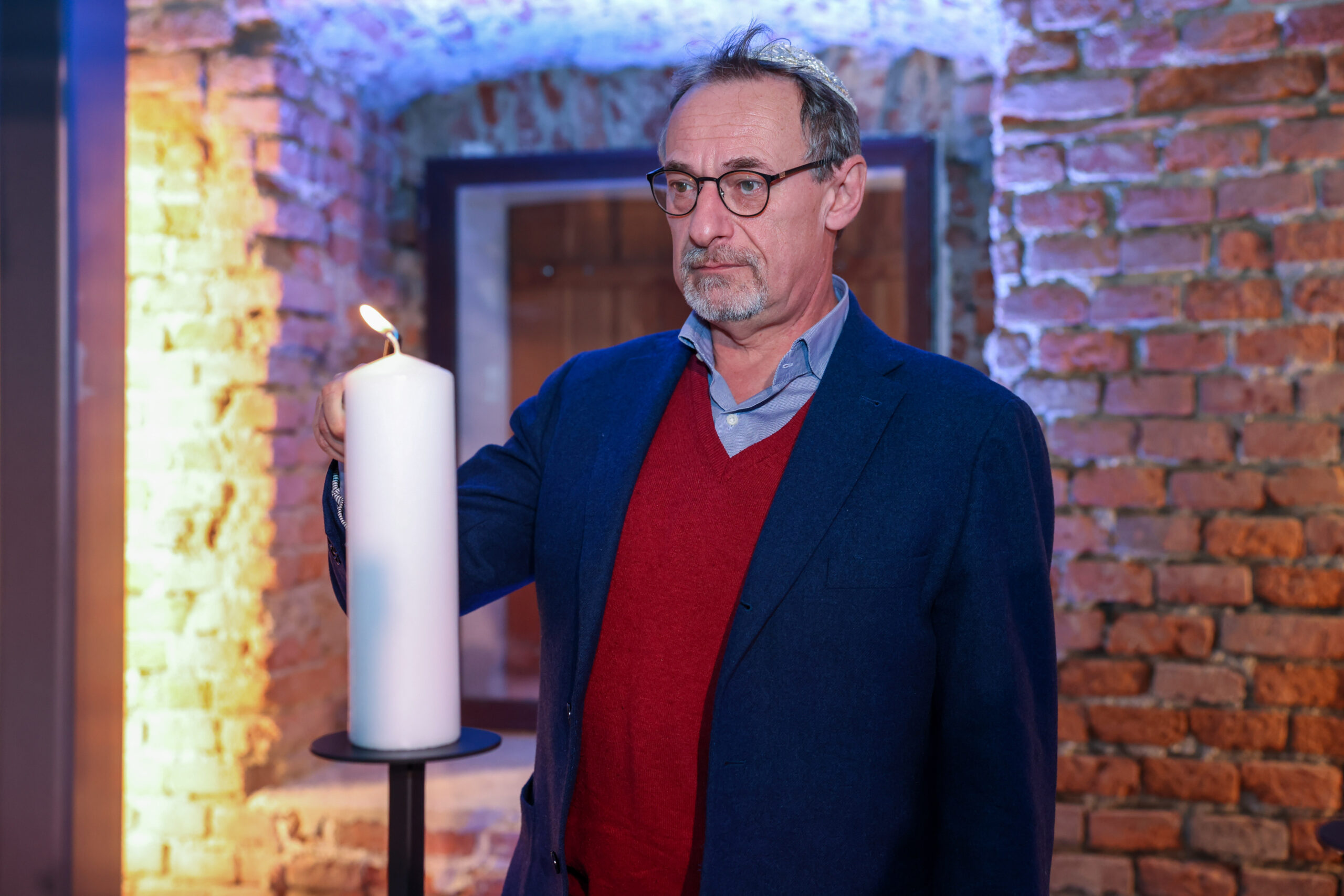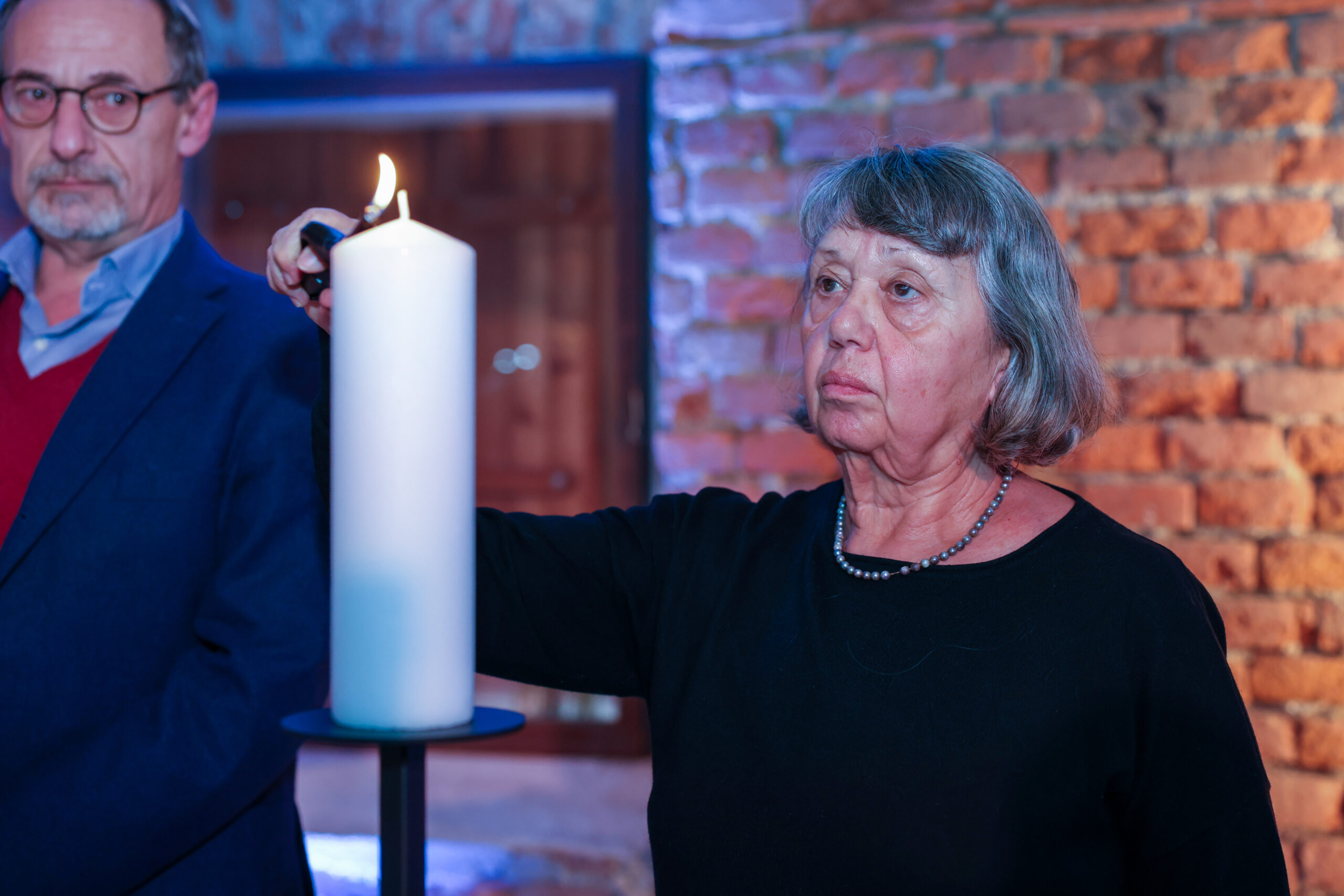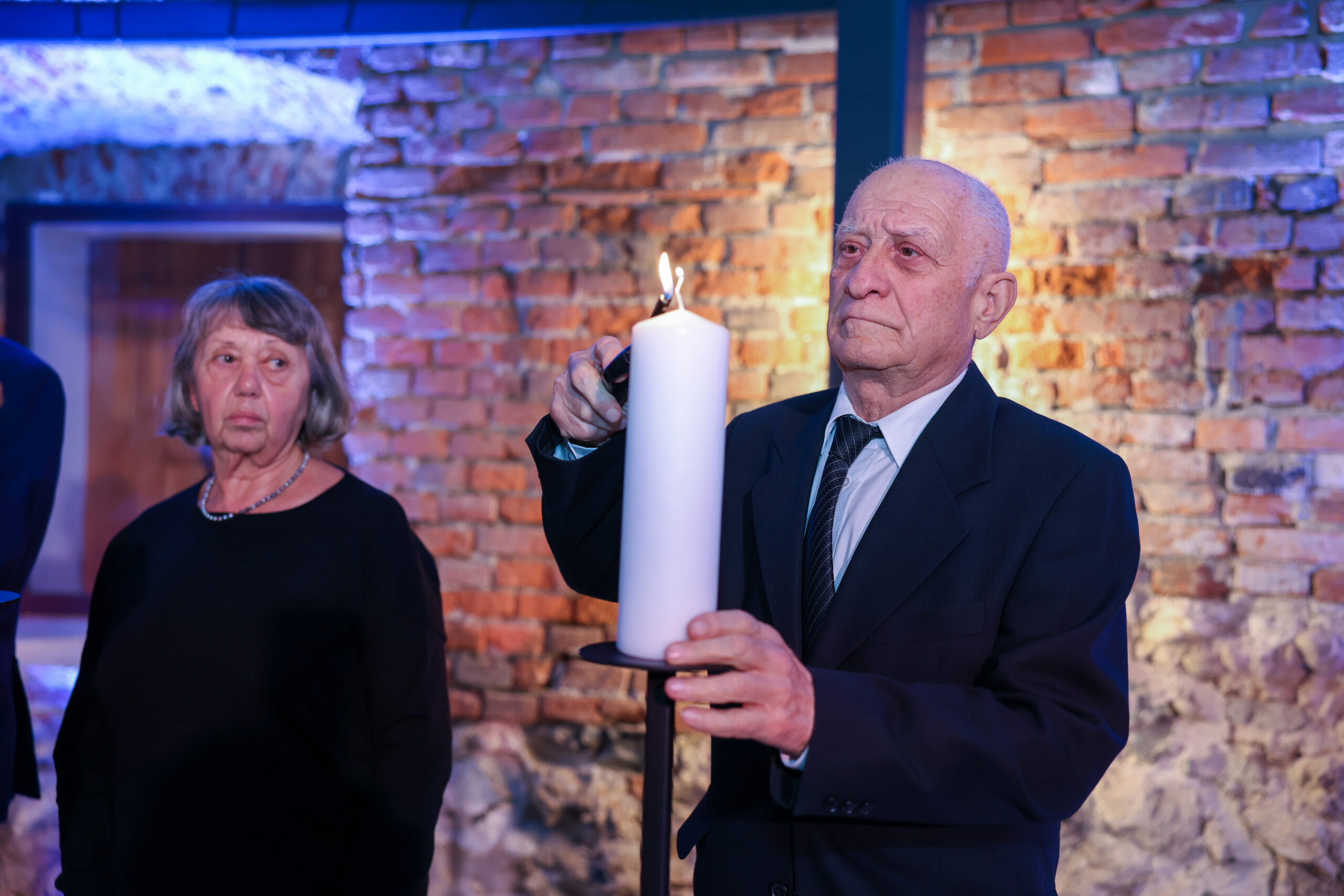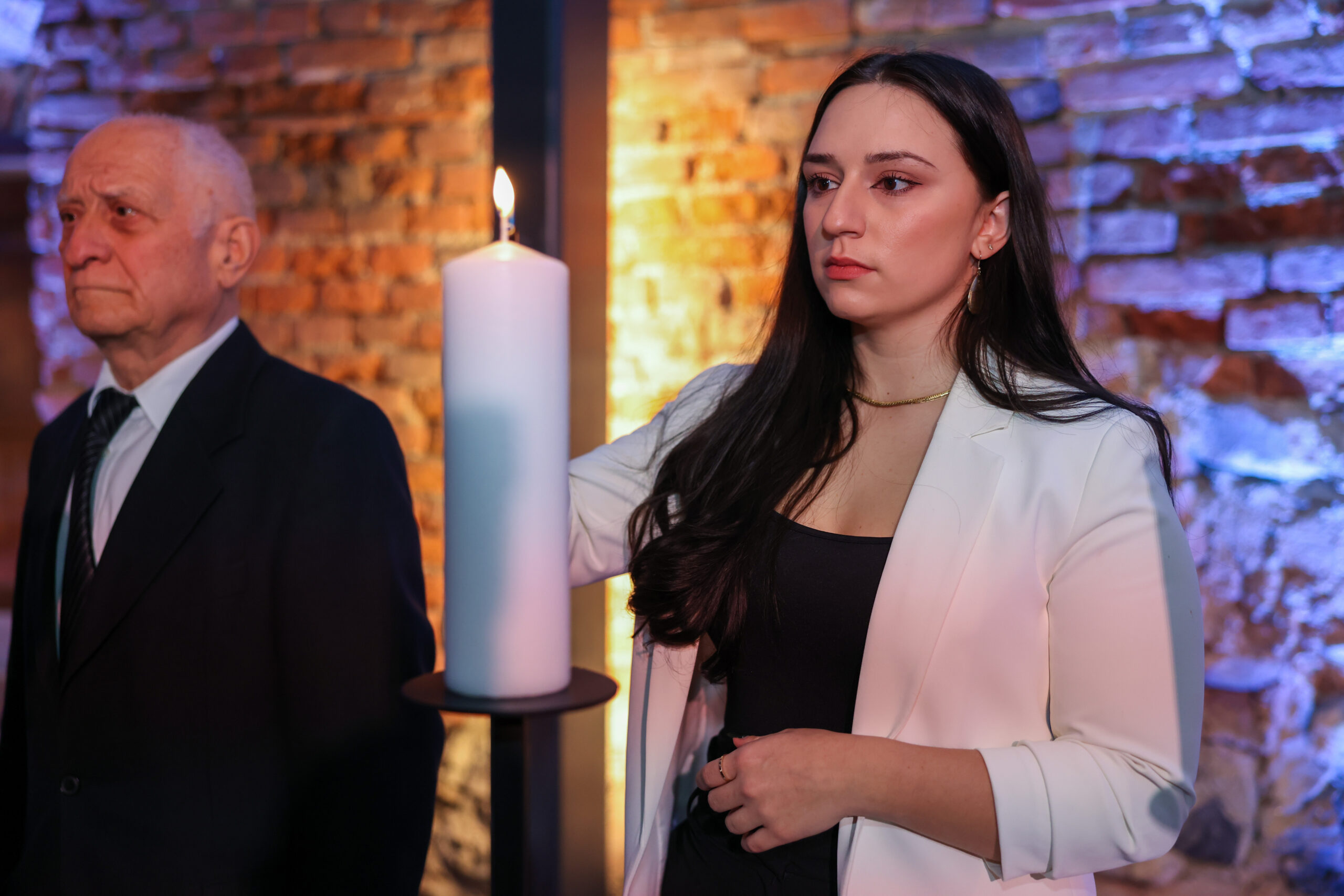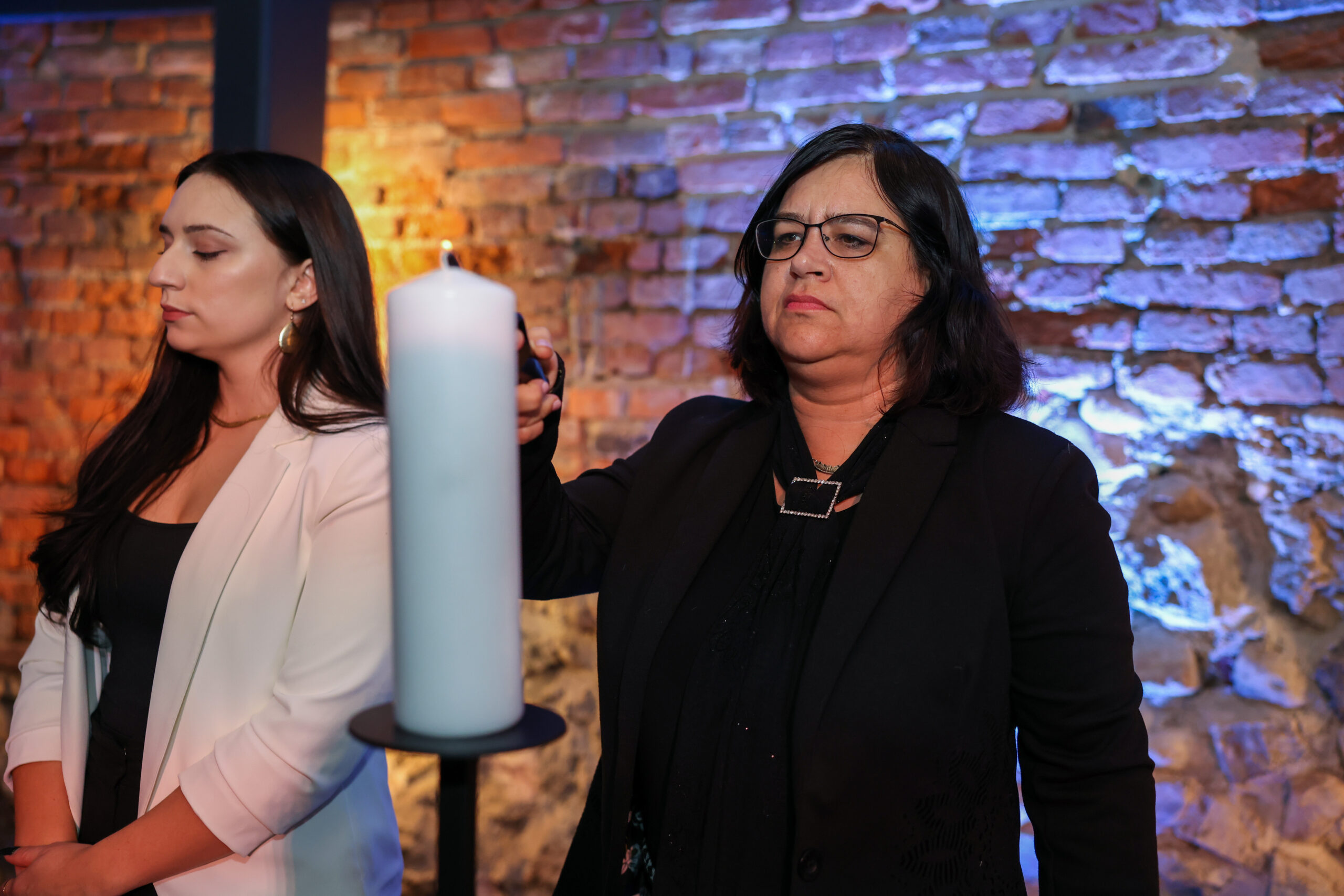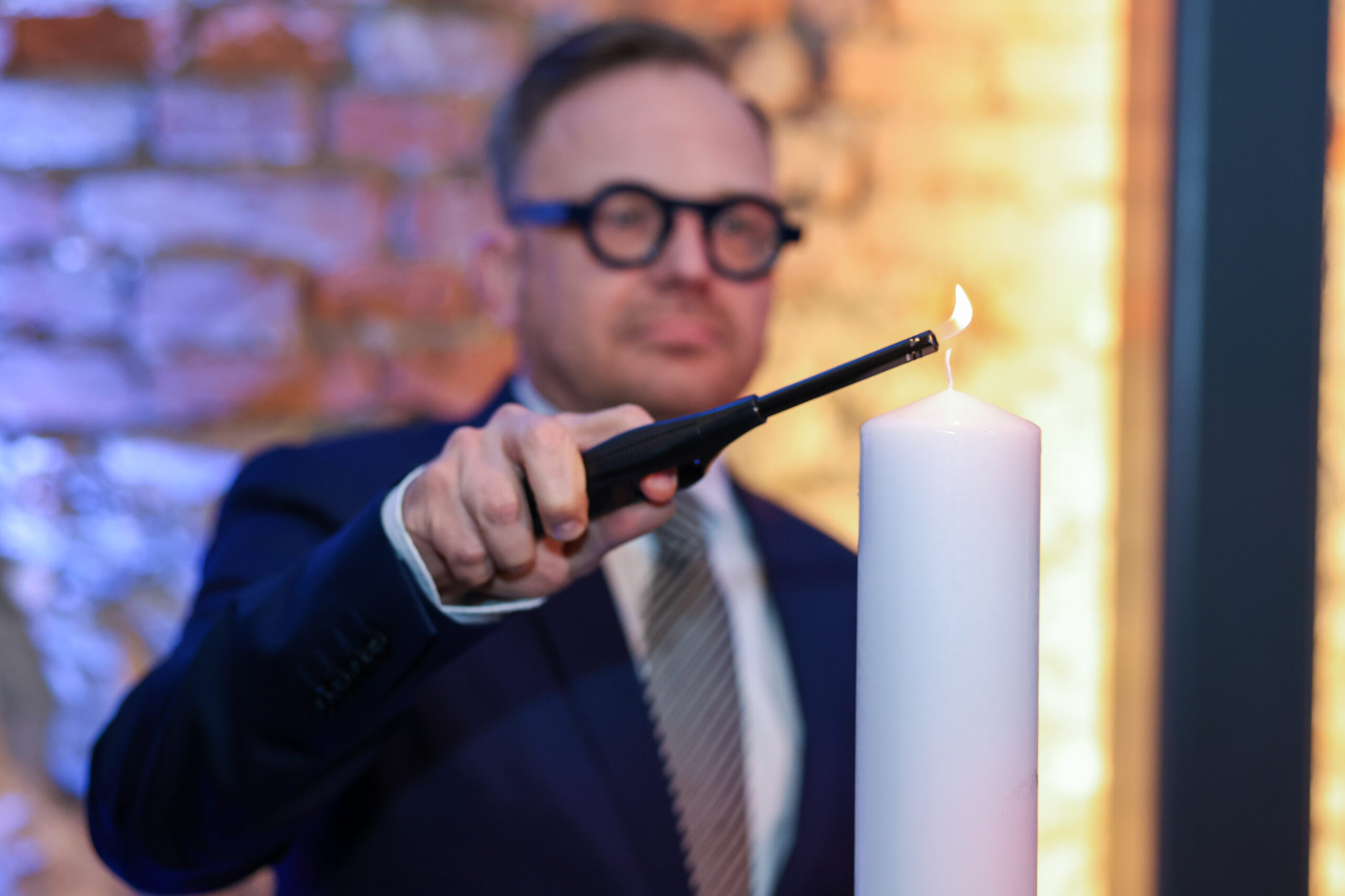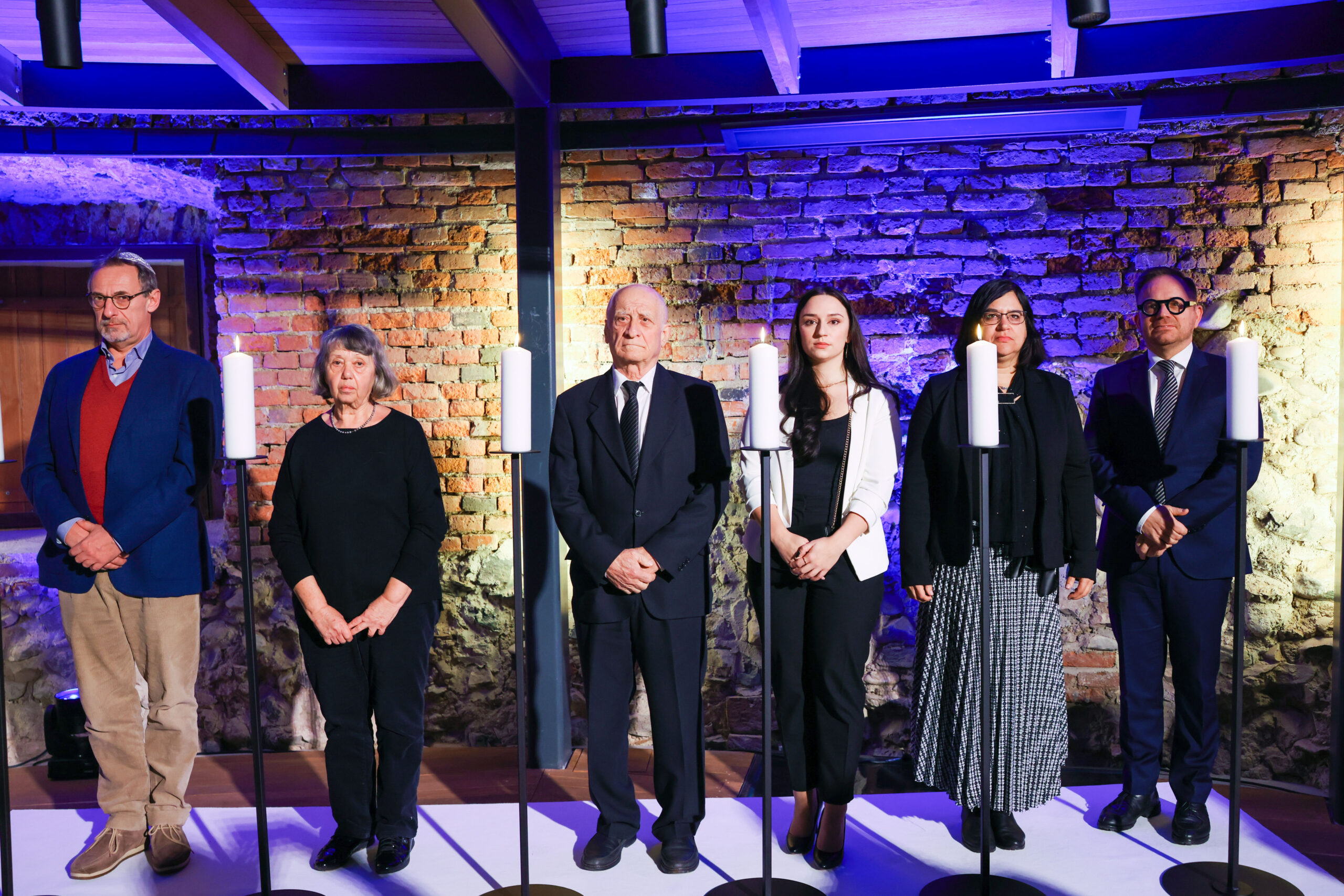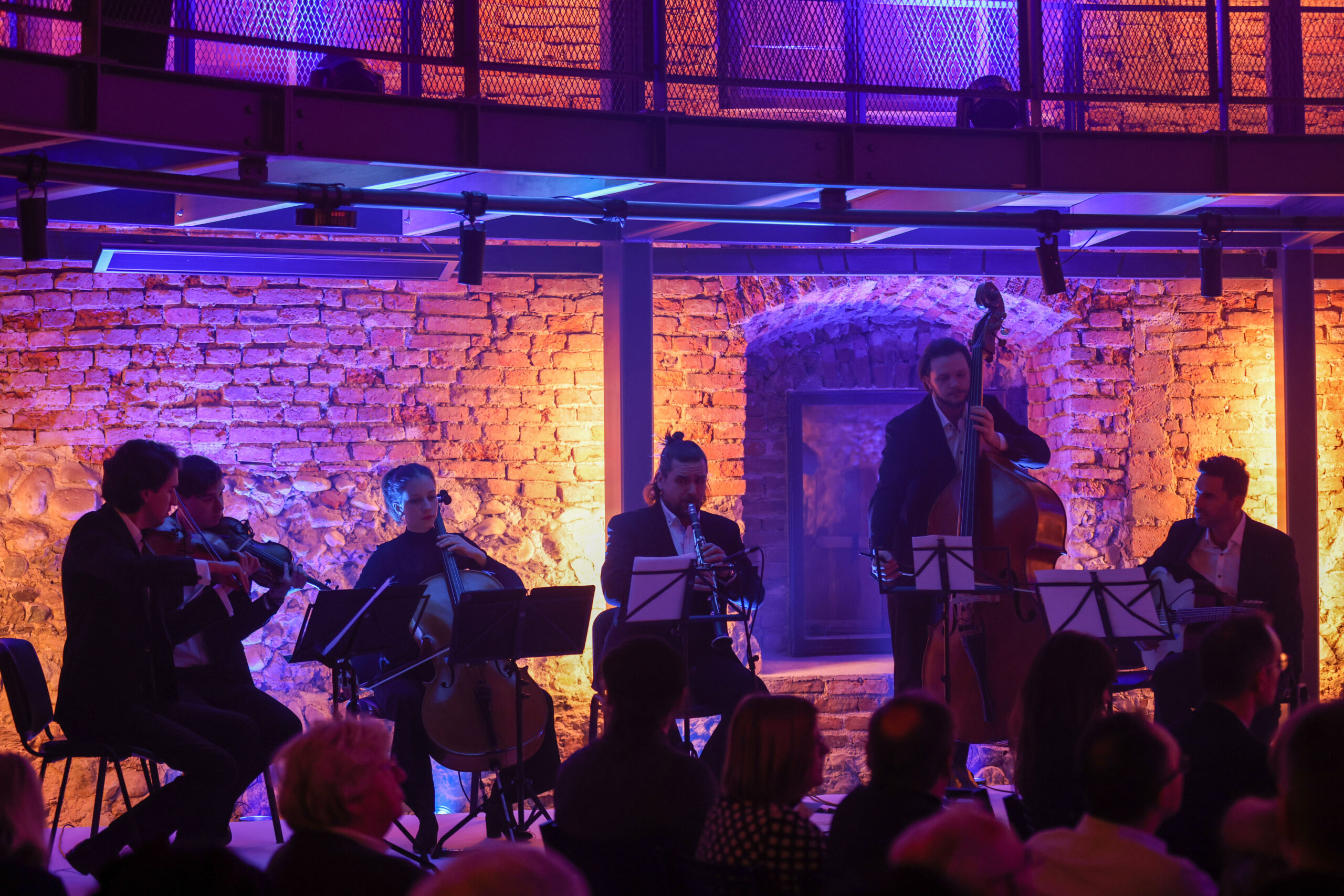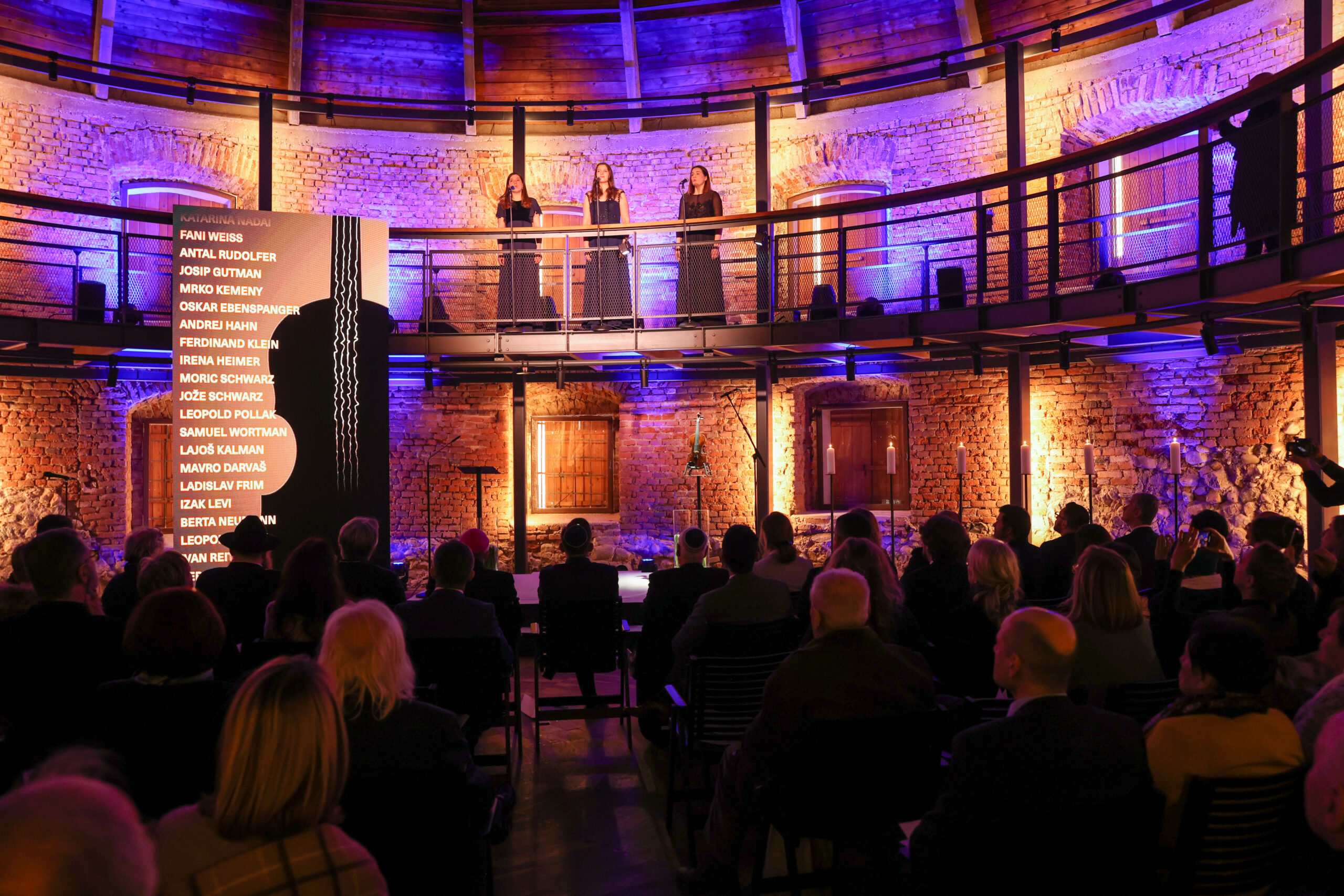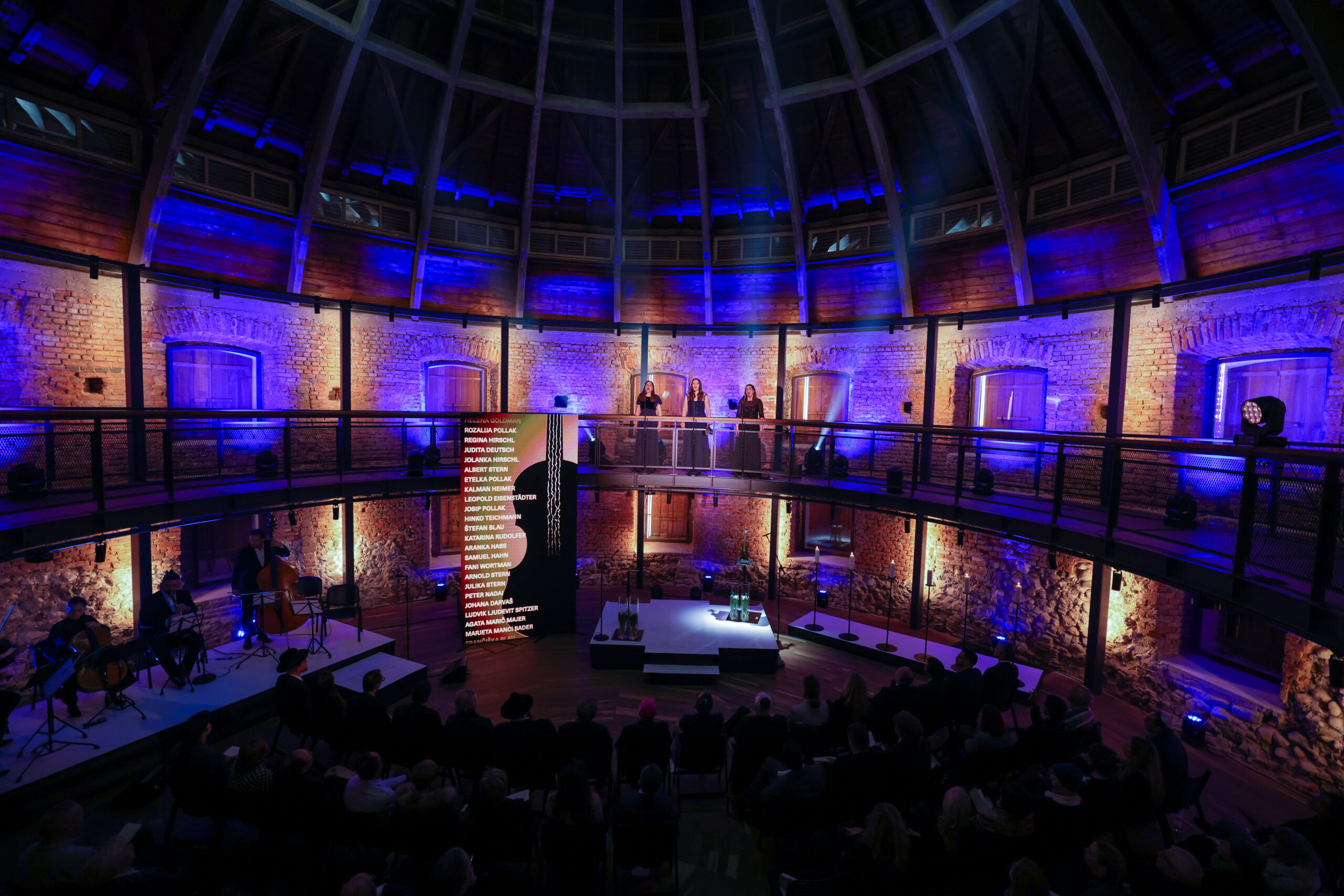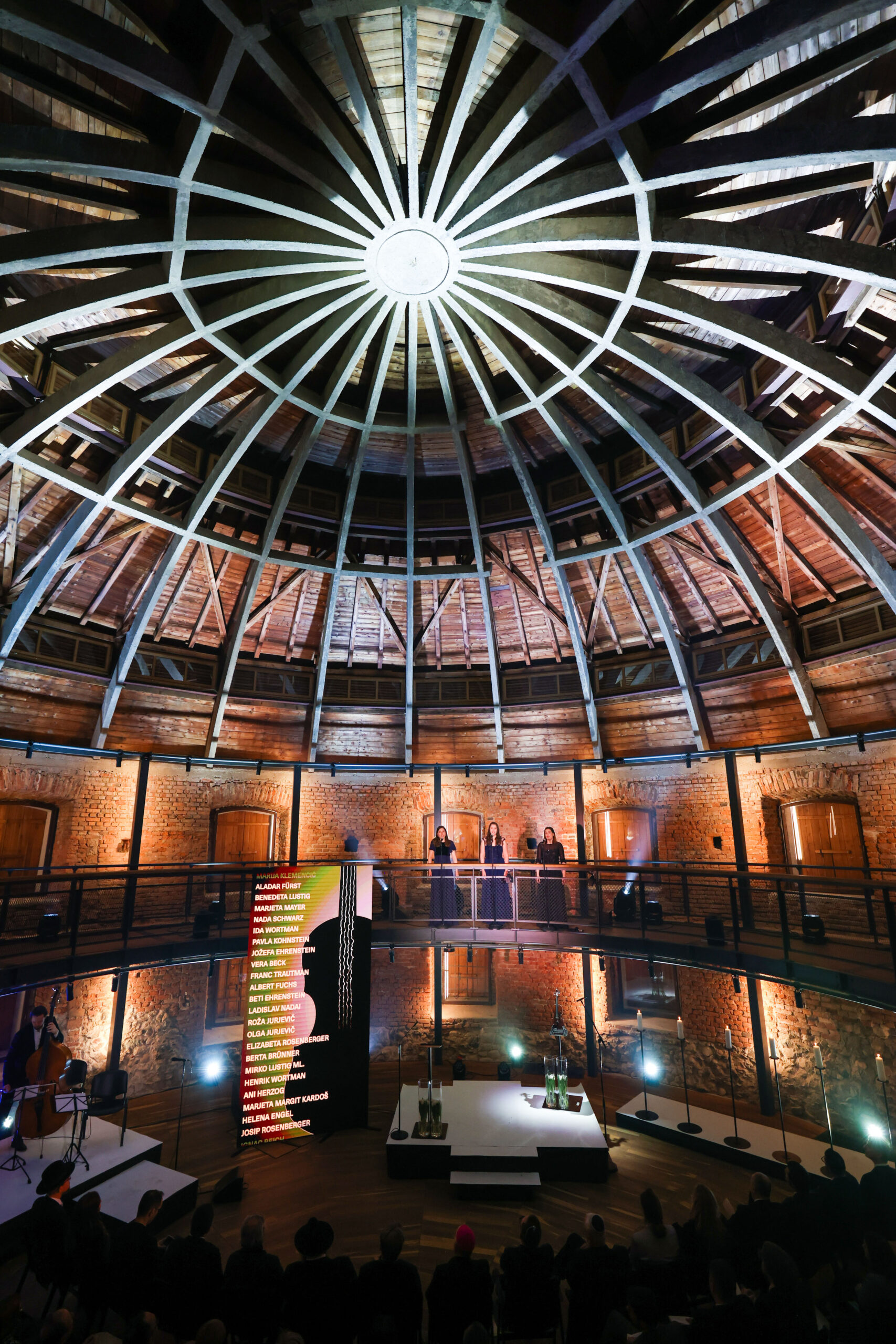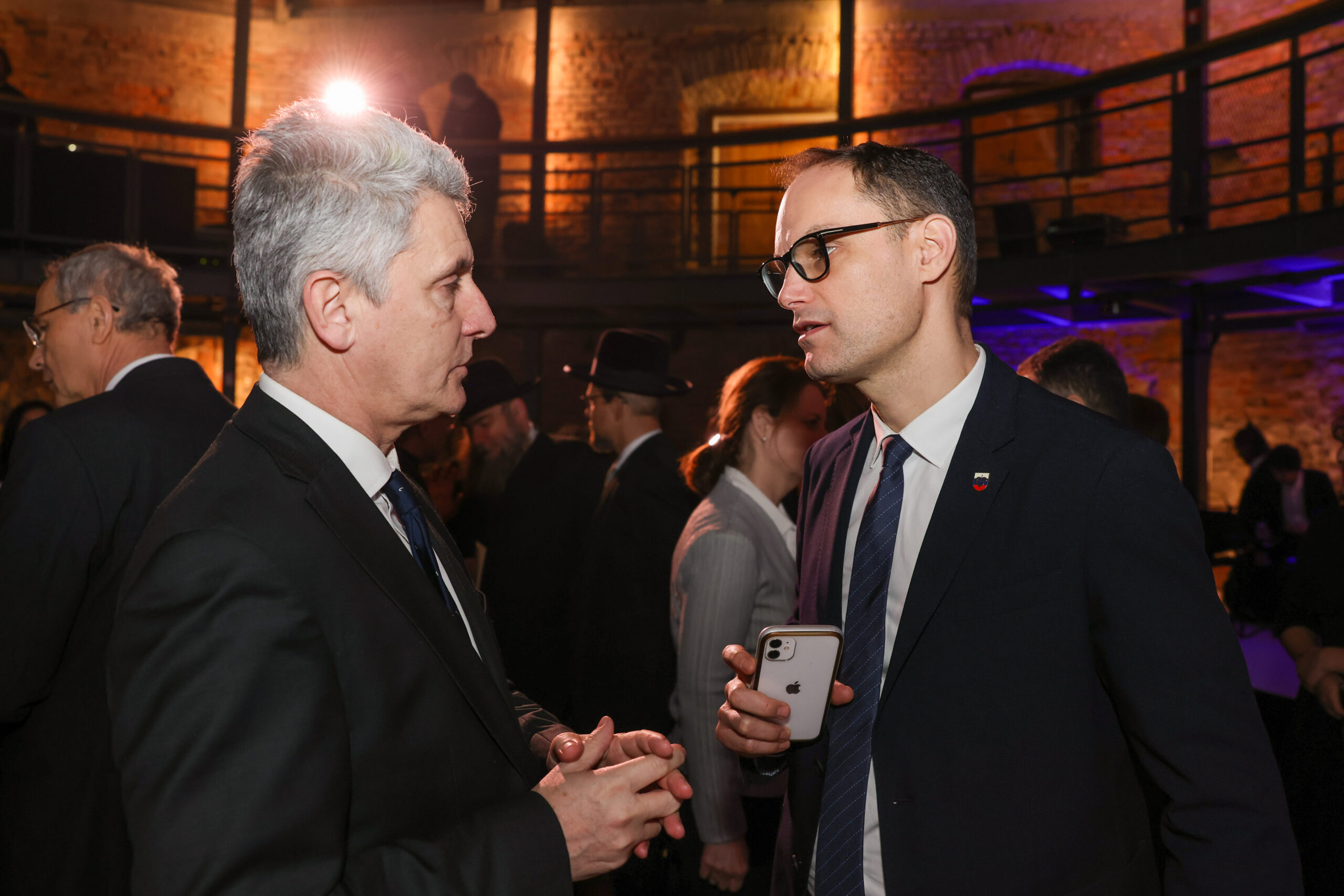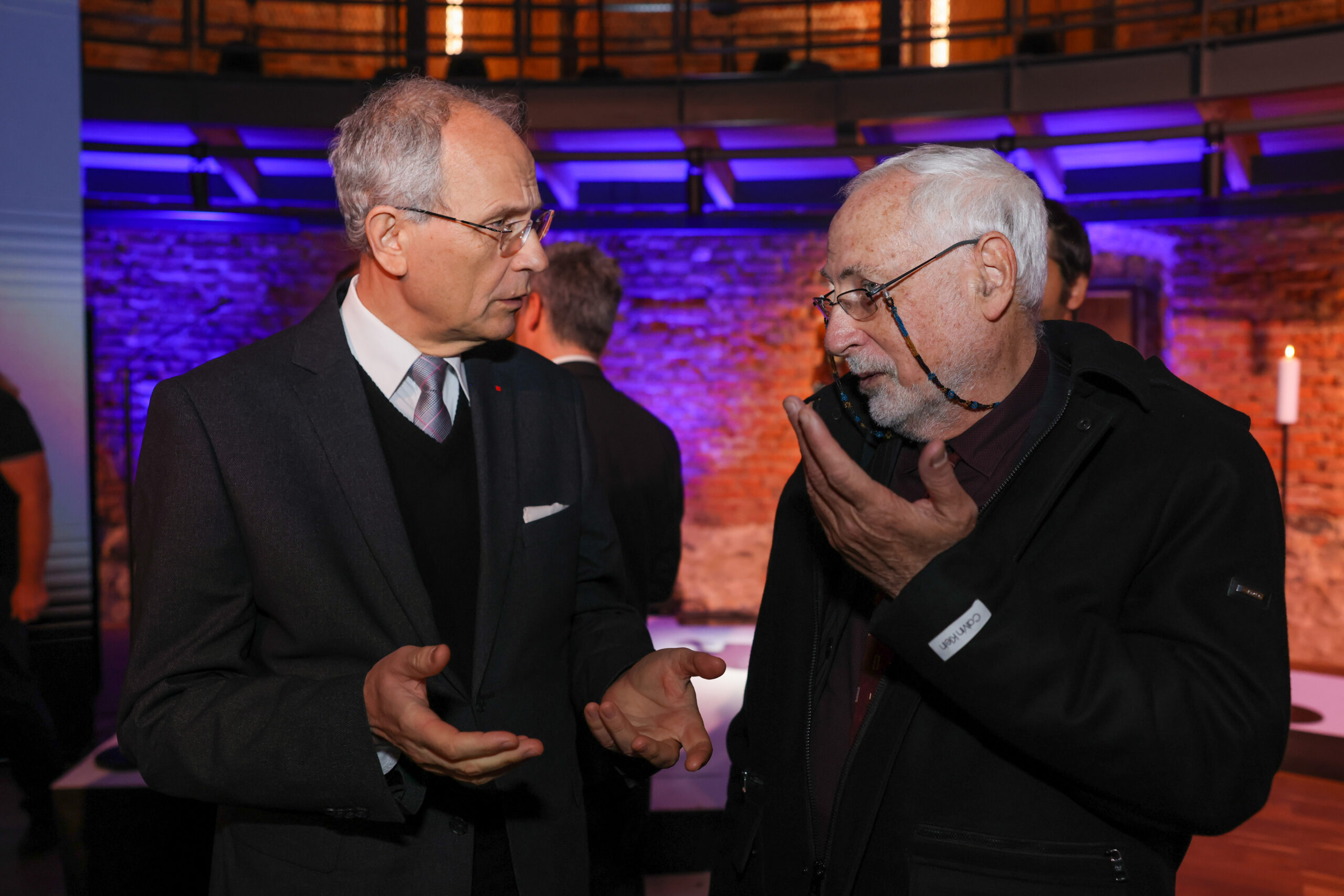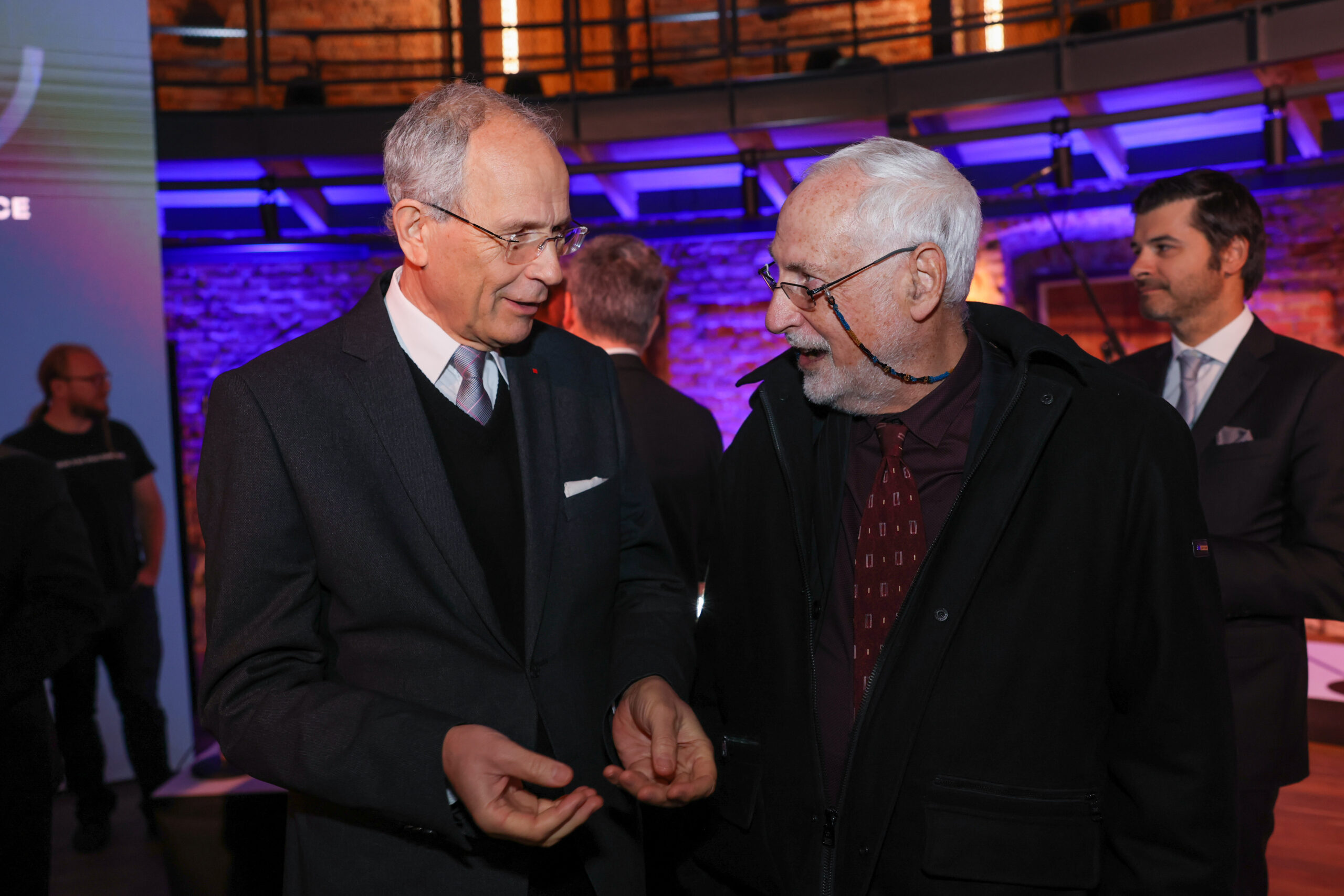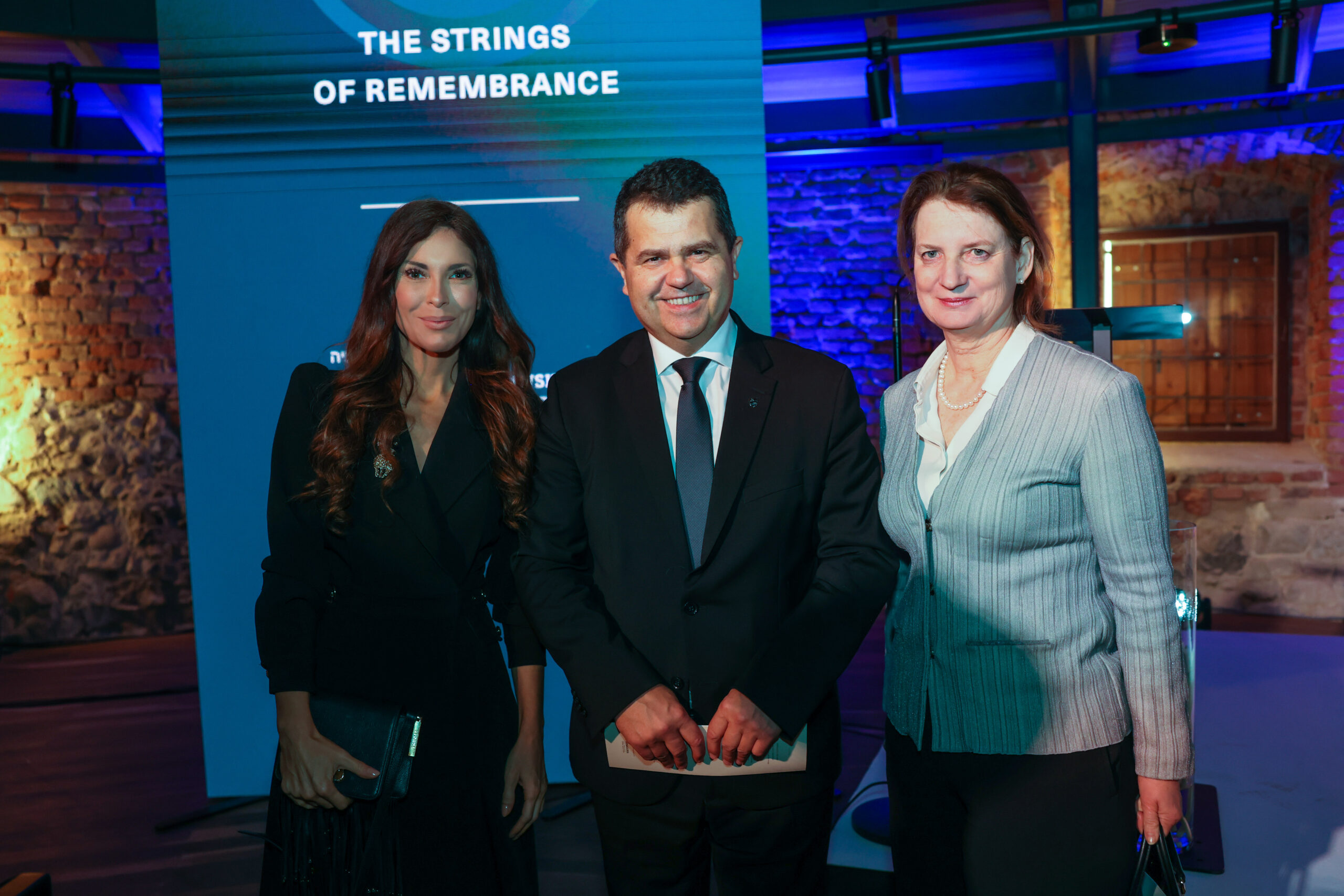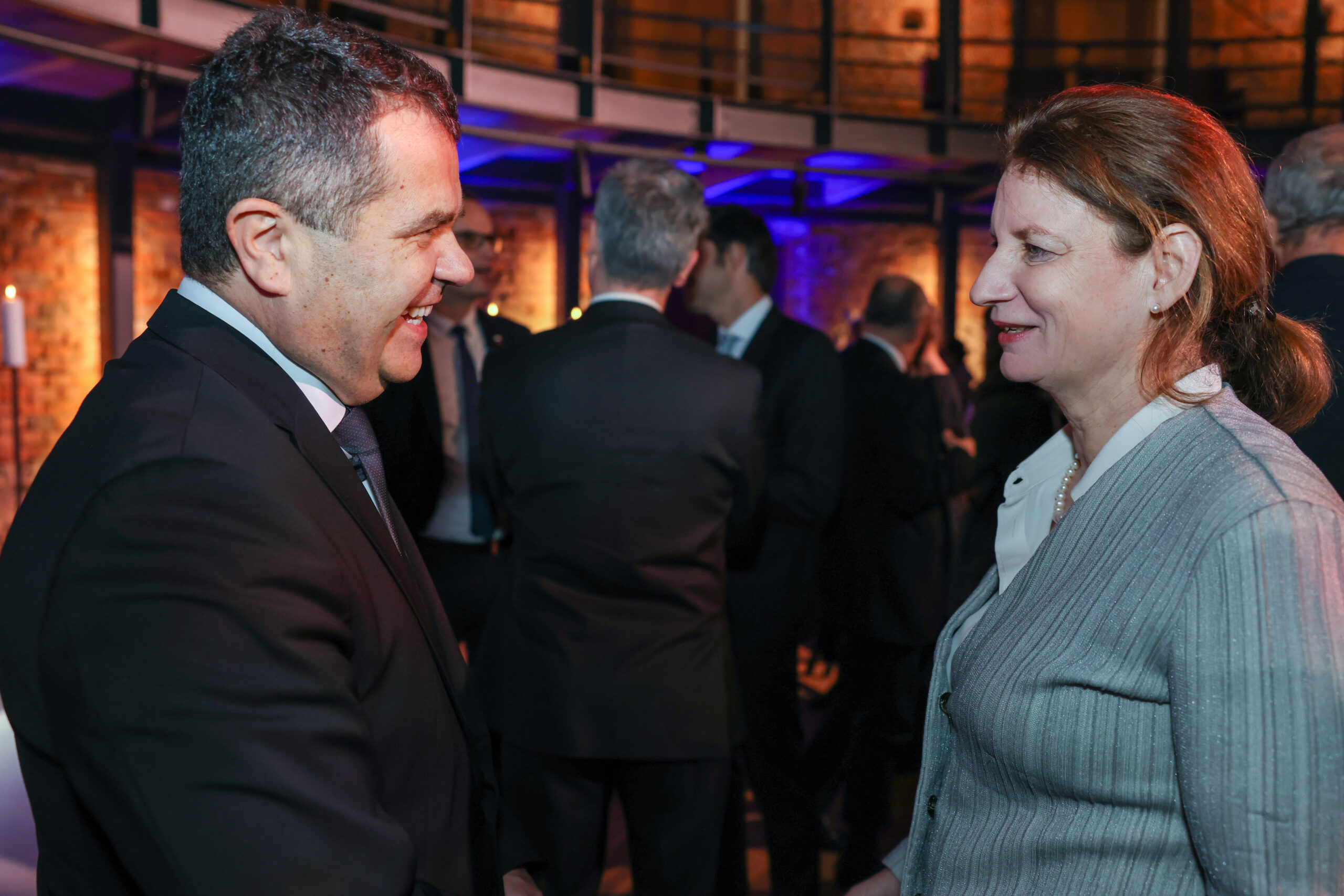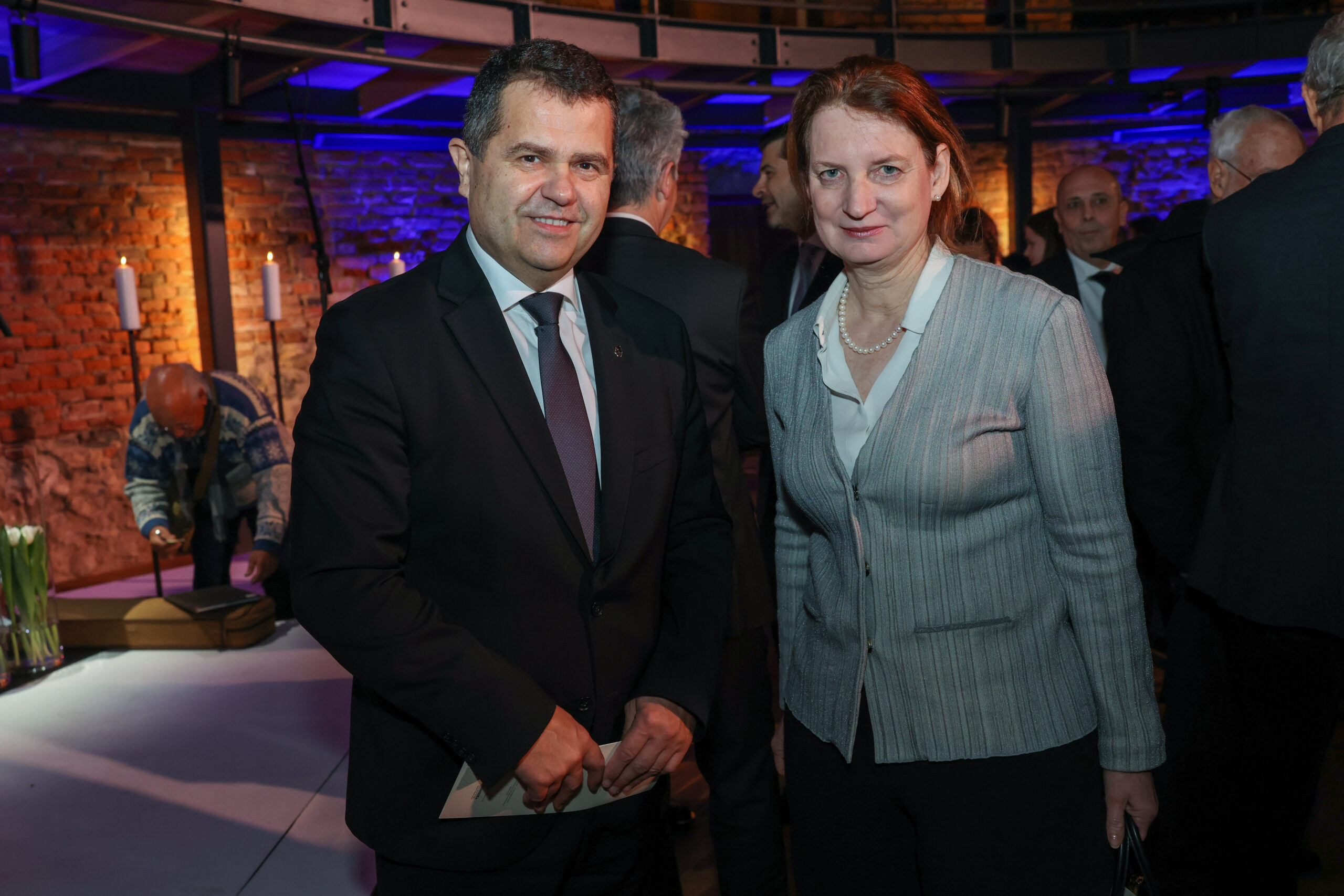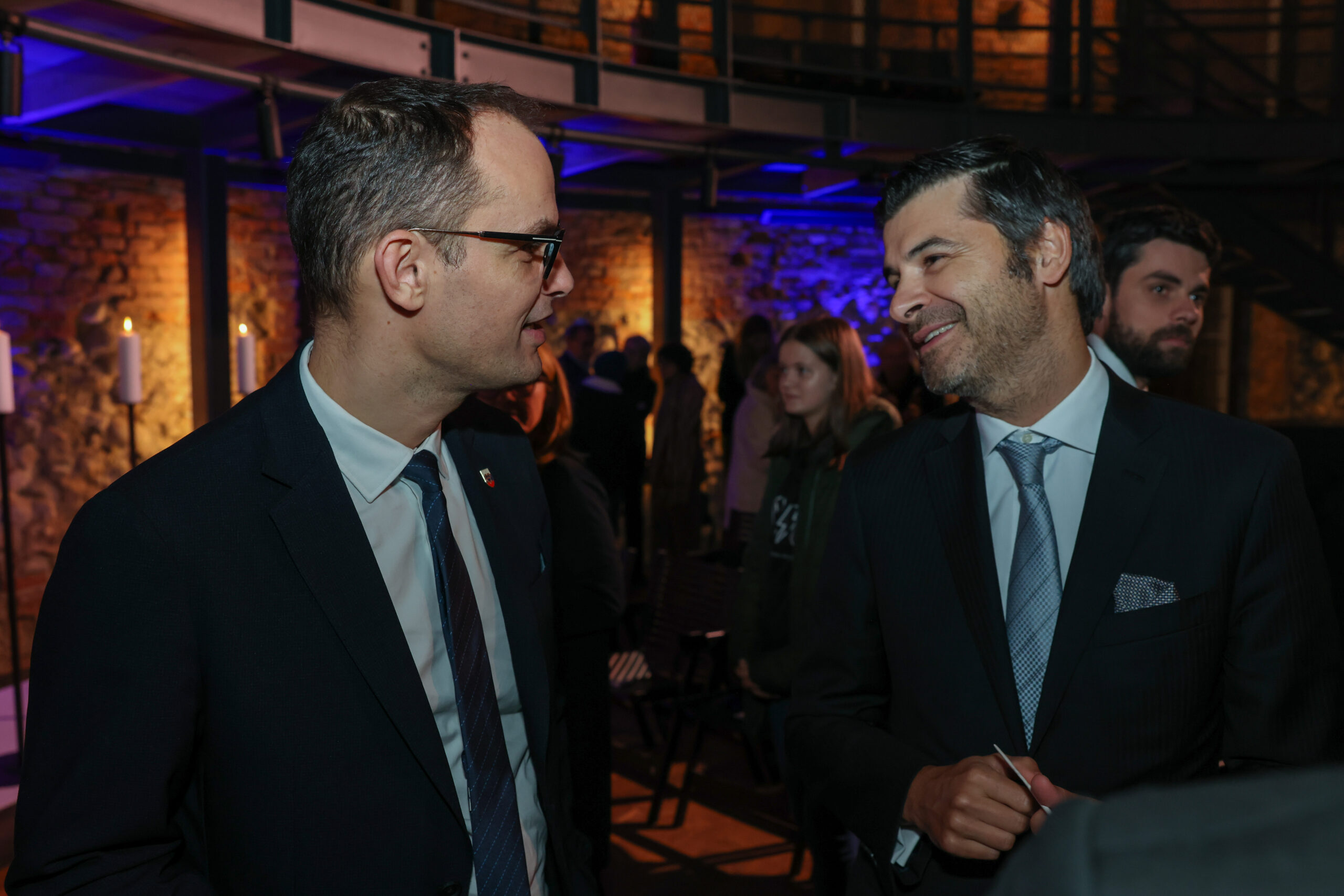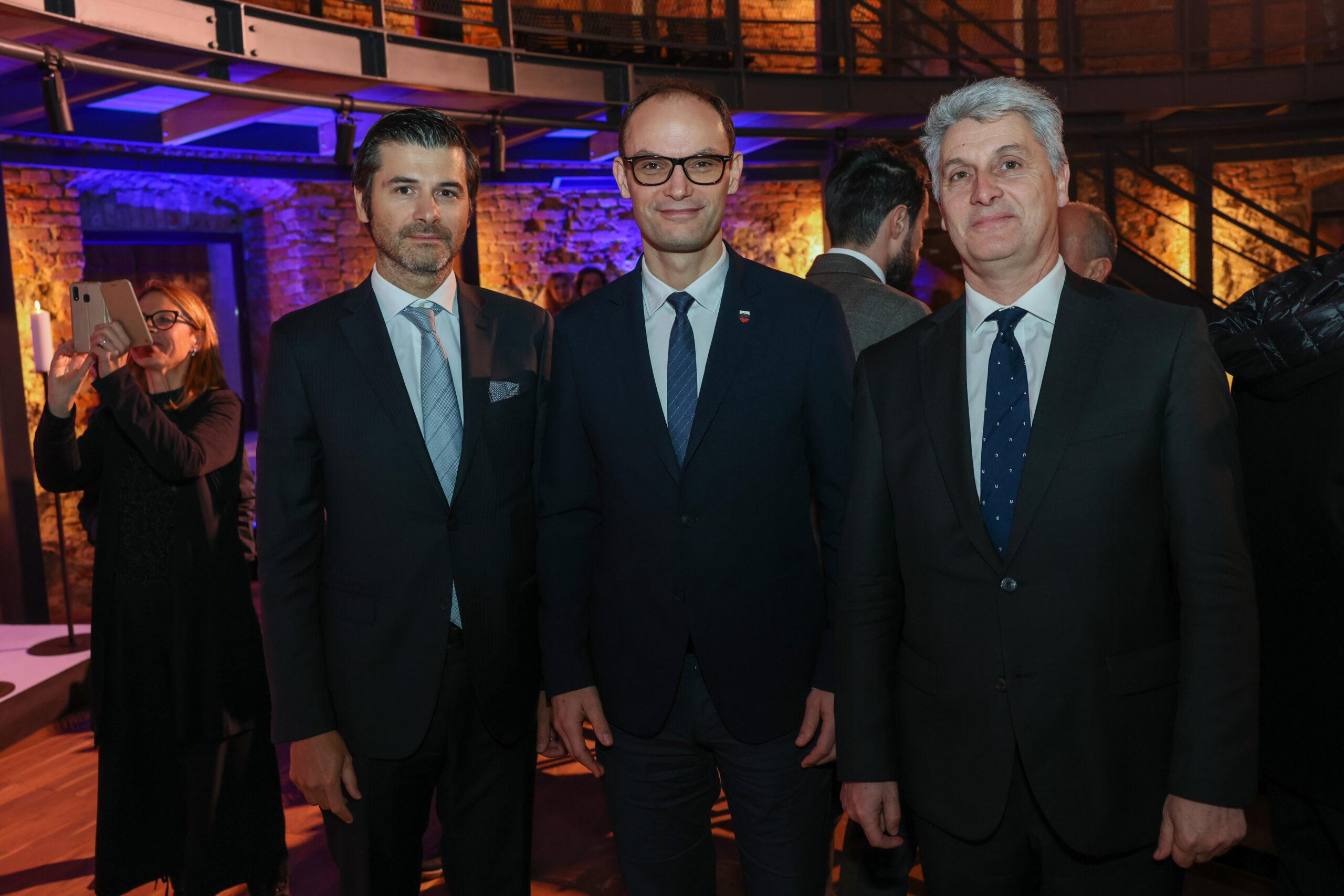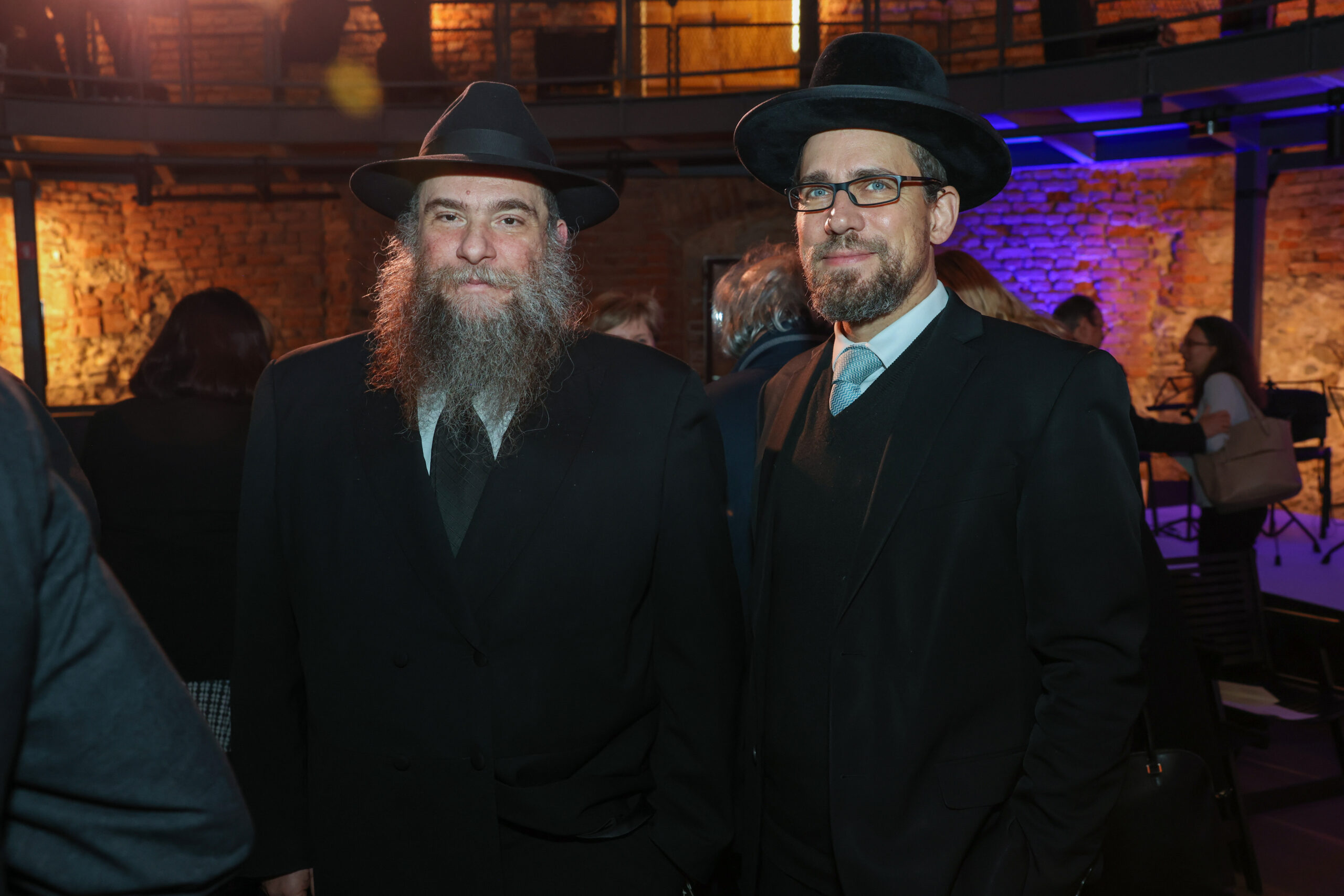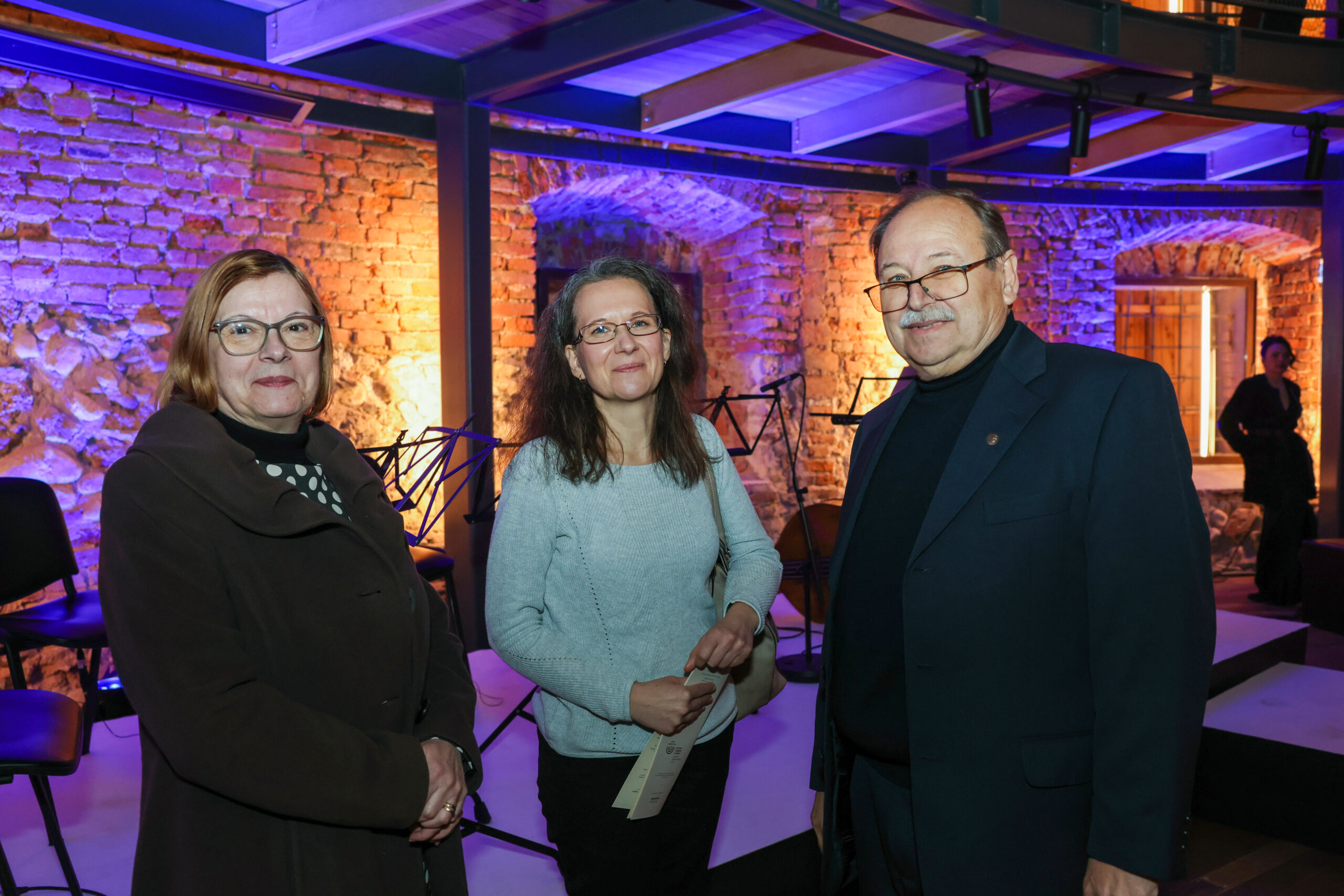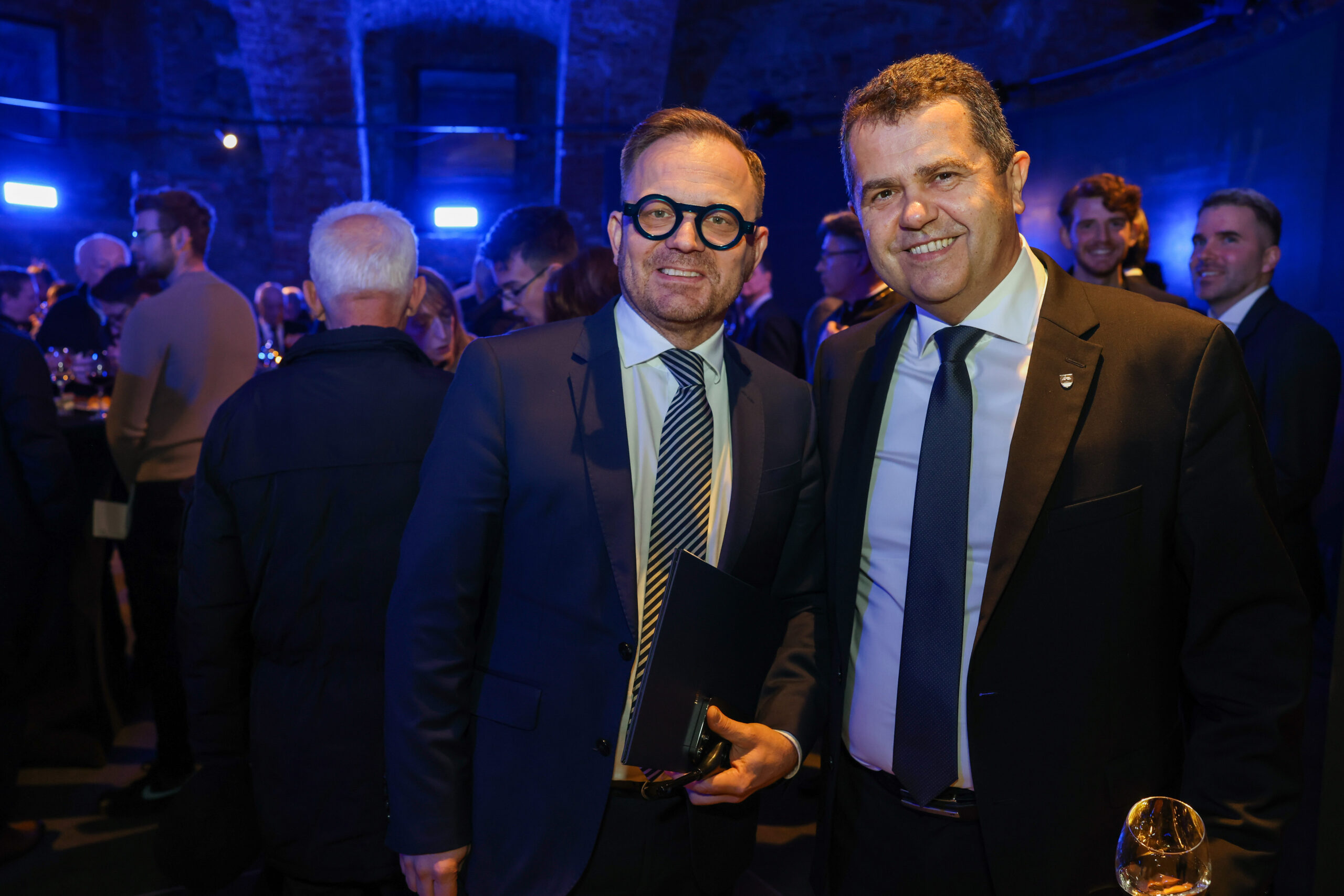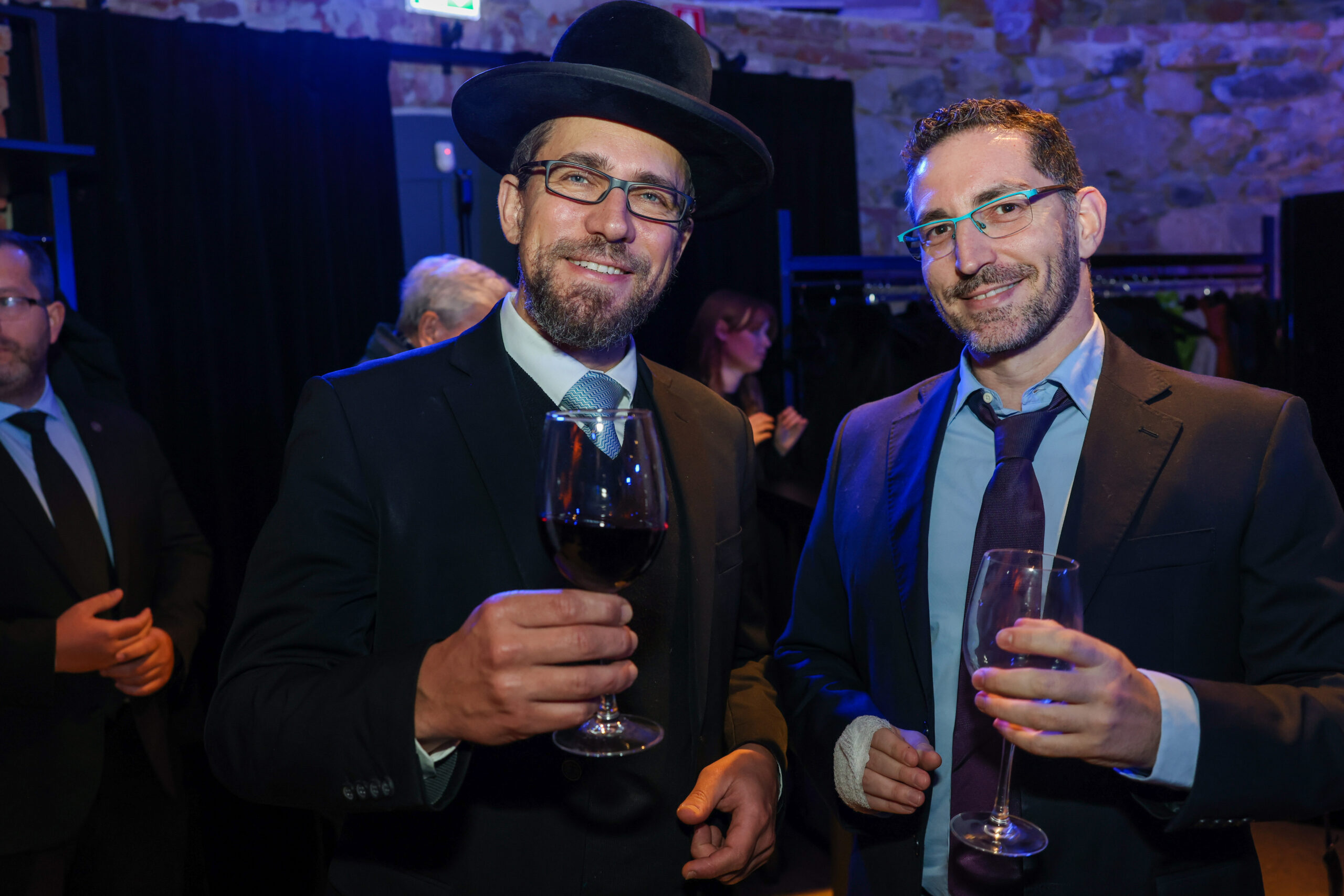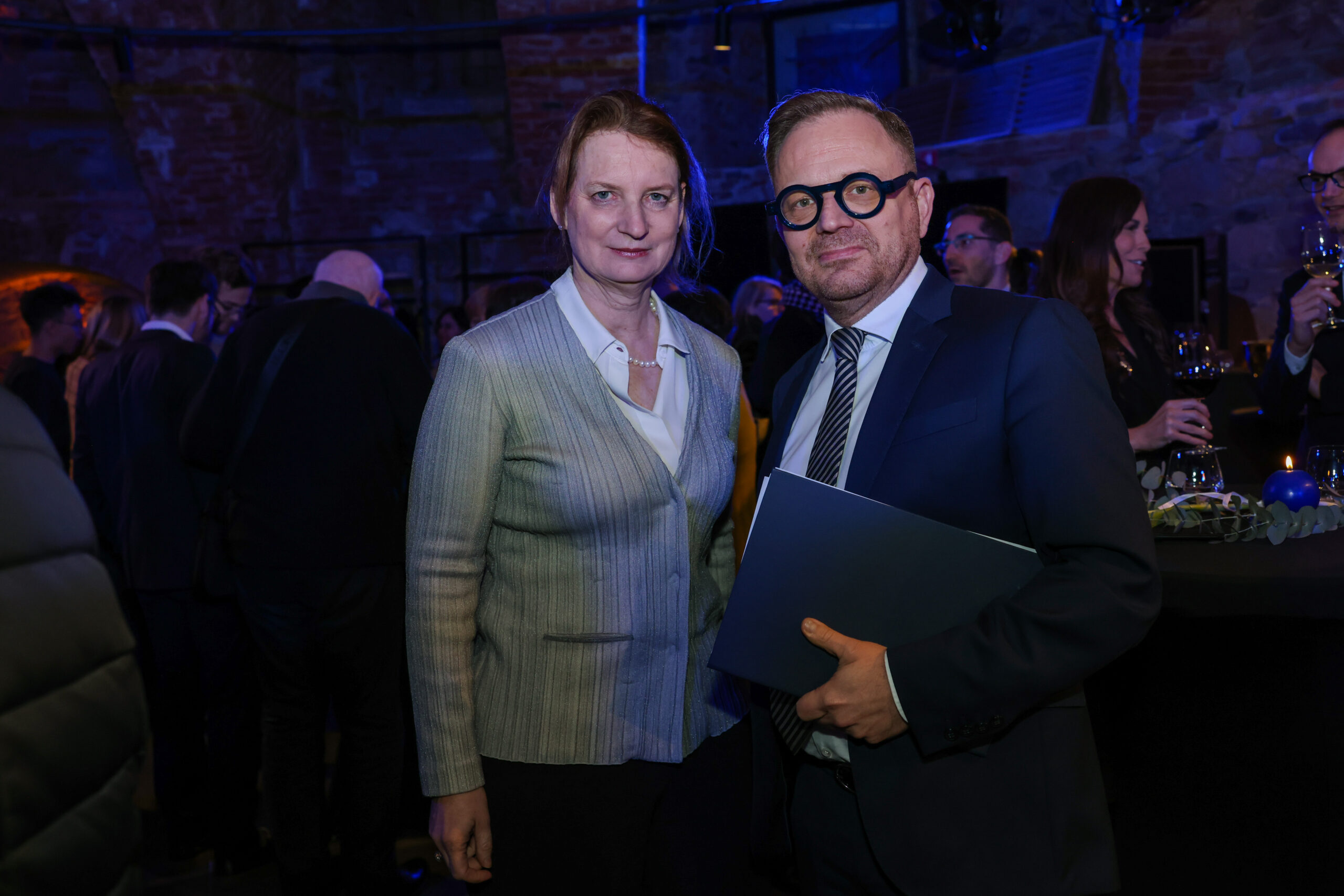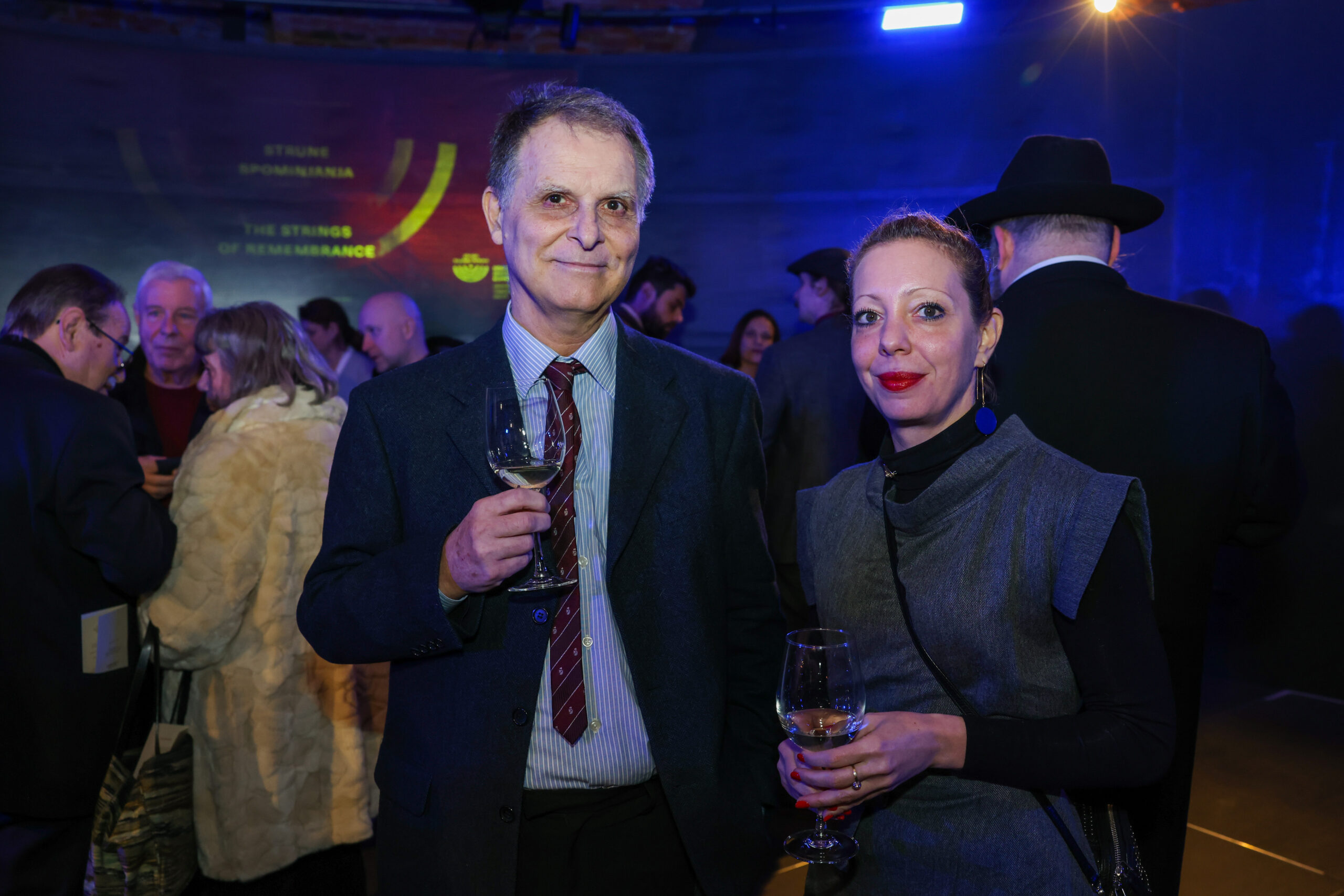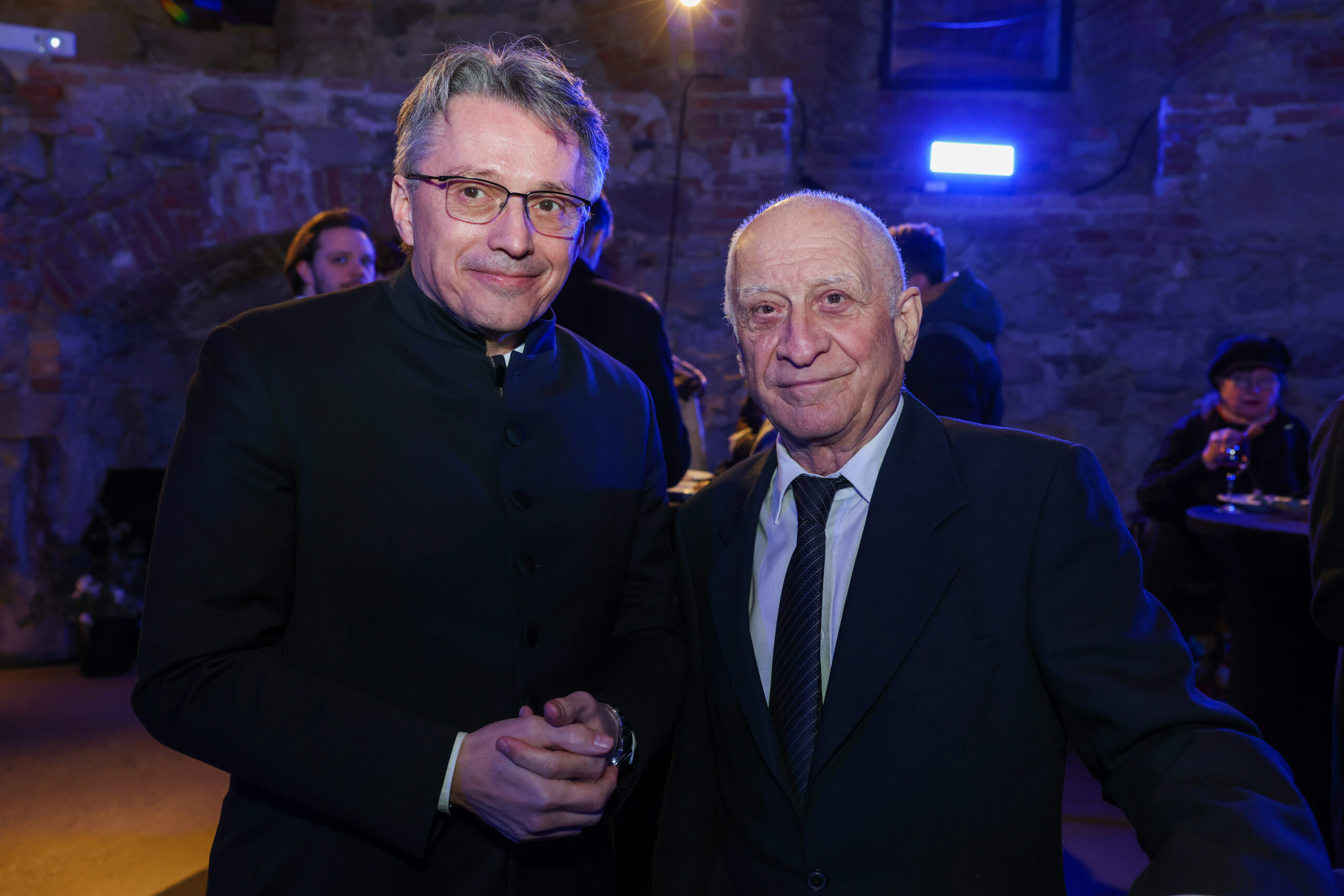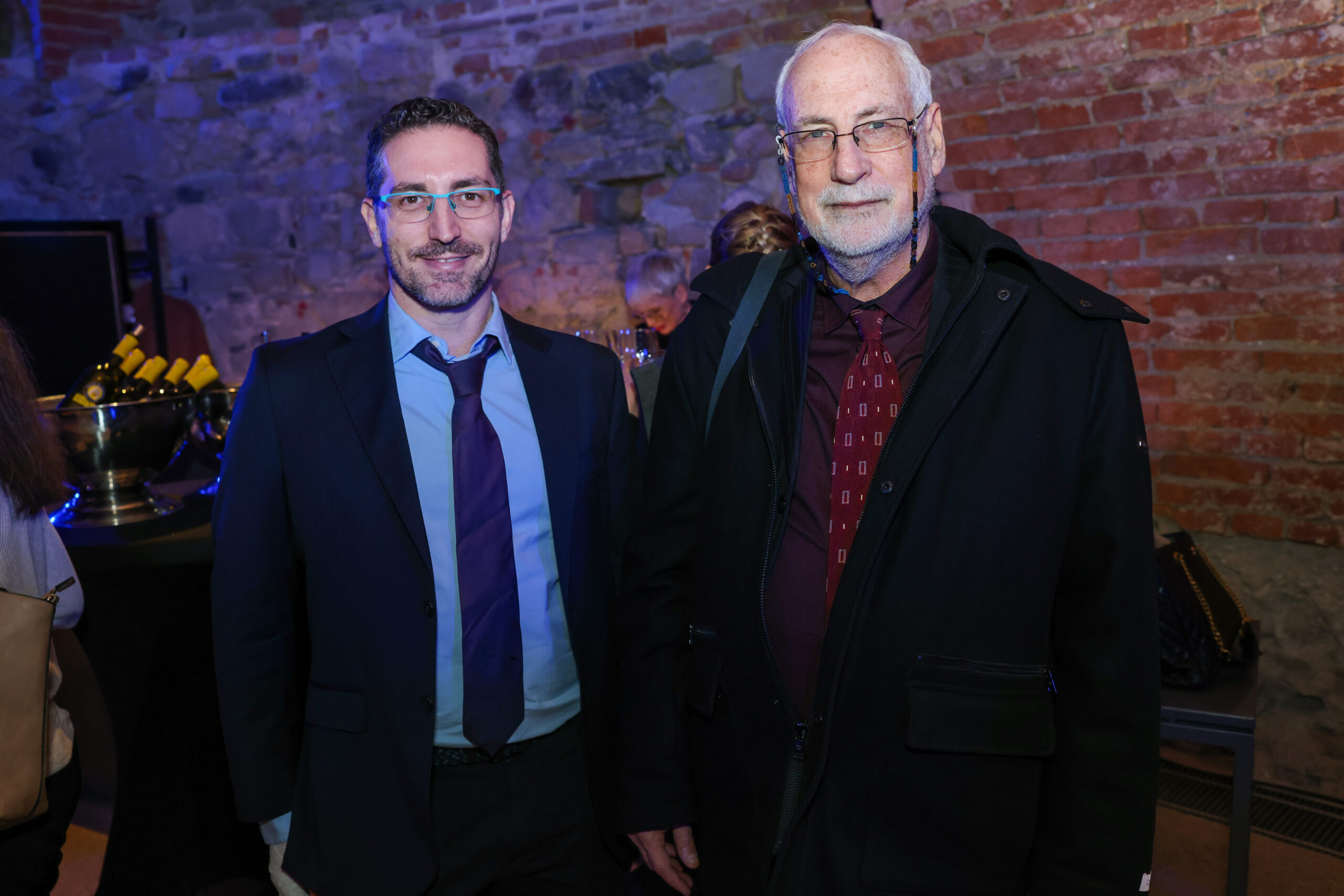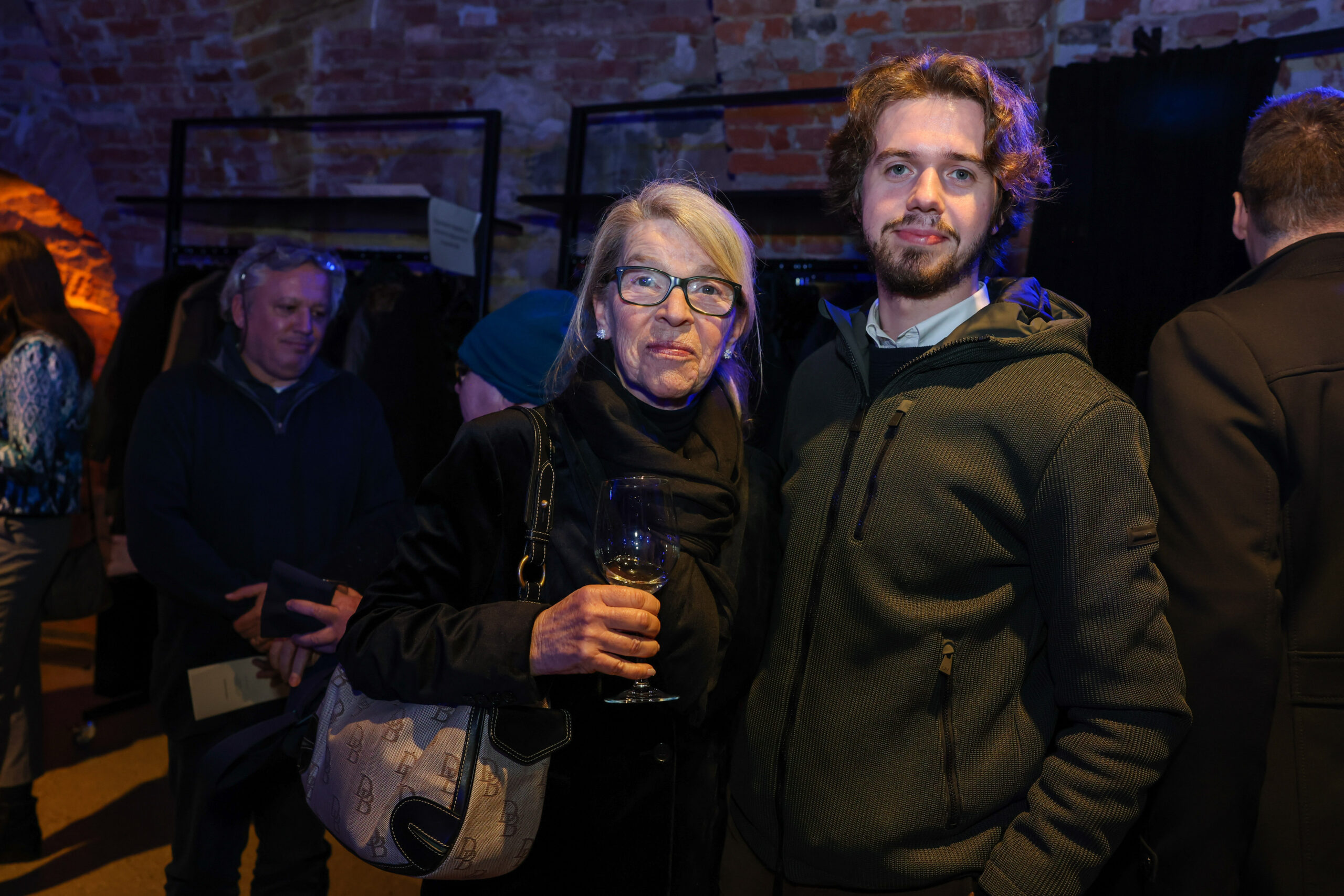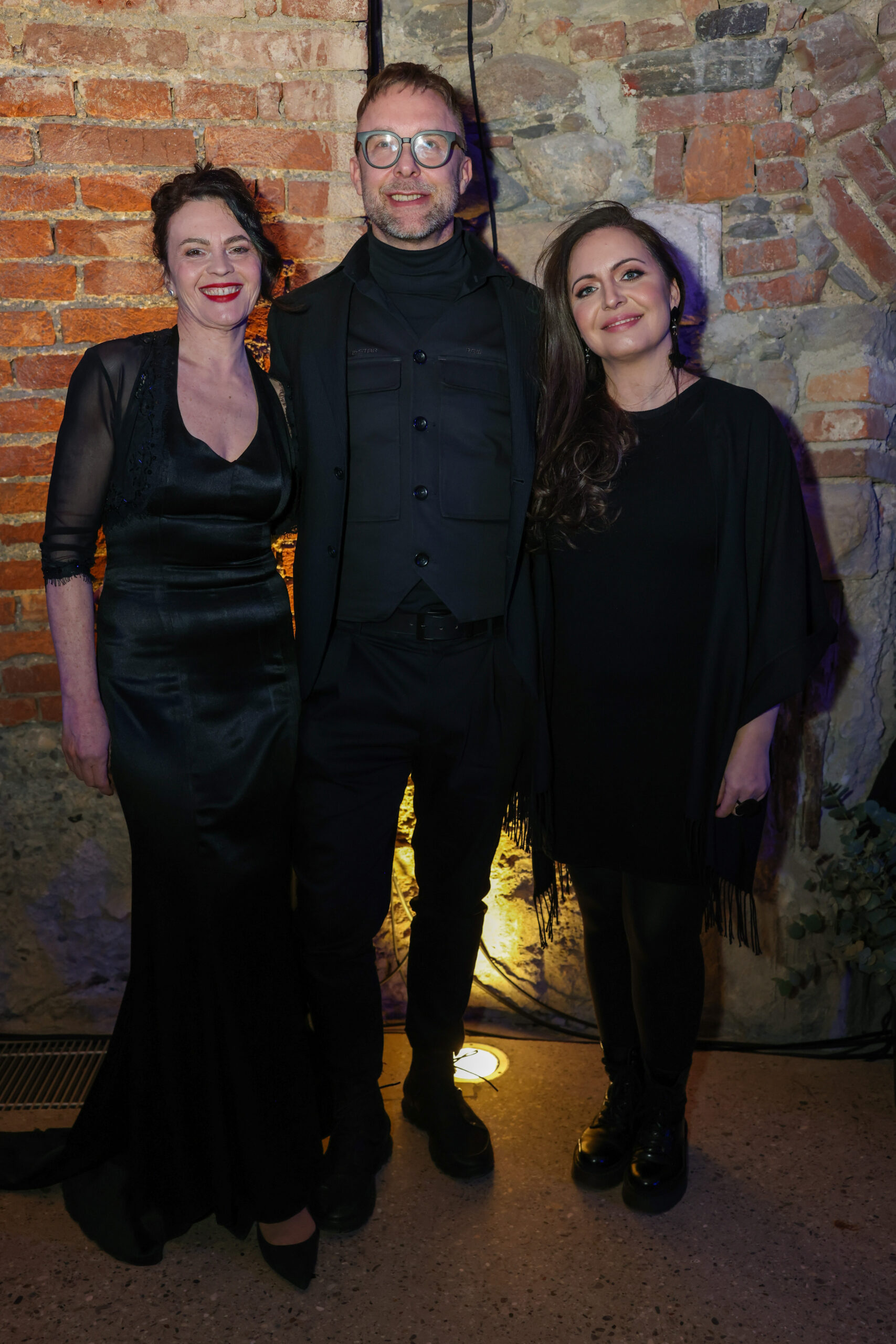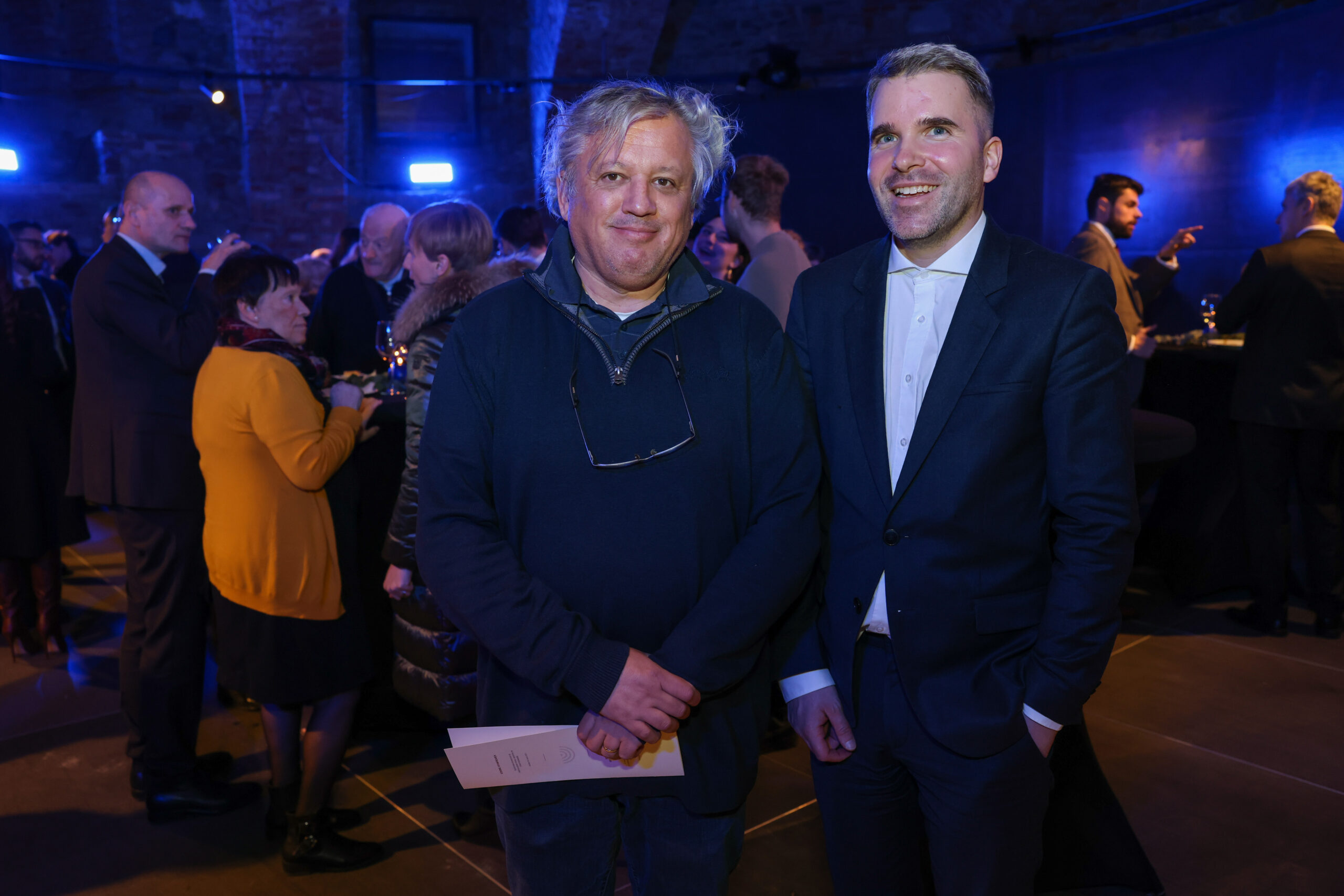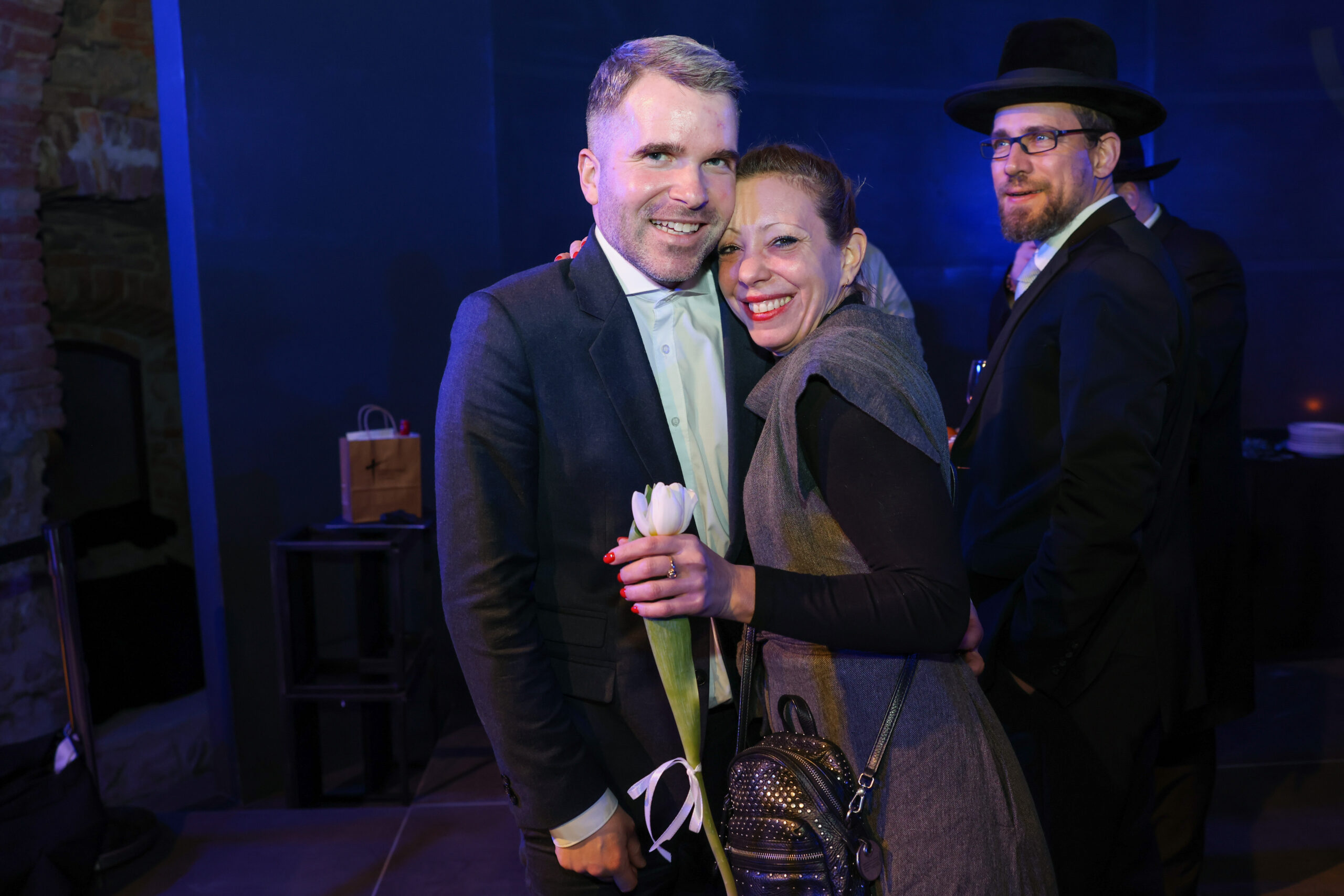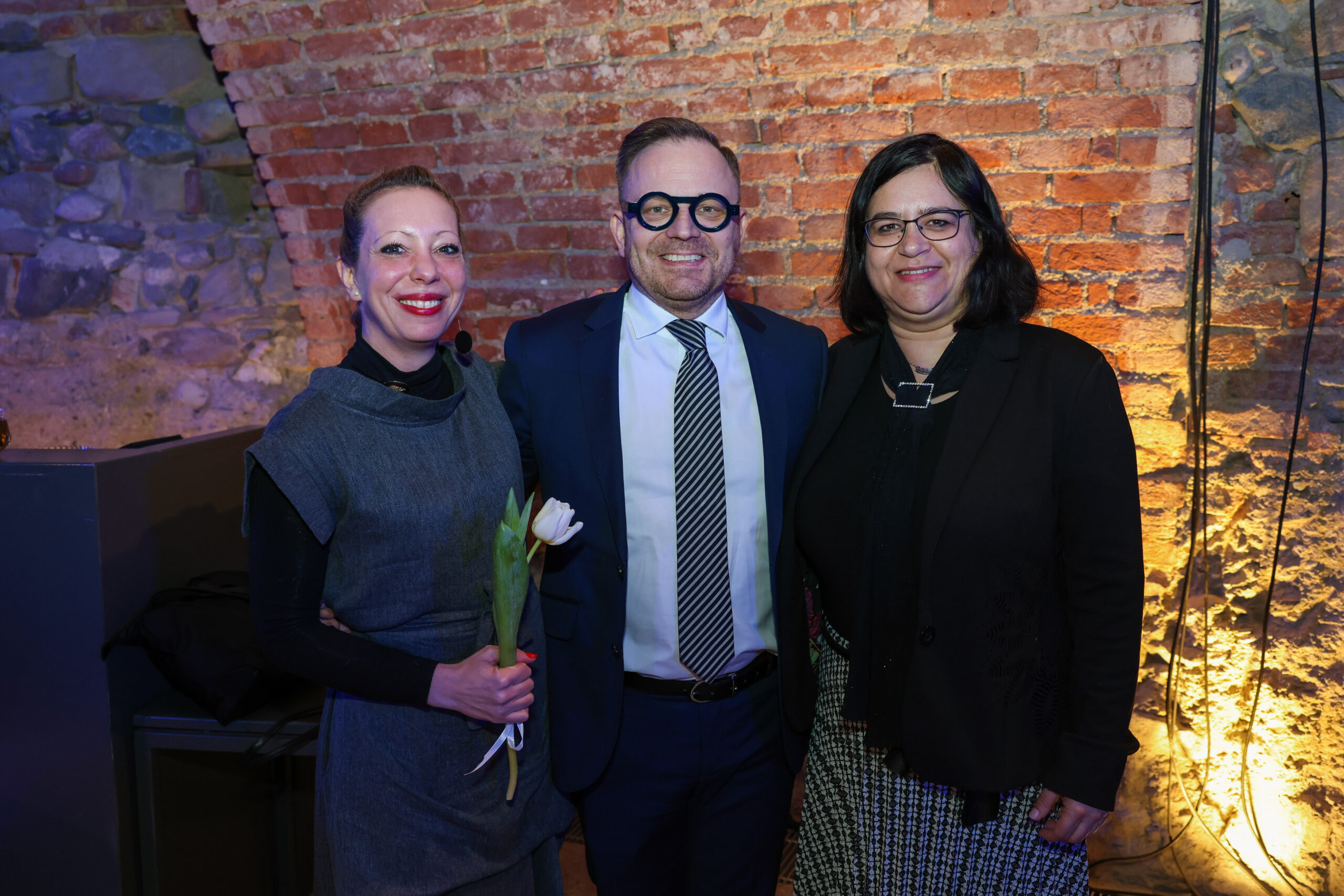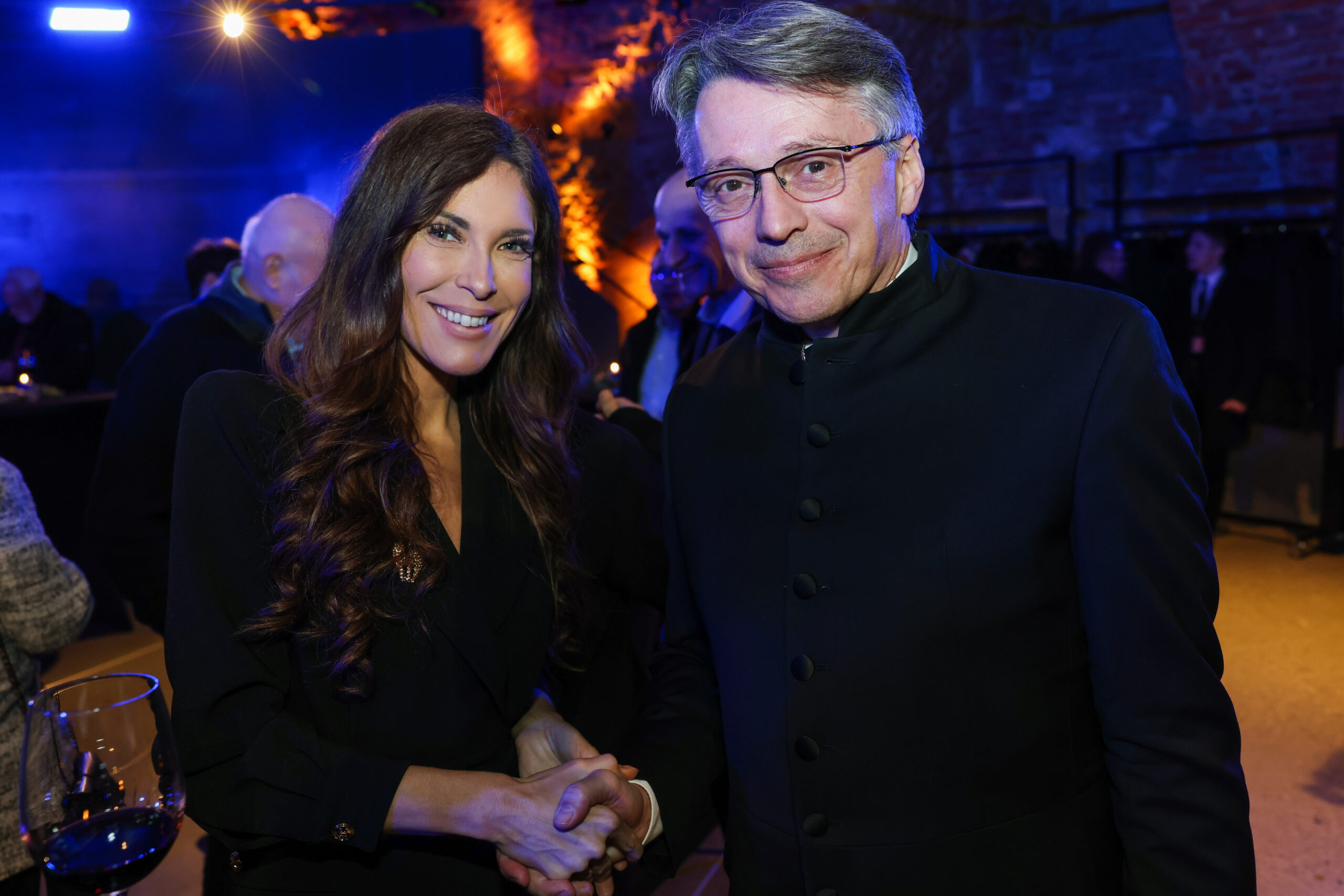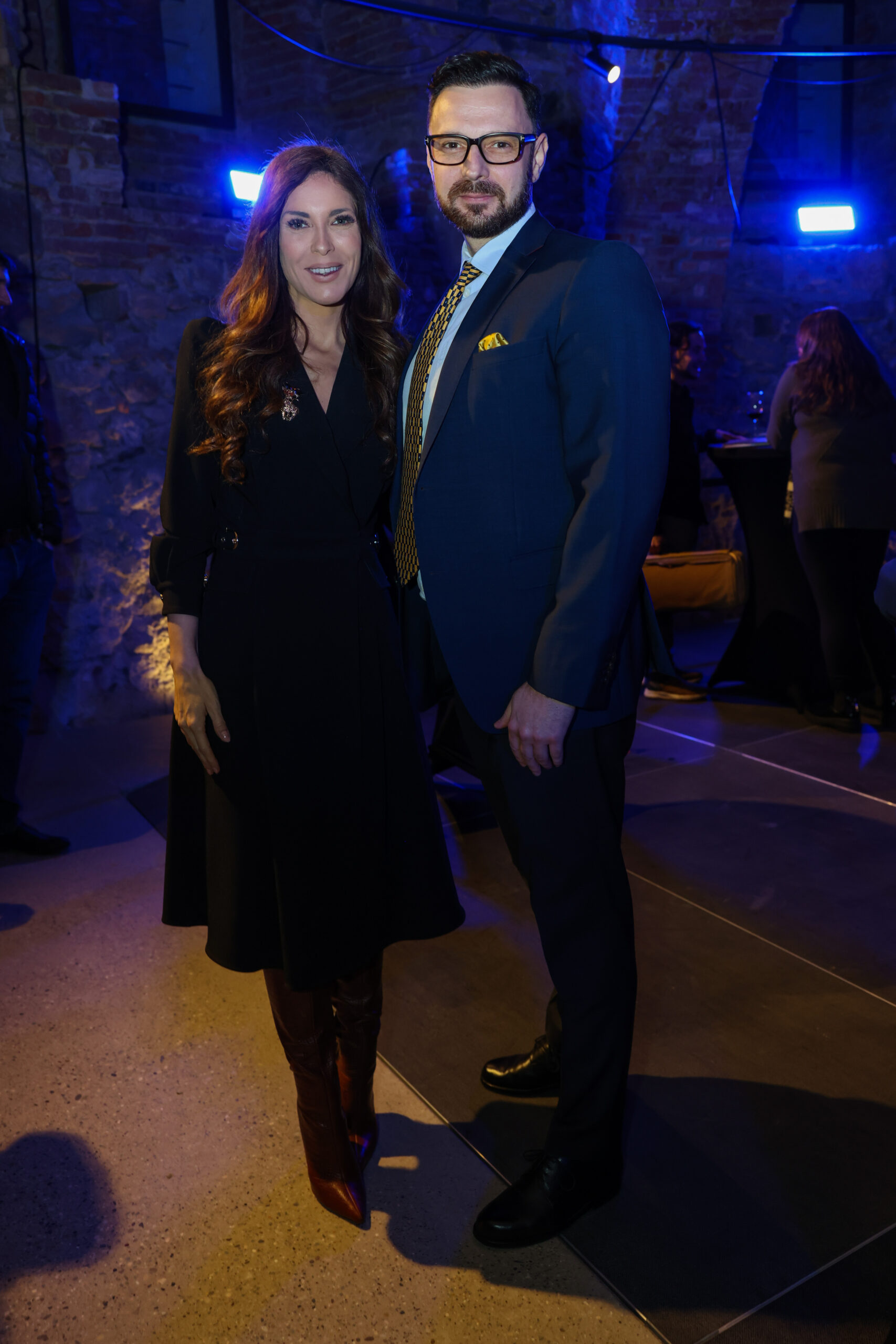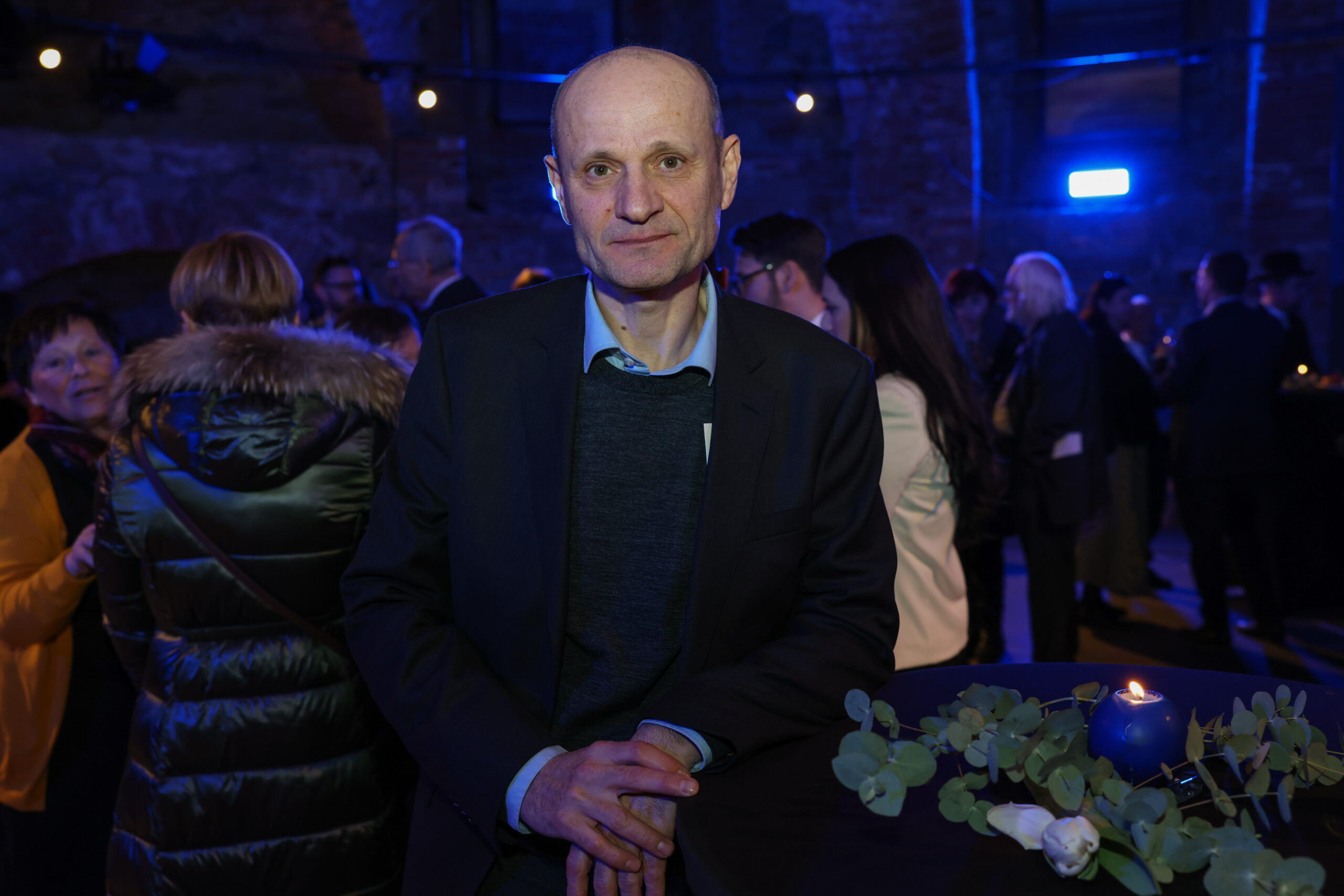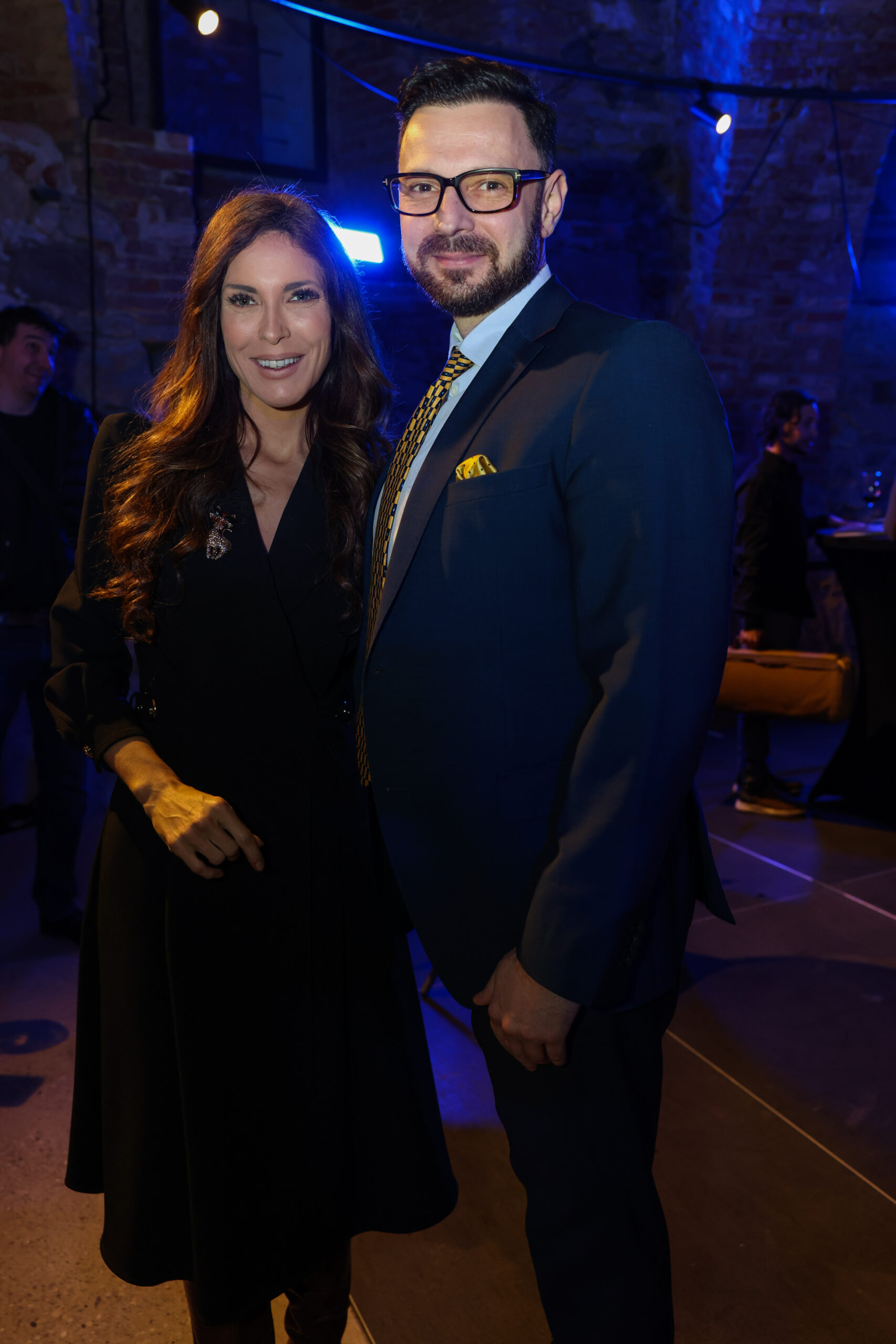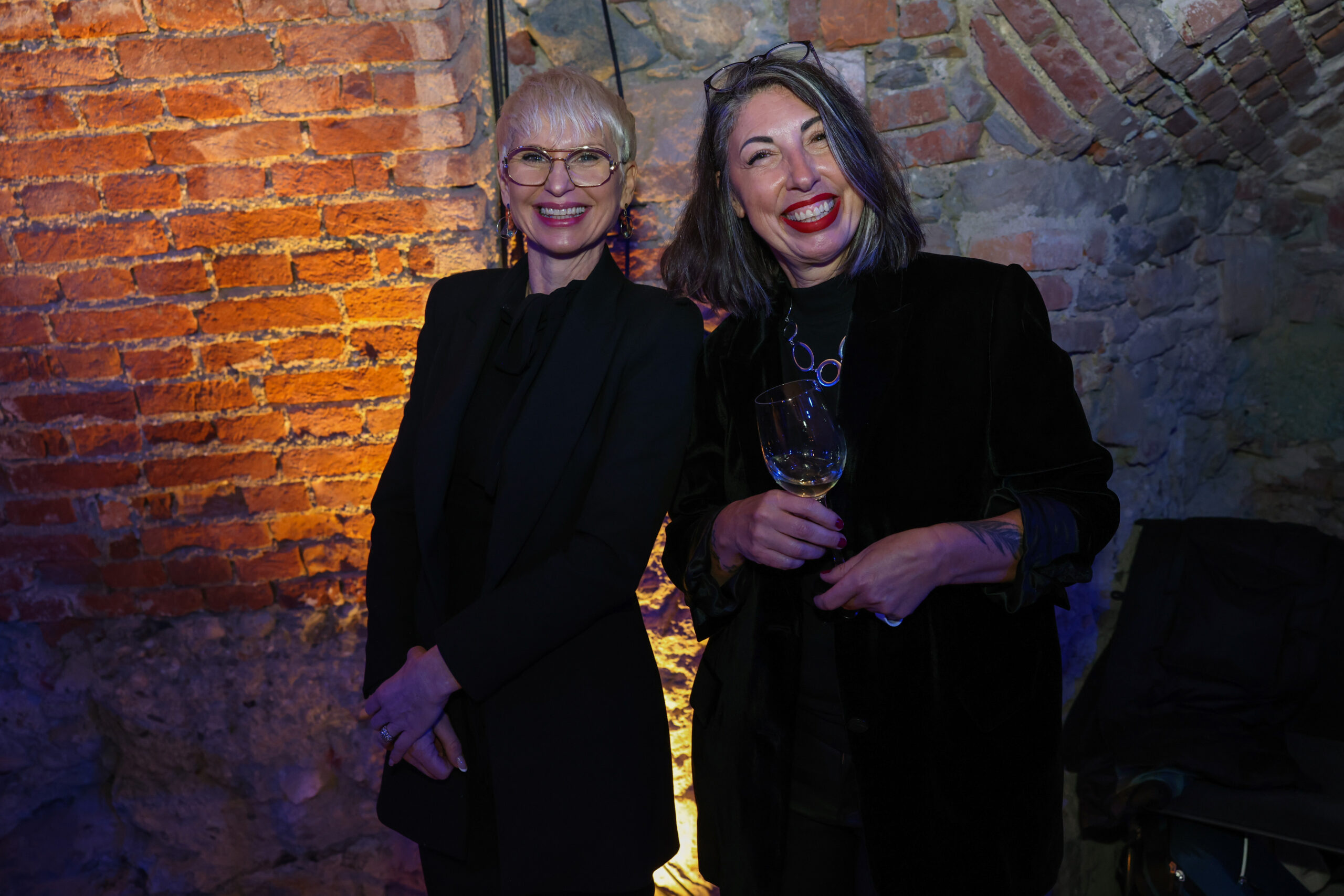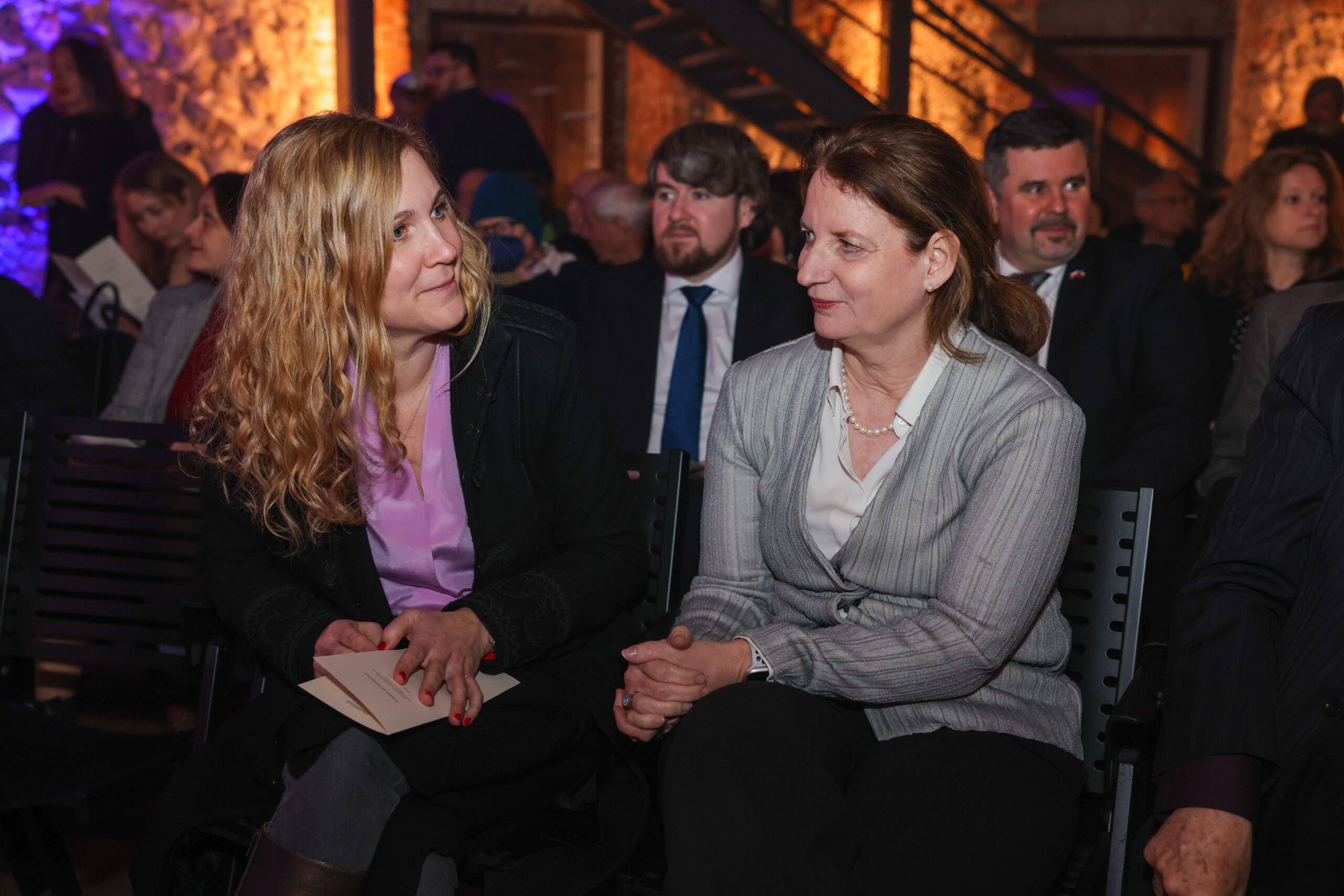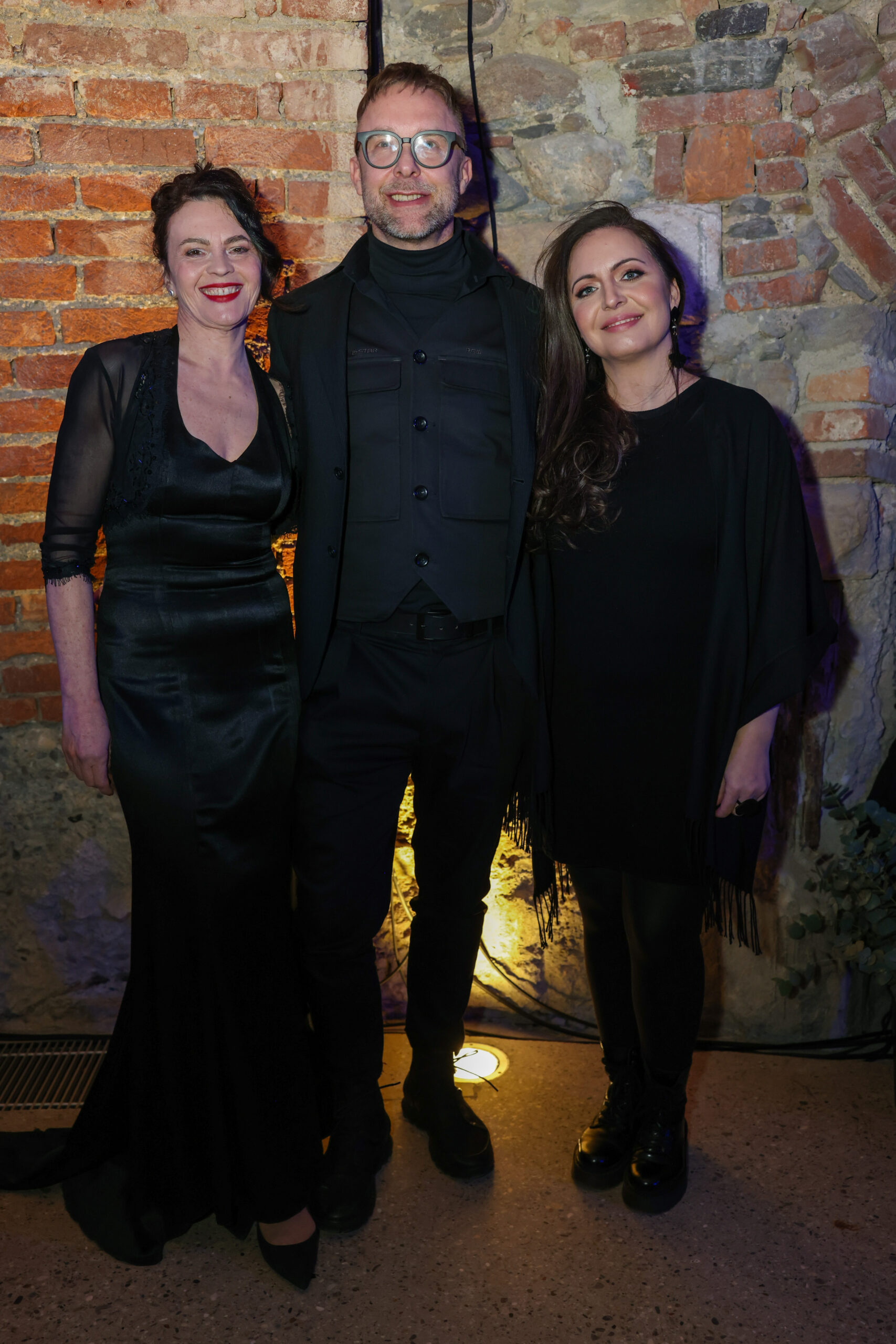NEWS
The descendants of Holocaust survivors and the deceased lit six symbolic candles in memory of the millions of victims
01. February 2023
Maribor, January 26, 2023 – “We have to make up for the six million. This is our duty, our responsibility to those who lost their lives and for future generations. And this is where we ask you for your support,” Elie Rosen, said as president of the Jewish Association of the Republic of Slovenia – Orthodox Jewish Community that organized the event, addressing those present at the memorial ceremony on the occasion of International Holocaust Remembrance Day. The event’s attendees also heard addresses by H. E. Archbishop Msgr. Jean-Marie Speich, Apostolic Nuncio in the Republic of Slovenia, and H. E. Zeev Boker, Ambassador of the State of Israel to the Republic of Slovenia. For this event only, a special violin, a symbol of hope and heroism, was brought from the Yad Vashem Holocaust memorial center in Jerusalem to Maribor’s Sodni stolp. The rich cultural and artistic programme was rounded off by the descendants of Holocaust survivors and the deceased, who lit six symbolic candles in memory of the millions of victims.
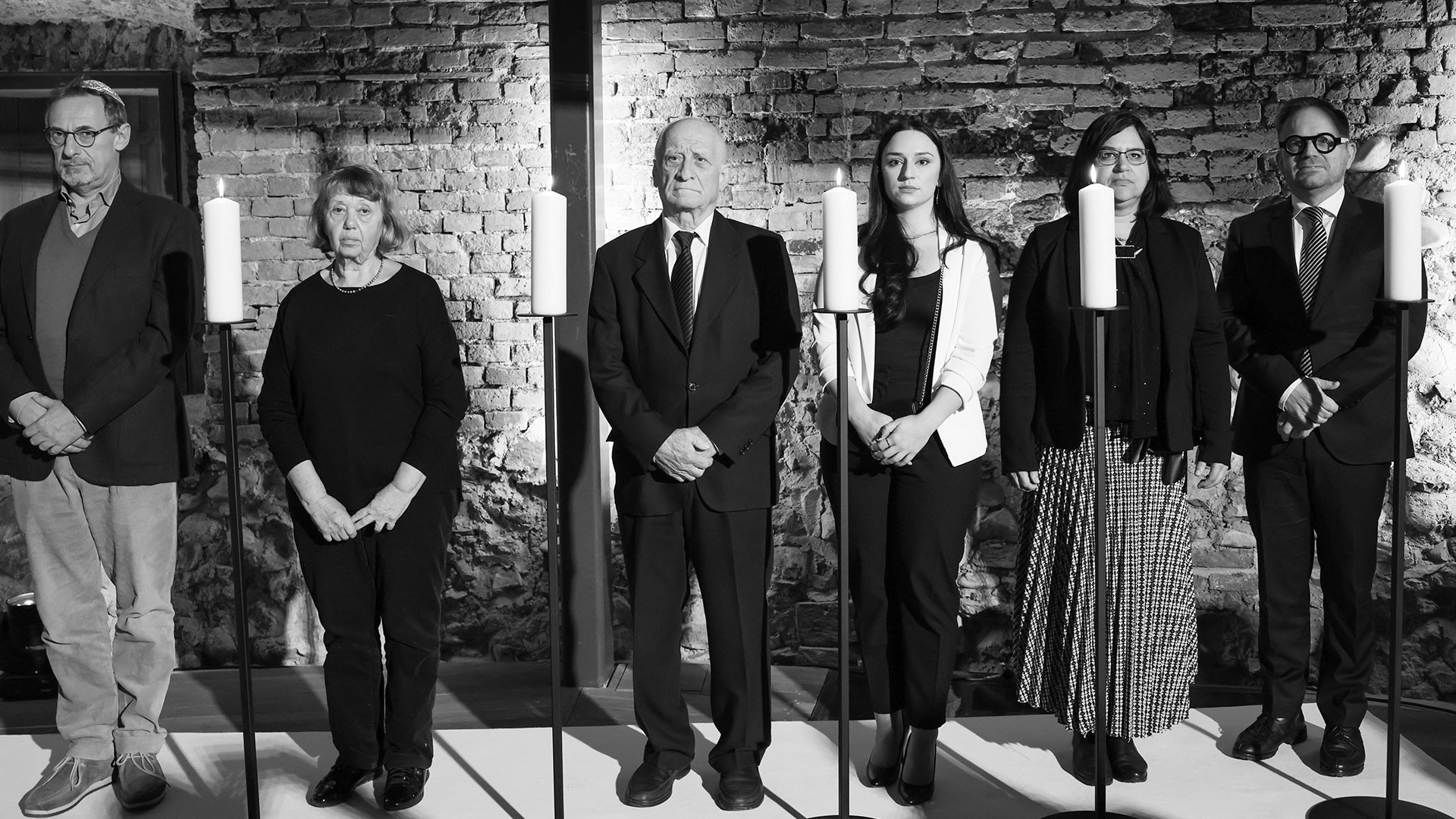
“We acknowledge and respect the past, both the larger history of the Jewish people, and the Holocaust as the greatest traumatic event in our recent history. Remembering the Shoah is our shared global responsibility. All of us have a duty to remember. And this has to be passed down from generation to generation. Young people need to know the facts. They are particularly exposed to distortion of the Holocaust on the Internet. We need to teach them about the Holocaust and the fragile nature of human societies. In the shadows of the Shoah, we are obliged not only to remember, but to build a future for all Jews, for Jews in Slovenia to live their lives fully connected to Jewish culture, heritage, and tradition, Elie Rosen explained.
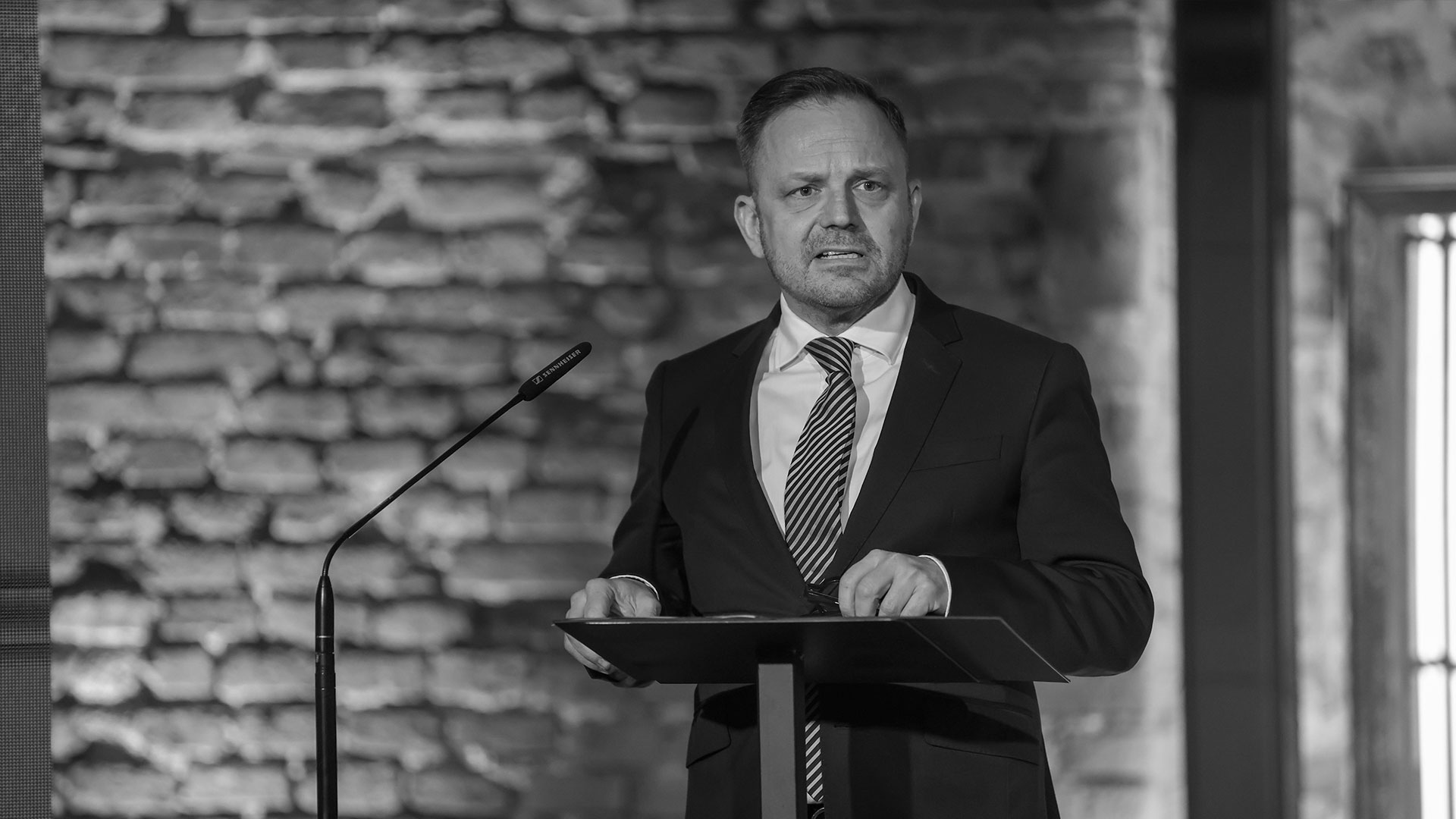
In the end death was defeated by life
H. E. Archbishop Msgr. Jean-Marie Speich, Apostolic Nuncio in the Republic of Slovenia, reminded those gathered that our generation, more than any before it, must question its duty to remember: “Are we doing enough? As the survivors of the Nazi camps disappear, as the memories of these same survivors fade, how can history continue to exist in our memories? If the generation before us could ignore history, we are the generation that will have to tell it, when no one can do it anymore.”
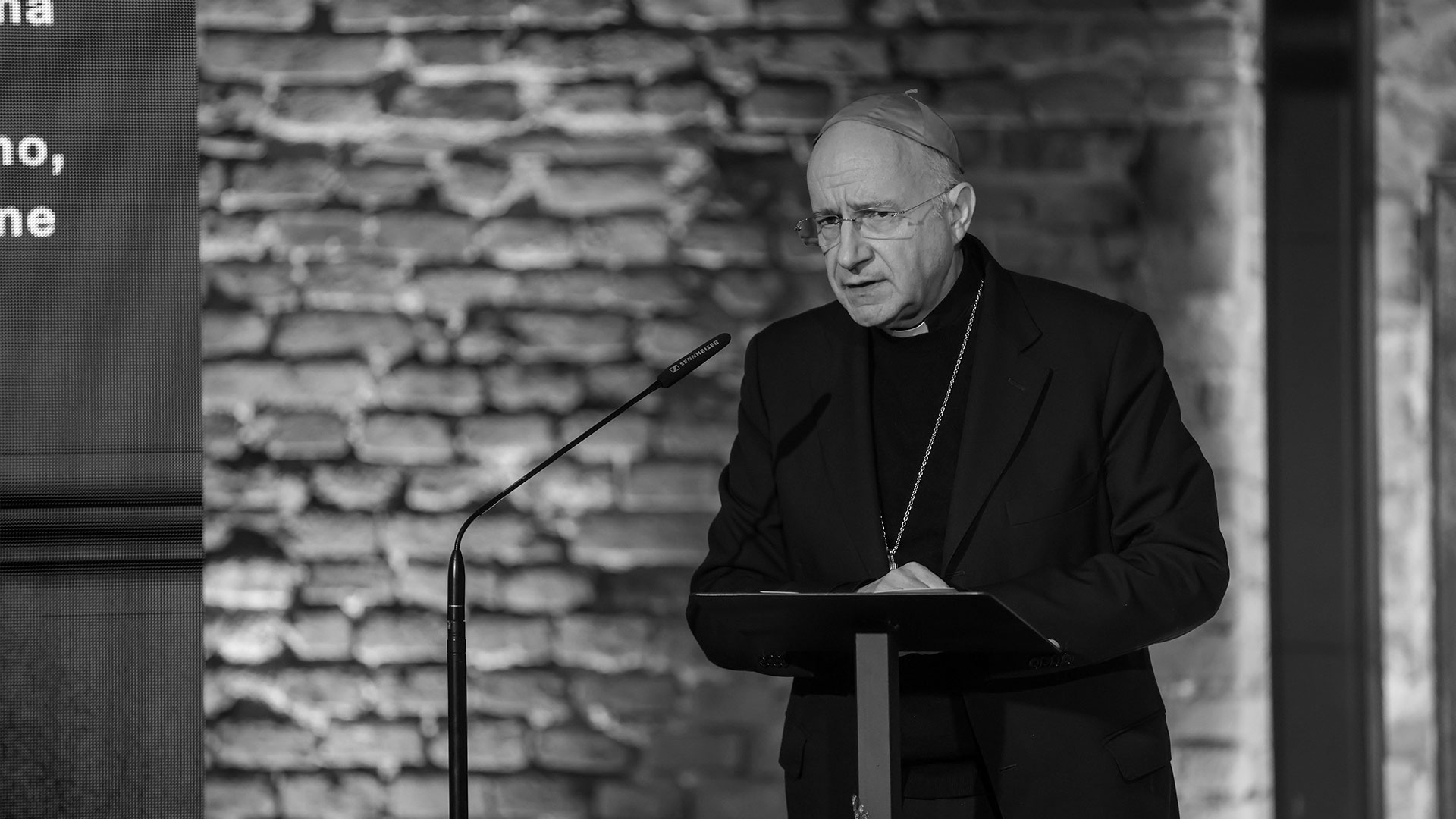
H. E. Zeev Boker, Ambassador of the State of Israel to the Republic of Slovenia, also referred in his speech to duty: “Not only as ambassador, but firstly as the son of holocaust survivors, I cannot say it often enough: It is our duty not only to remember the victims at commemorative events once a year, but also to preserve the Jewish heritage.” The ambassador added that we have a responsibility to educate the younger generations throughout the year – to strengthen resilience against hatred in general, and to raise awareness of modern antisemitism. “The fact that this event was organized by a Jewish Community shows us” he concluded, “that in the end death was defeated by life.”
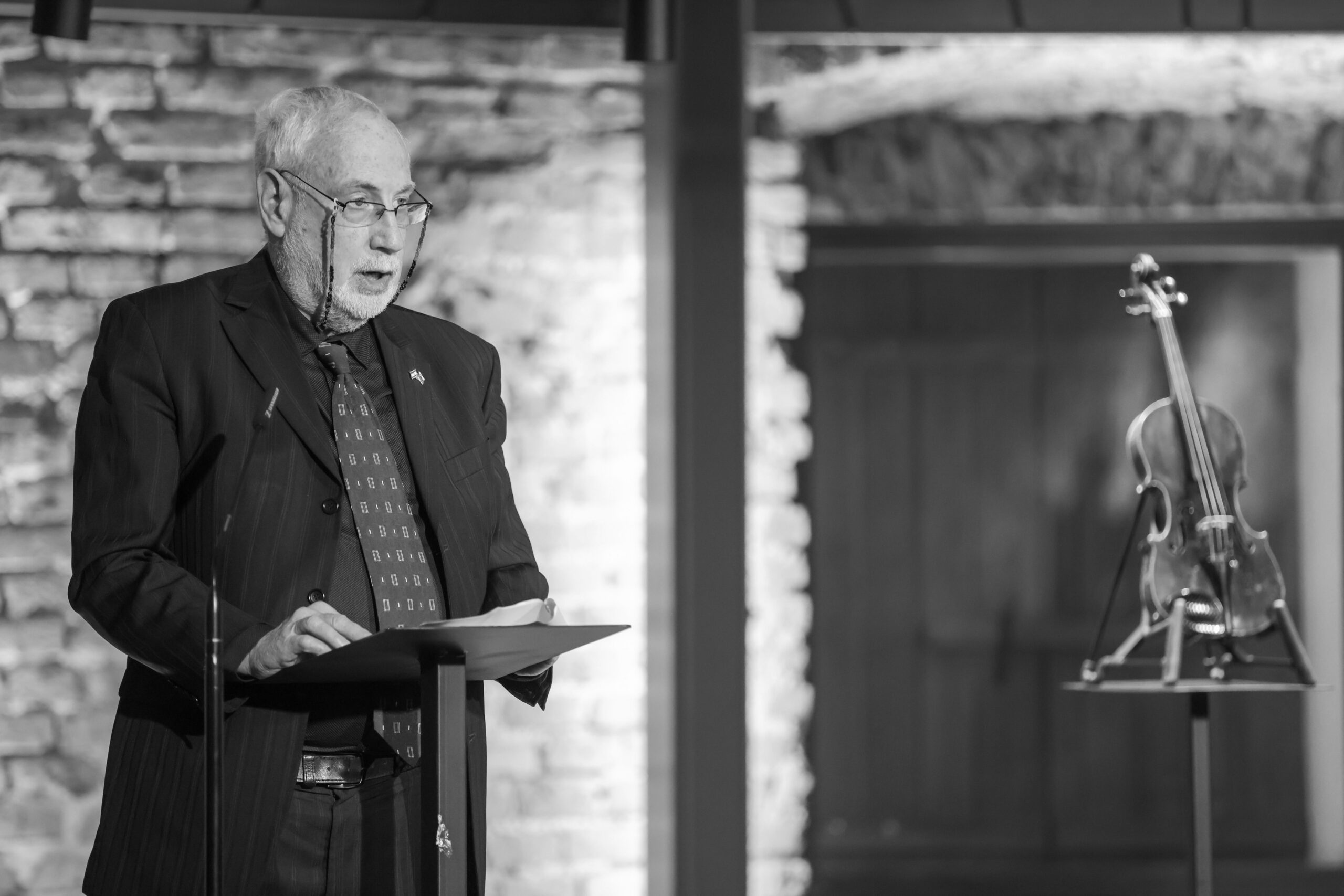
Antisemitism did not end with the Holocaust
Rosen as well warned that once again, in the heart of Europe, Jewish citizens fear for their lives: “In Europe, we are grateful that 78 years after the Holocaust, Jewish life is thriving again – in schools and kindergartens, in synagogues and in trendy, kosher restaurants. In the heart of our communities. In the middle of our everyday lives. That Jewish people feel at home in Europe makes us both incredibly grateful, and humble. But we also know that antisemitism does not lie buried deep in the past. The global Covid-19 pandemic has shown how quickly antisemitic conspiracies can spread. Disinformation and the denial of facts is everywhere on the net, with antisemitic narratives circulating widely. Antisemitism did not end with the Shoah. We must fight it relentlessly wherever it shows its ugly face. We must never remain silent, when Jewish citizens in Europe are exposed to hatred and harassment again for no reason but blatant racism.”
The consoling sound of widowed violins of hope
Violins were the main focus of the evening: a special violin, a symbol of hope and heroism, travelled to Maribor from the Yad Vashem Holocaust memorial centre in Jerusalem just for this event. The violin belonged to Mordechai Schlein (Motale), who was born in 1930 in Krasnowka (then Poland). When the Germans entered Krasnowka in June 1941 and murdered his family, the 11-year-old Motale joined a partisan unit for which he began to gather intelligence: his talent even led him to play regularly in the German soldiers’ club in the town. When he learned that a conference with 200 SS officers was to be held at the club where he was playing, he decided to blow up the club. Motale died at the age of 13. All that was left behind was a widowed violin, which was heard in Maribor this special evening. The violin was brought to Maribor by Seffi Hanegbi, the grandson of Misha Dyady, the commander of the partisan group to which the boy belonged.
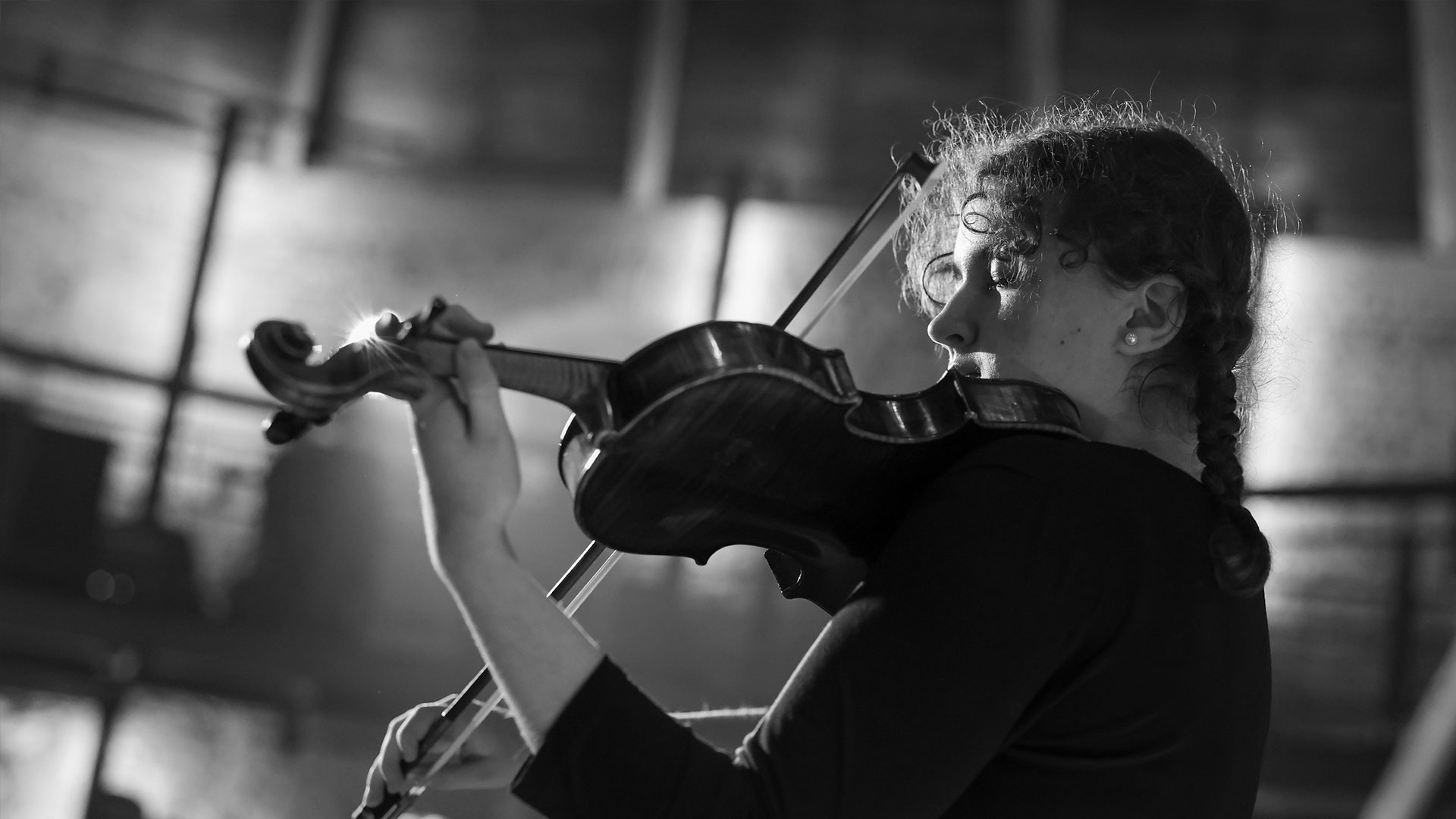
Attendees also heard the story of the violin from Šalovci in Goričko, where the 11-year-old talented Evgen, son of the merchant Franz Schwarz, lived before the deportation of most of the Prekmurje Jews. Schwarz’s grandson is the acclaimed writer and poet Dušan Šarotar, author of the novel Billiards at Hotel Dobray, which he describes as “a literary monument to his grandfather as well as a tribute to the vanished Jewish community”. Among the few objects of the Schwarz family that survived the war is Eugene’s violin, which now hangs above Šarotar’s desk. On the occasion of yesterday’s memorial ceremony, he wrote:
“Poetry, music, and art in general are all forms of remembrance. All that is created with love and inspiration, all beauty, is a sign of infinity. With each first verse of a new poem, language is reborn, and contact with the past is established, which is why I say that poetry is a dialogue with the dead. Fingerprints are left on the master’s strings and their melody never really fades away, echoing in the silence, as part of a memory that is never really forgotten.”
In Slovenia, 86.6 percent of Jews disappeared
In 2005, the General Assembly of the United Nations declared January 27, the anniversary of the liberation of the Auschwitz Birkenau extermination camp in 1945, as the International Day of Remembrance for the Victims of the Holocaust. On this international day, we remember all the victims of one of the worst genocides in history: the six million Jewish victims of the Holocaust and the millions of other victims of Nazism and members of other targeted groups who were murdered during the Shoah. We also remember the Righteous Among the Nations and others who helped save lives during this tragic period in history.
The consequences of the Holocaust were disastrous for the Jews of Prekmurje. Slovenia ranks among the countries in which the Endlösung was extremely successful: 86.6 percent of Jews disappeared. In 1937, 778 Jews lived in what is now Slovenia. A little more than half, 417 to be exact, lived in the Prekmurje area. More than 300 Prekmurje Jews were sent to Auschwitz, with only 26 (23 women and 3 men) surviving the war.
In addition to the President of the Jewish Association of Slovenia, MMag. Elie Rosen, and Chief Rabbi for Slovenia, Ariel Haddad, the event was attended, among others, by:
- H. E. Archbishop Msgr. Jean-Marie Speich, Apostolic Nuncio in Slovenia
- Bishop mag. Leon Novak, The Evangelical Church of the AC in the Republic of Slovenia
- H. E. Zeev Boker, Ambassador of the State of Israel to the Republic of Slovenia
- H. E. Carlo Campanile, Ambassador of the Republic of Italia to the Republic of Slovenia
- H. E. Andro Dávid, Ambassador of Hungary to the Republic of Slovenia
- H. E. mag. iur. Elisabeth Ellison-Kramer, Ambassador of the Republic of Austria to Sloveni
- H. E. Alexandru Grădinar, Ambassador of Romania to the Republic of Slovenia
- Eksc. Natalie Kauther, veleposlanica Zvezne republike Nemčije v Republiki Sloveniji
- H. E. Peter Zeleňák, Ambassador of the Slovak Republic to the Republic of Slovenia
- Jan Beneš, Deputy Head of Mission, Embassy of the Czech Republic to the Republic of Slovenia
- Silvana Bolocan, Deputy Head of Mission, Embassy of Romania to the Republic of Slovenia
- Tomás Ó hÁbhartaigh, Deputy Head of Mission, Embassy of Ireland to the Republic of Slovenia
- Łukasz Paprotny, Embassy of the Republic of Poland in Ljubljana
- Janez Magyar, Mayor of the Municipality of Lendava
- Mag. Stane Baluh, director, Government Office for National Minorities
- Dr. Anže Logar, member of the National Assembly of the Republic of Slovenia
- Eva Irgl, member of the National Assembly of the Republic of Slovenia
